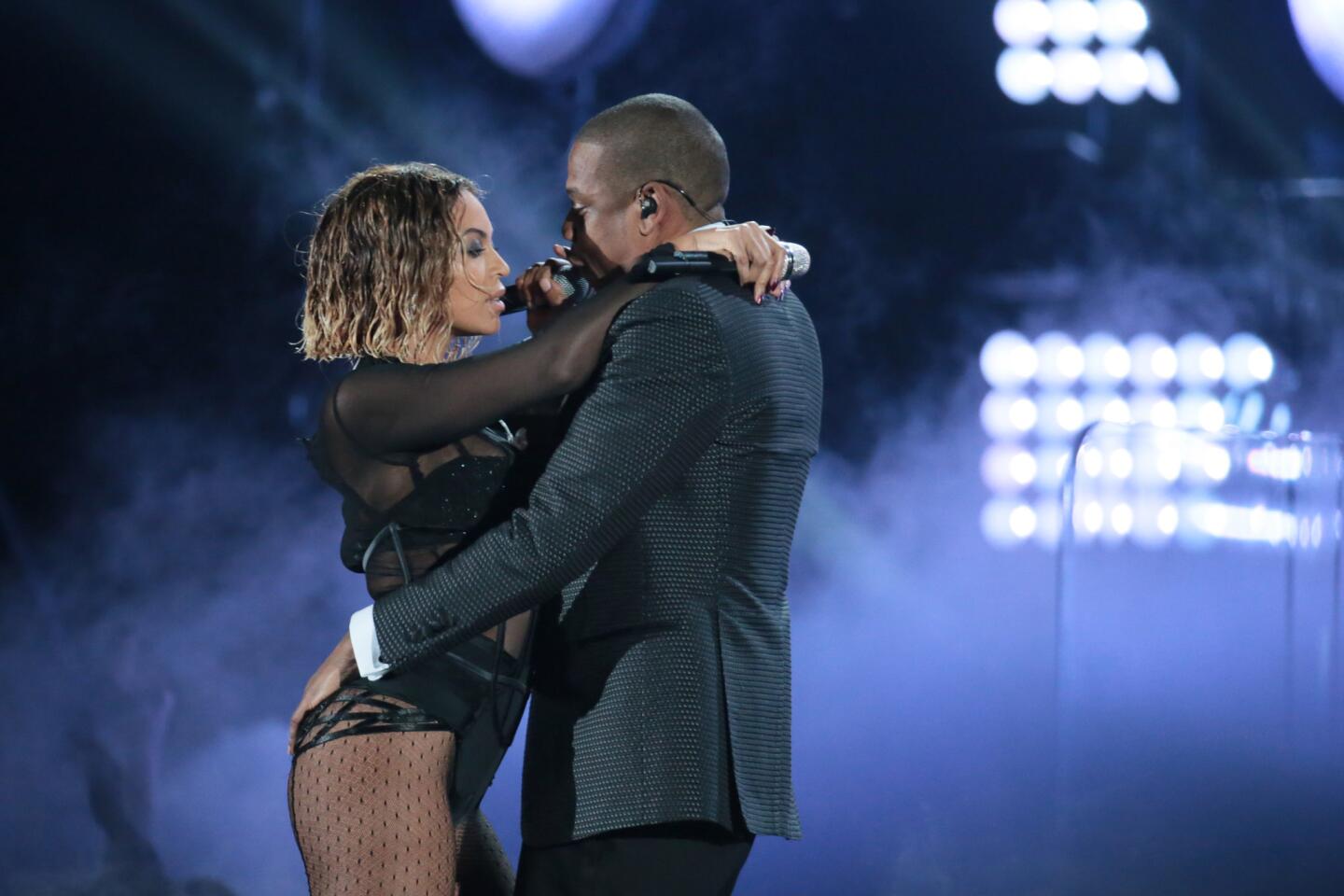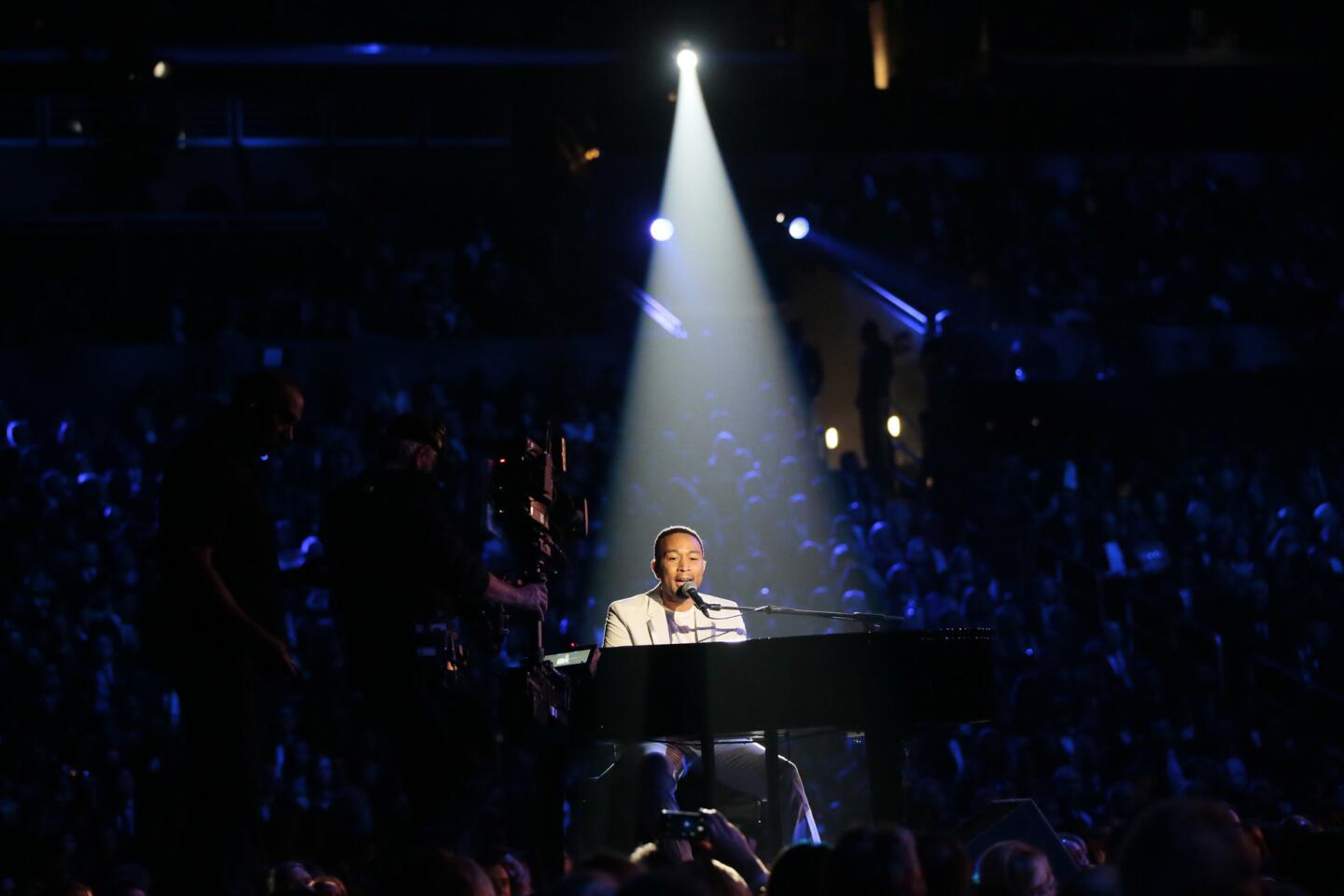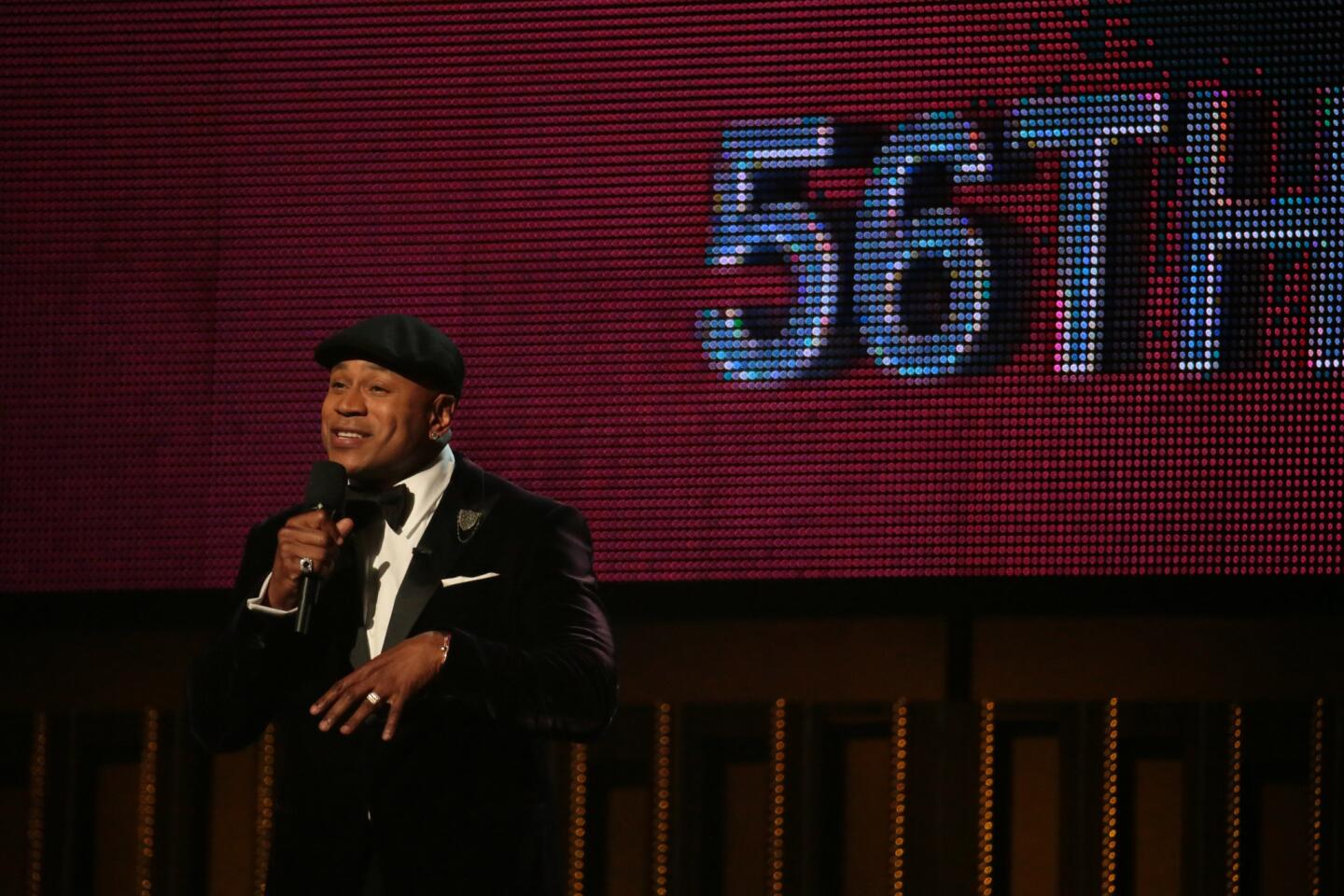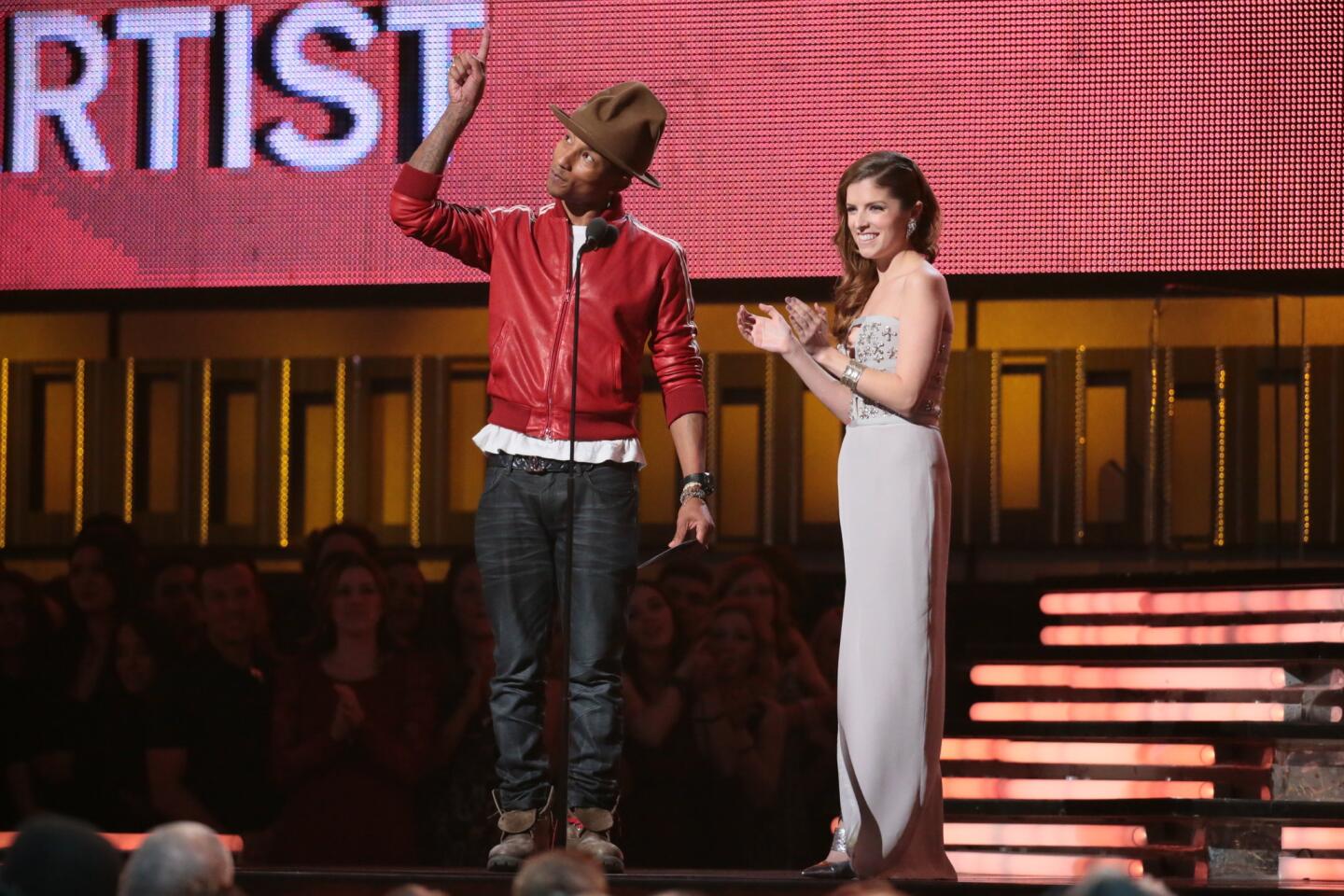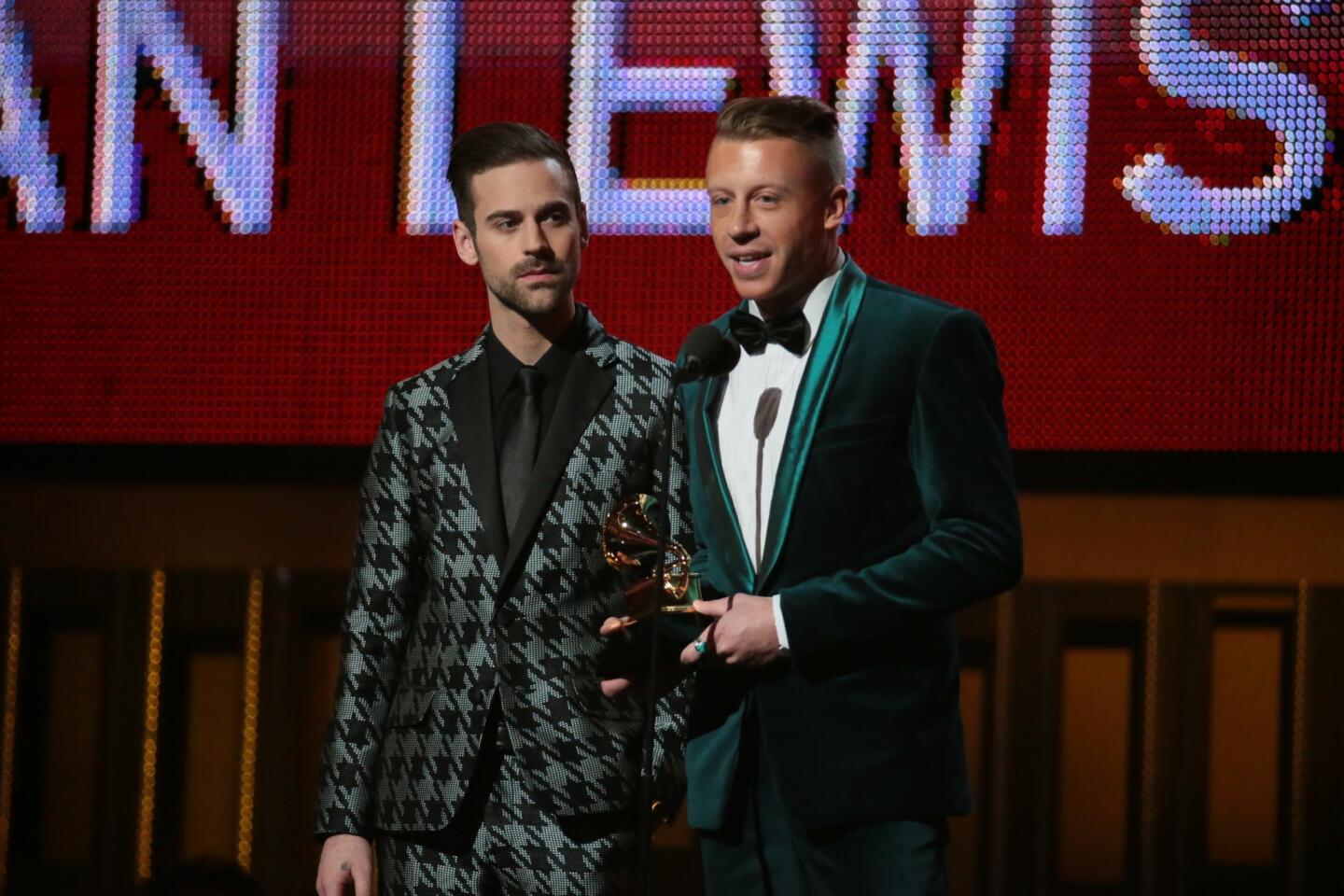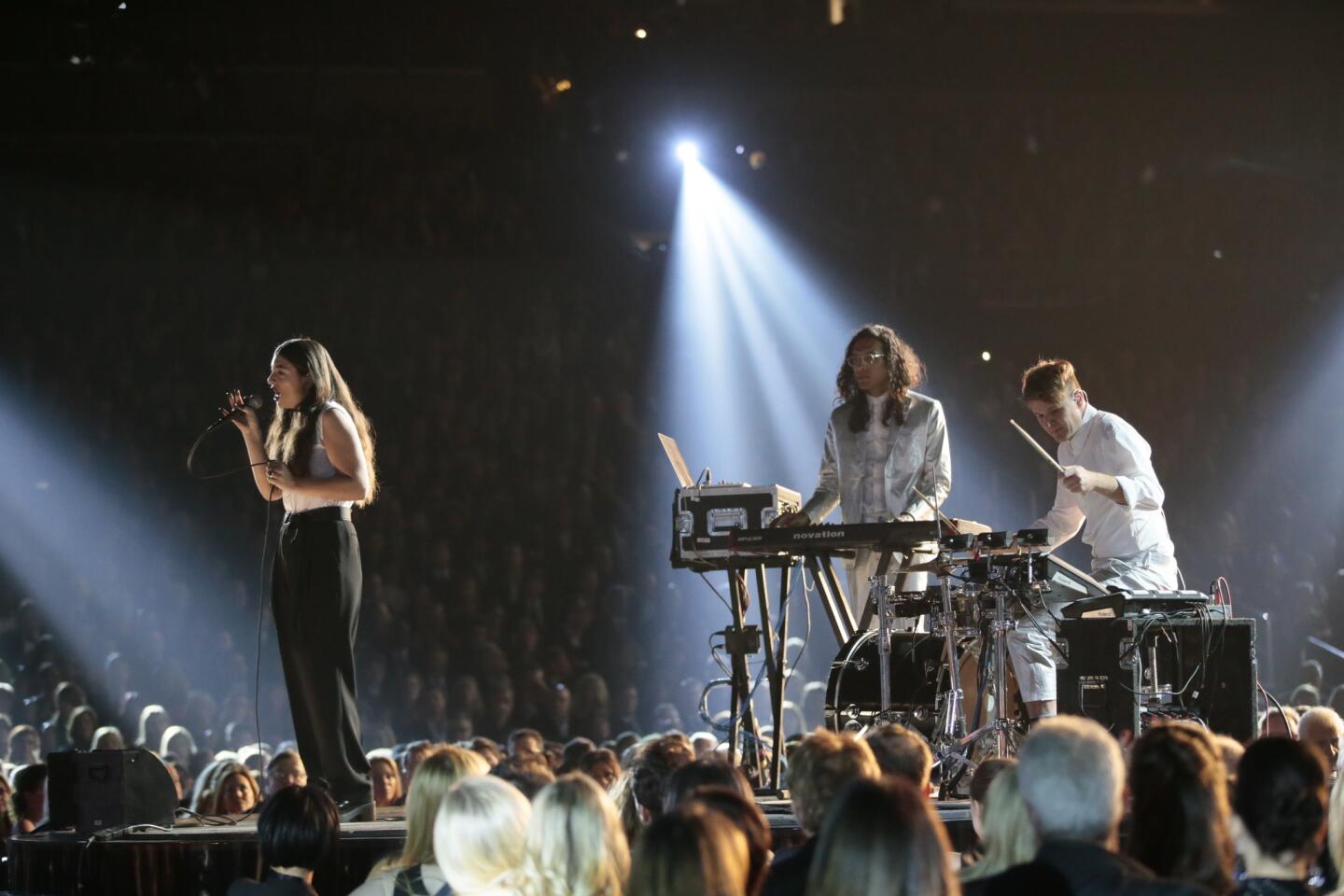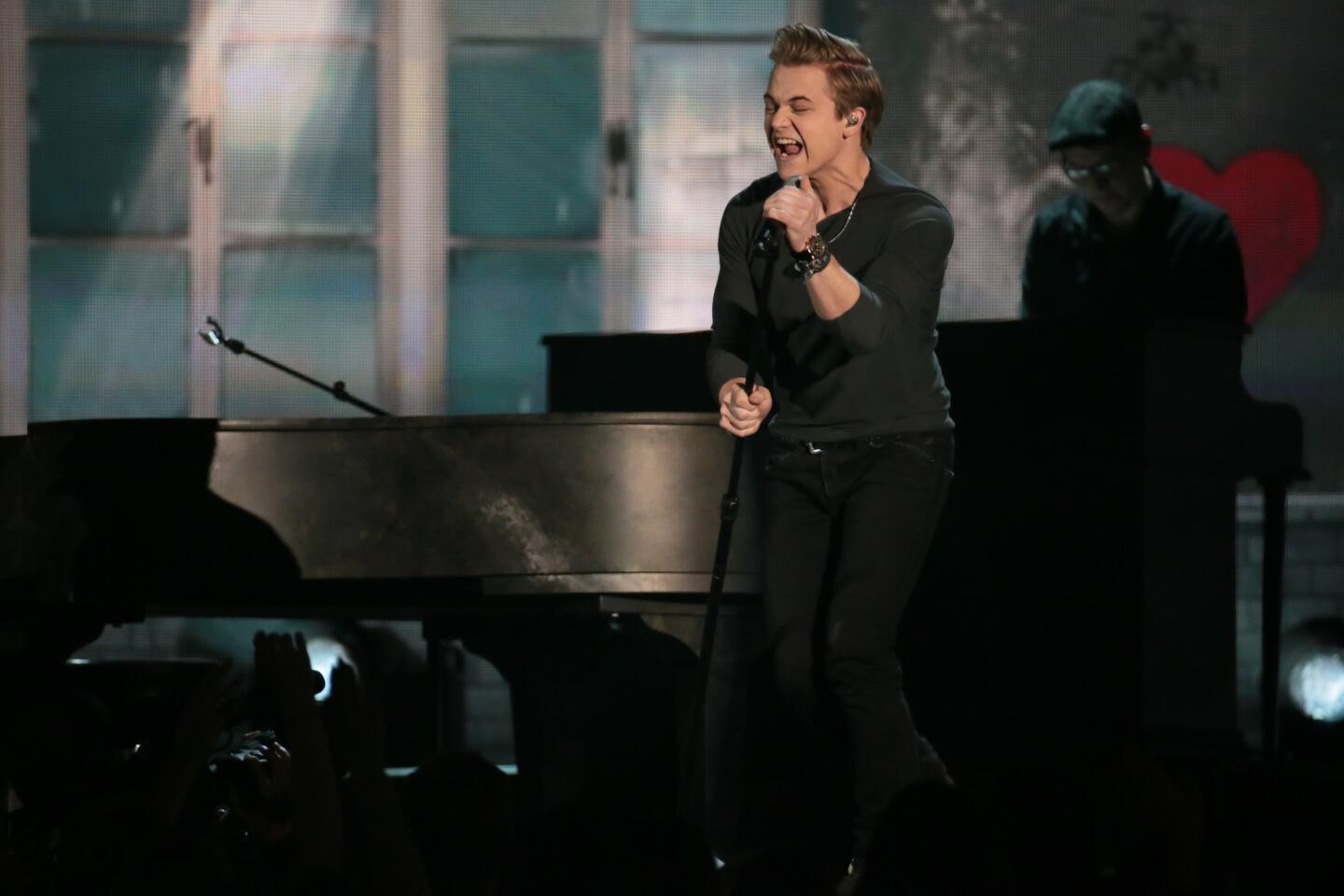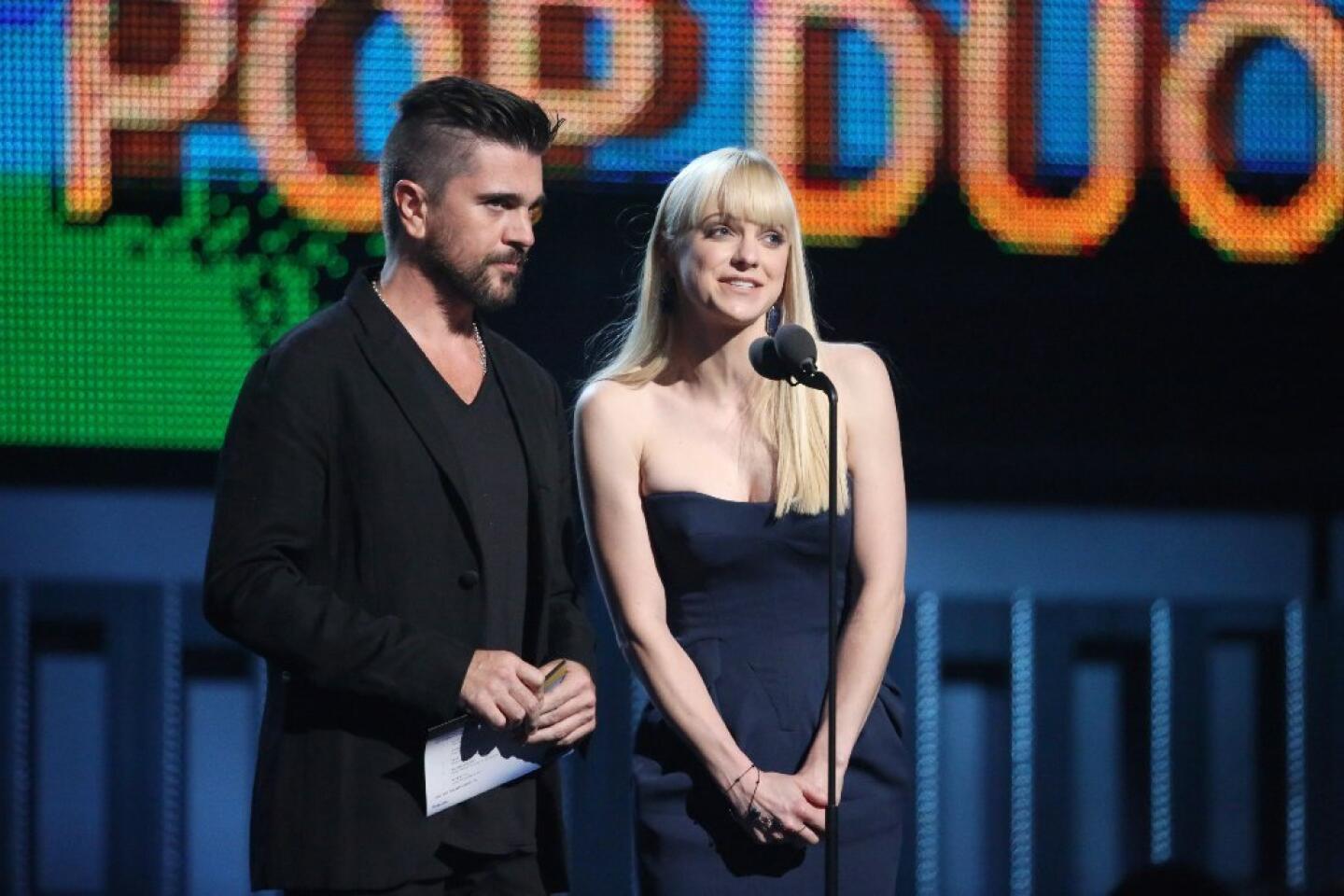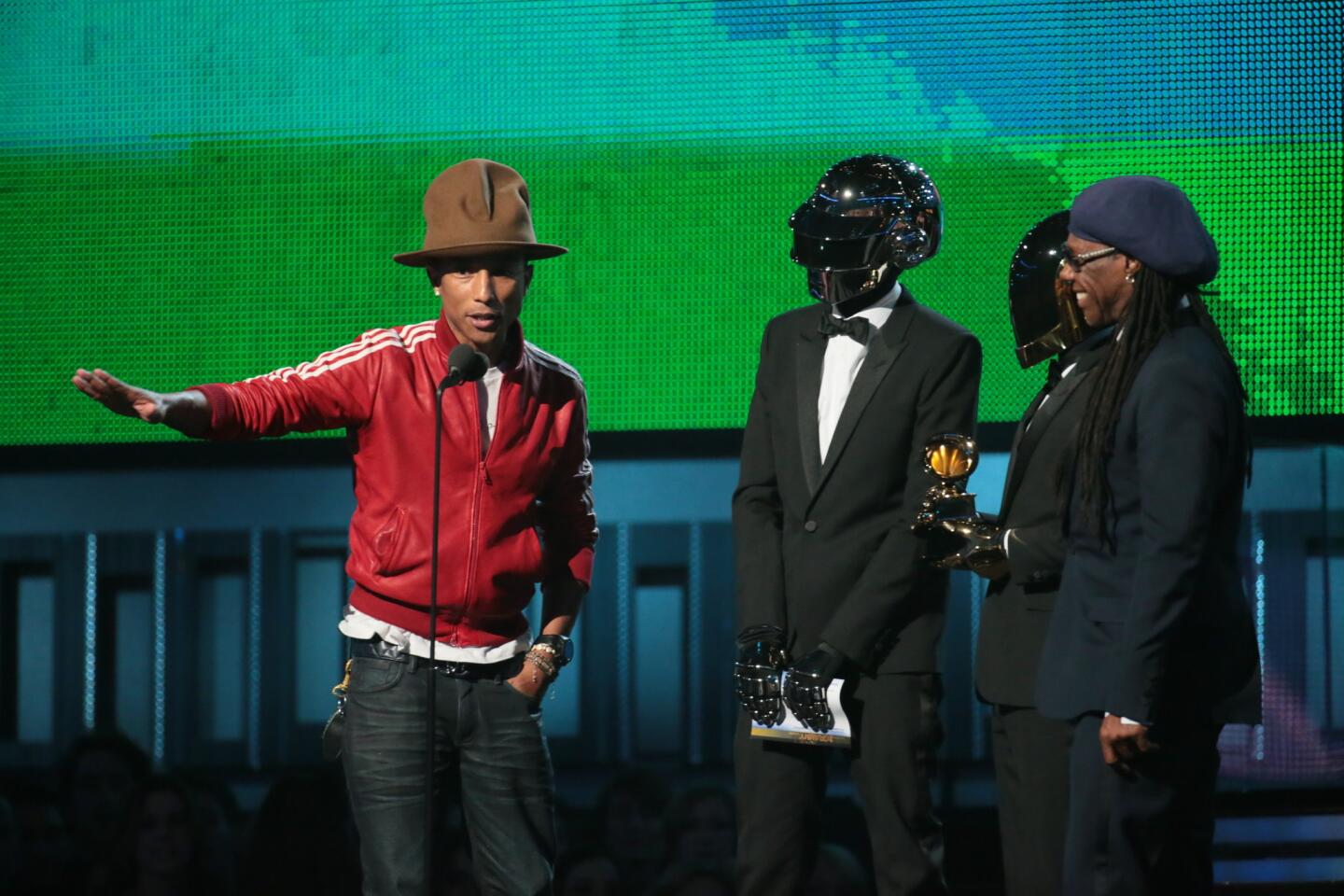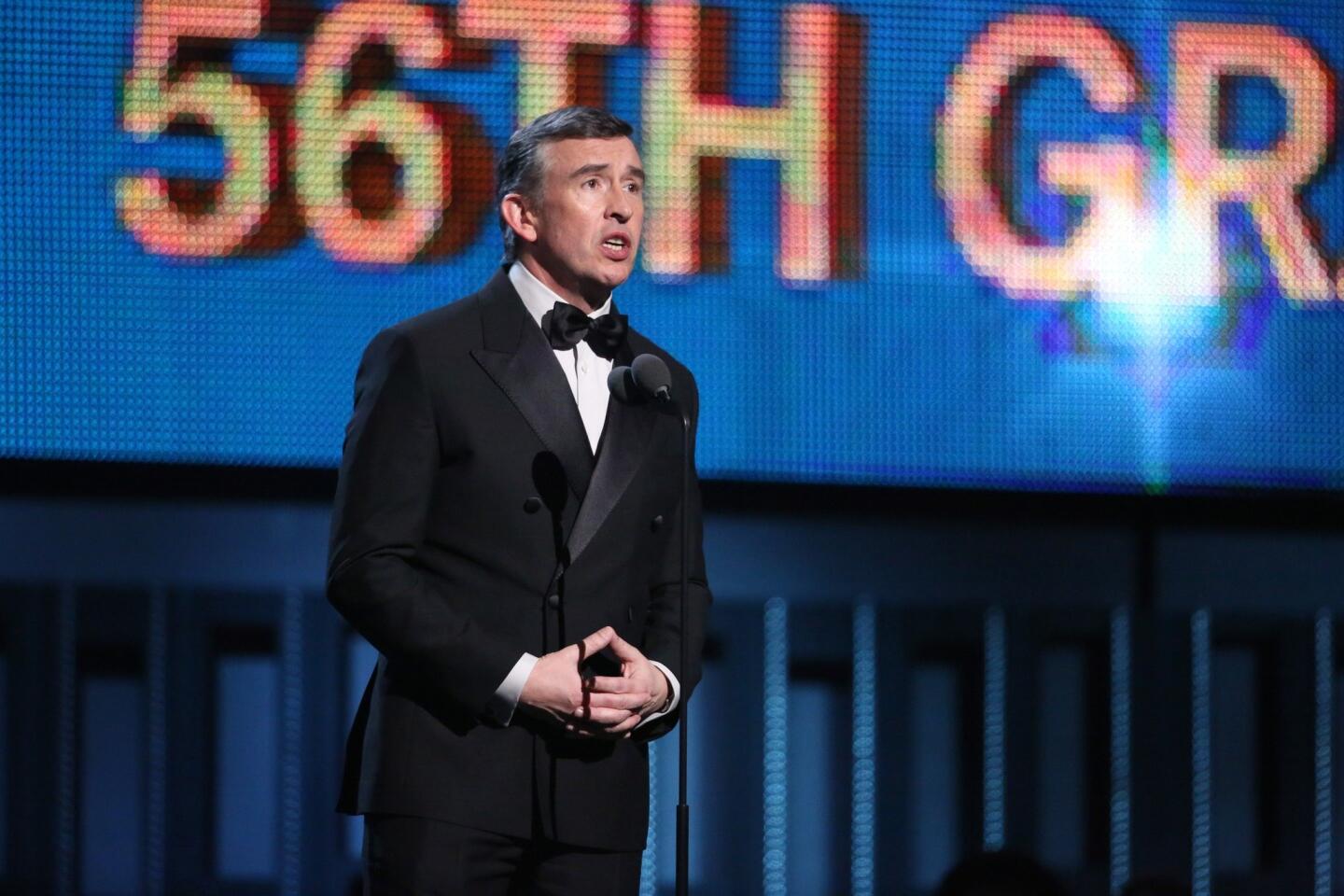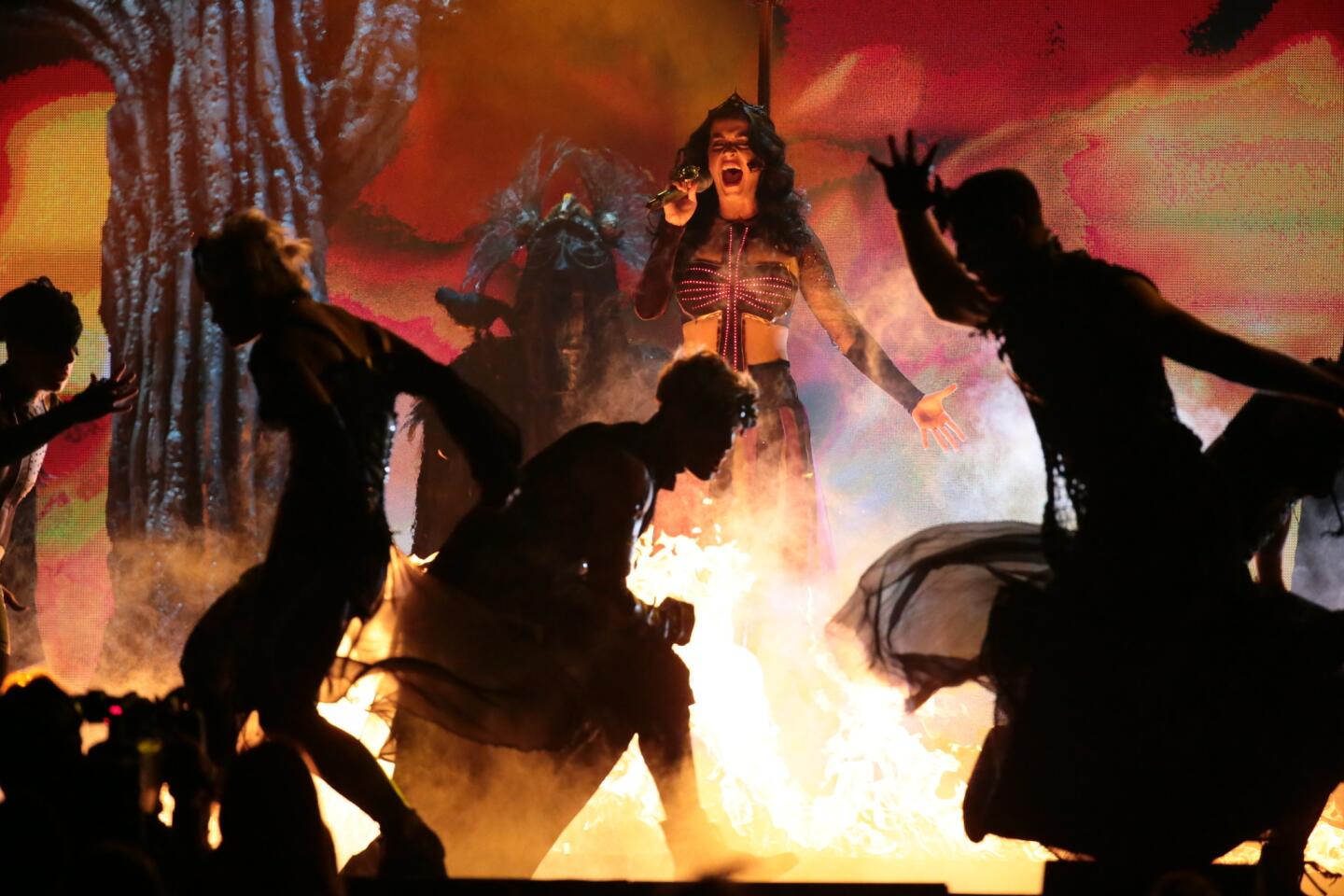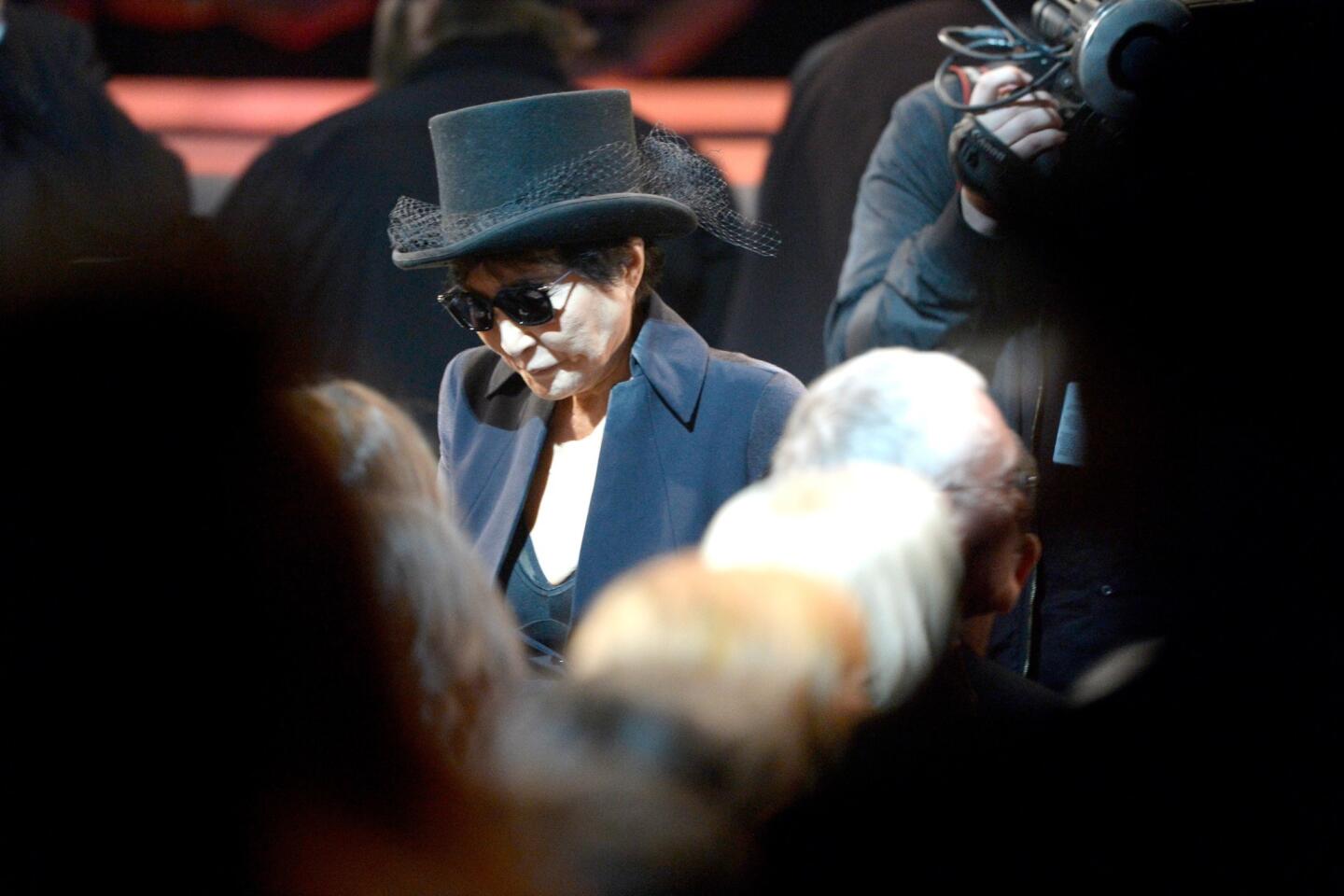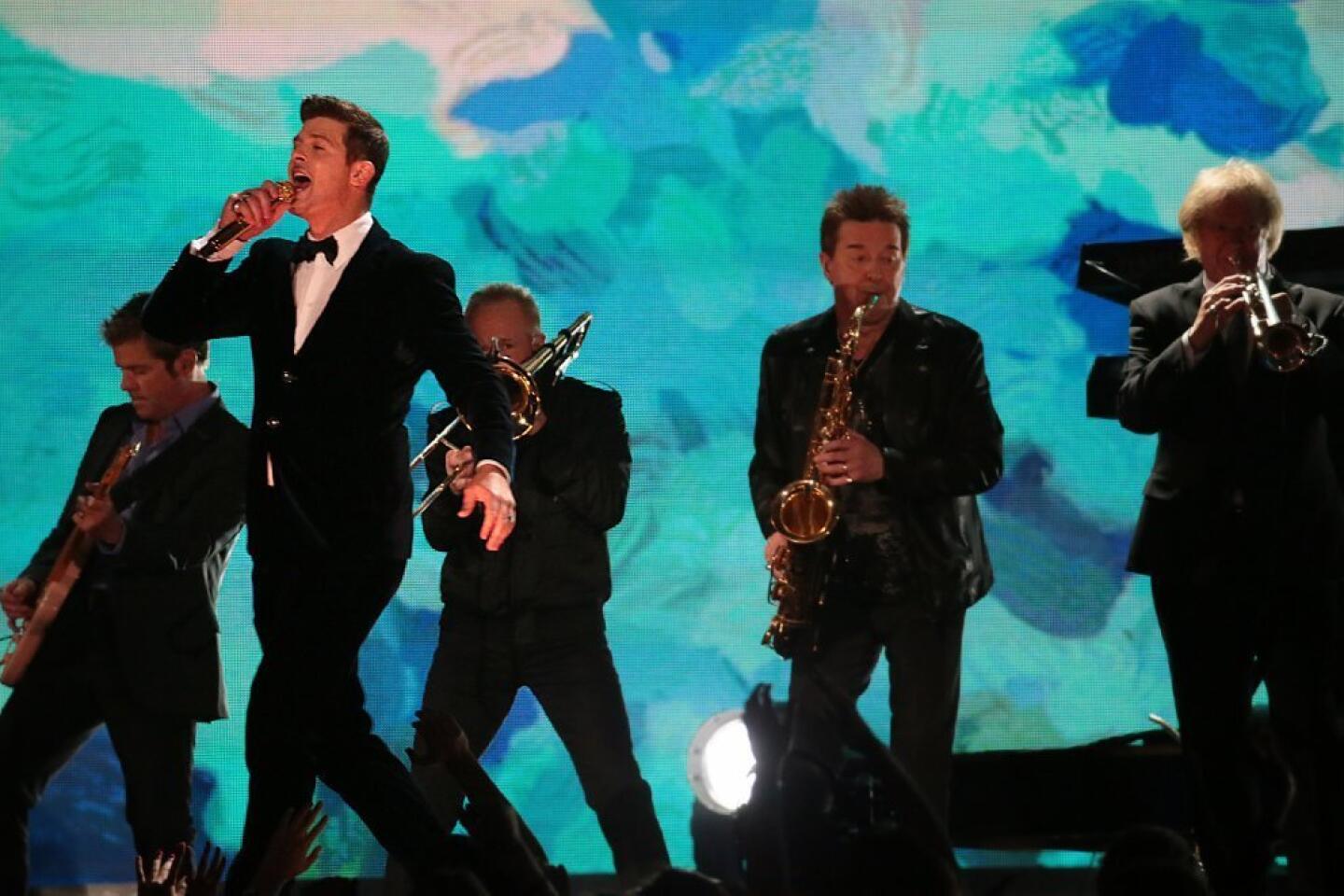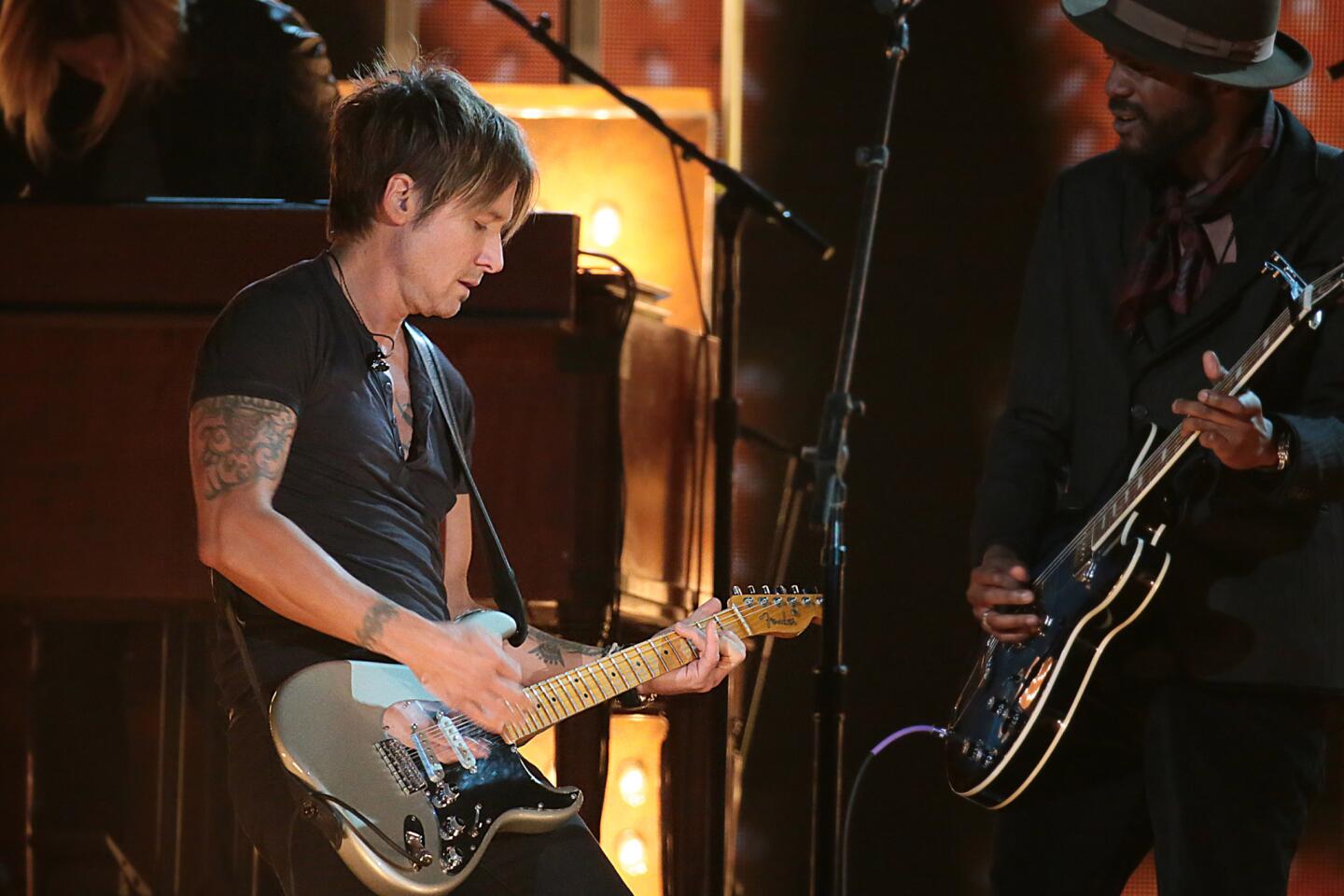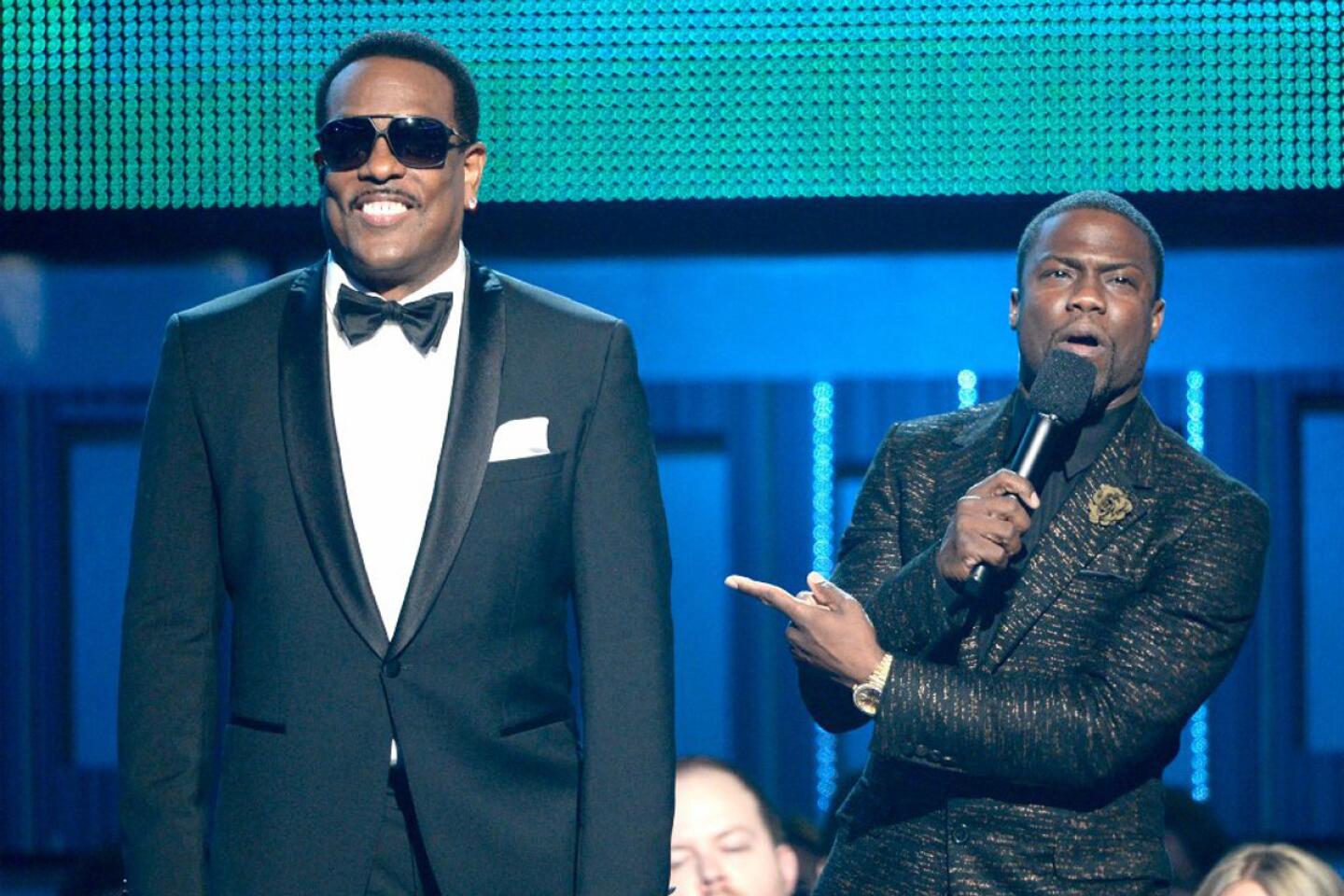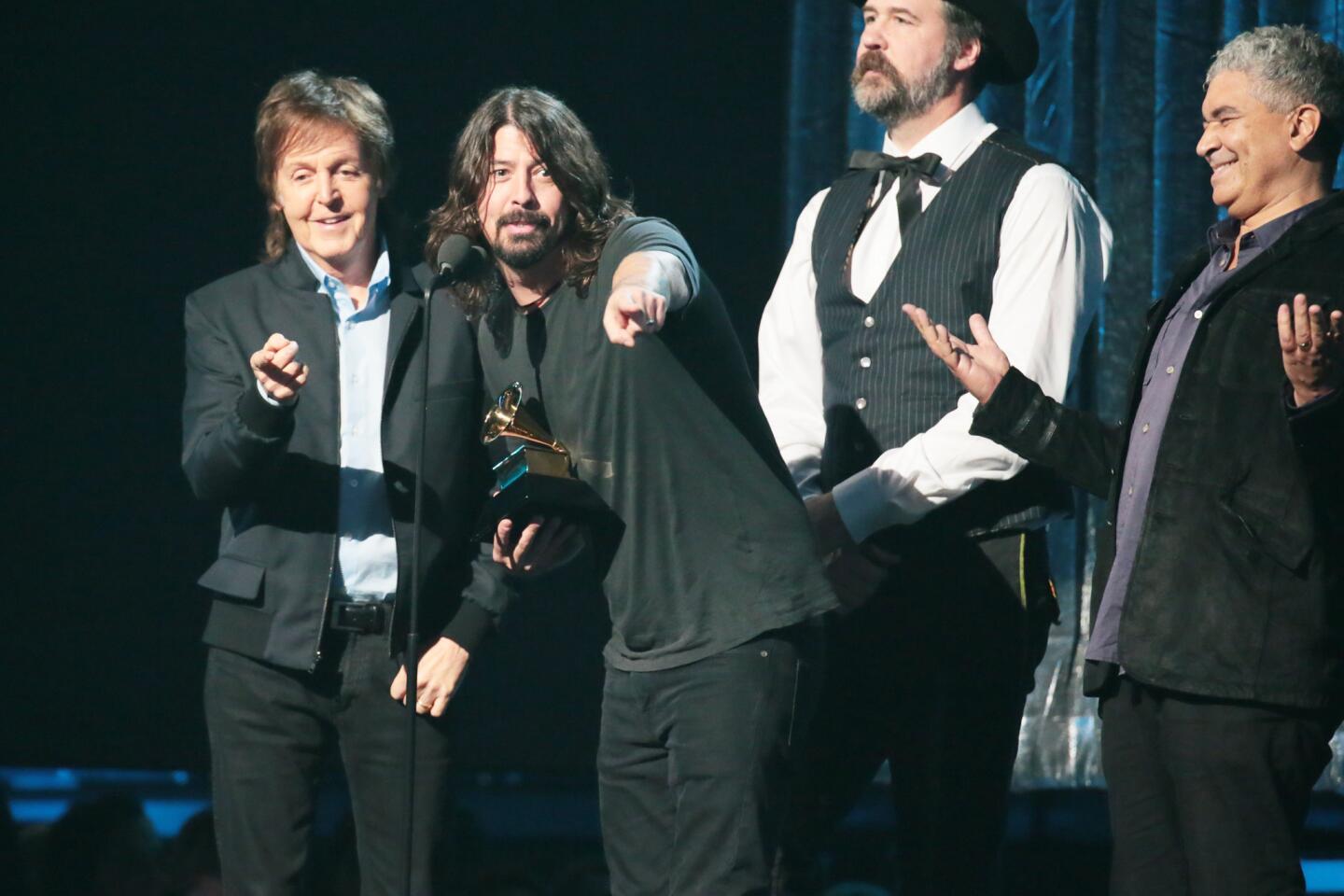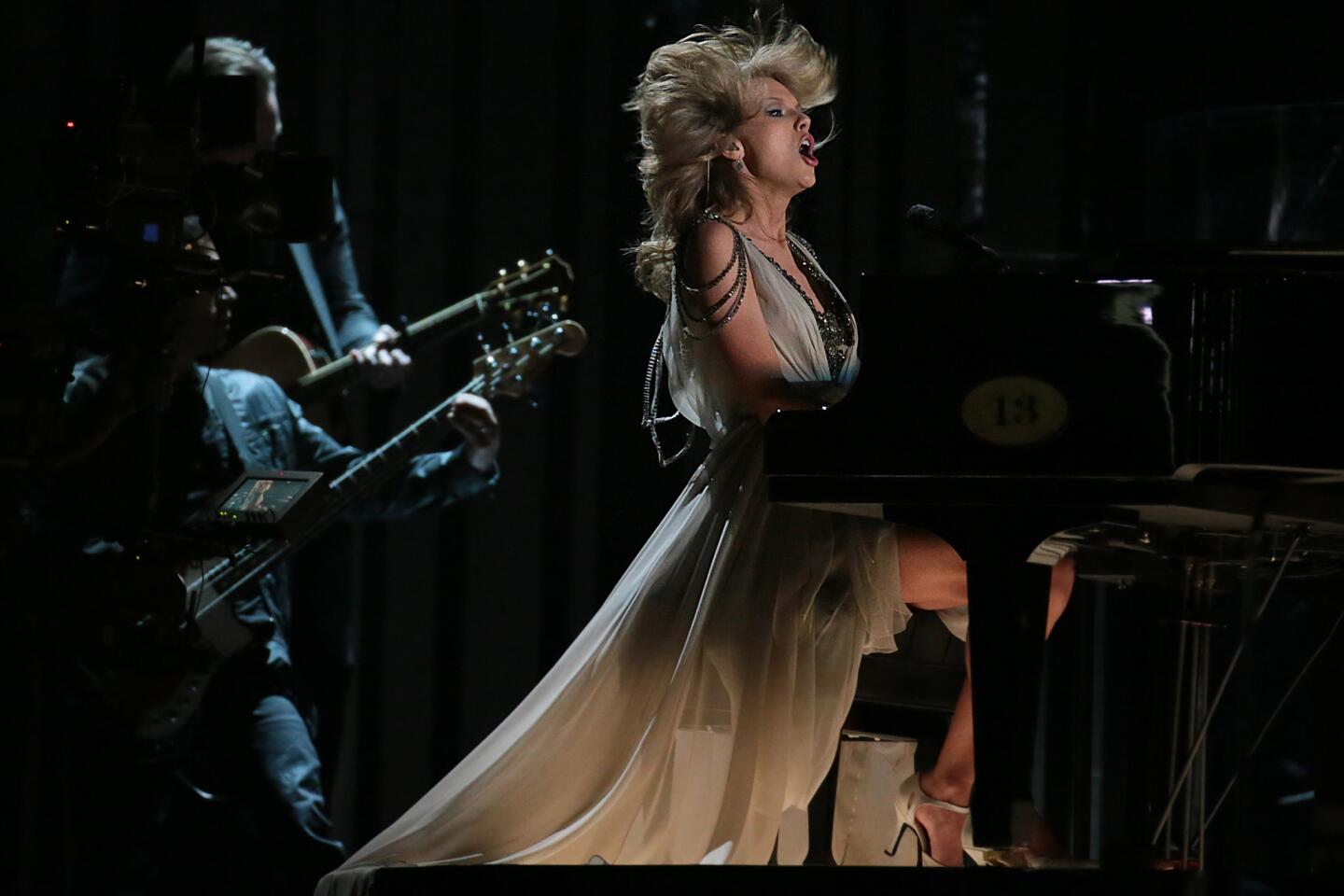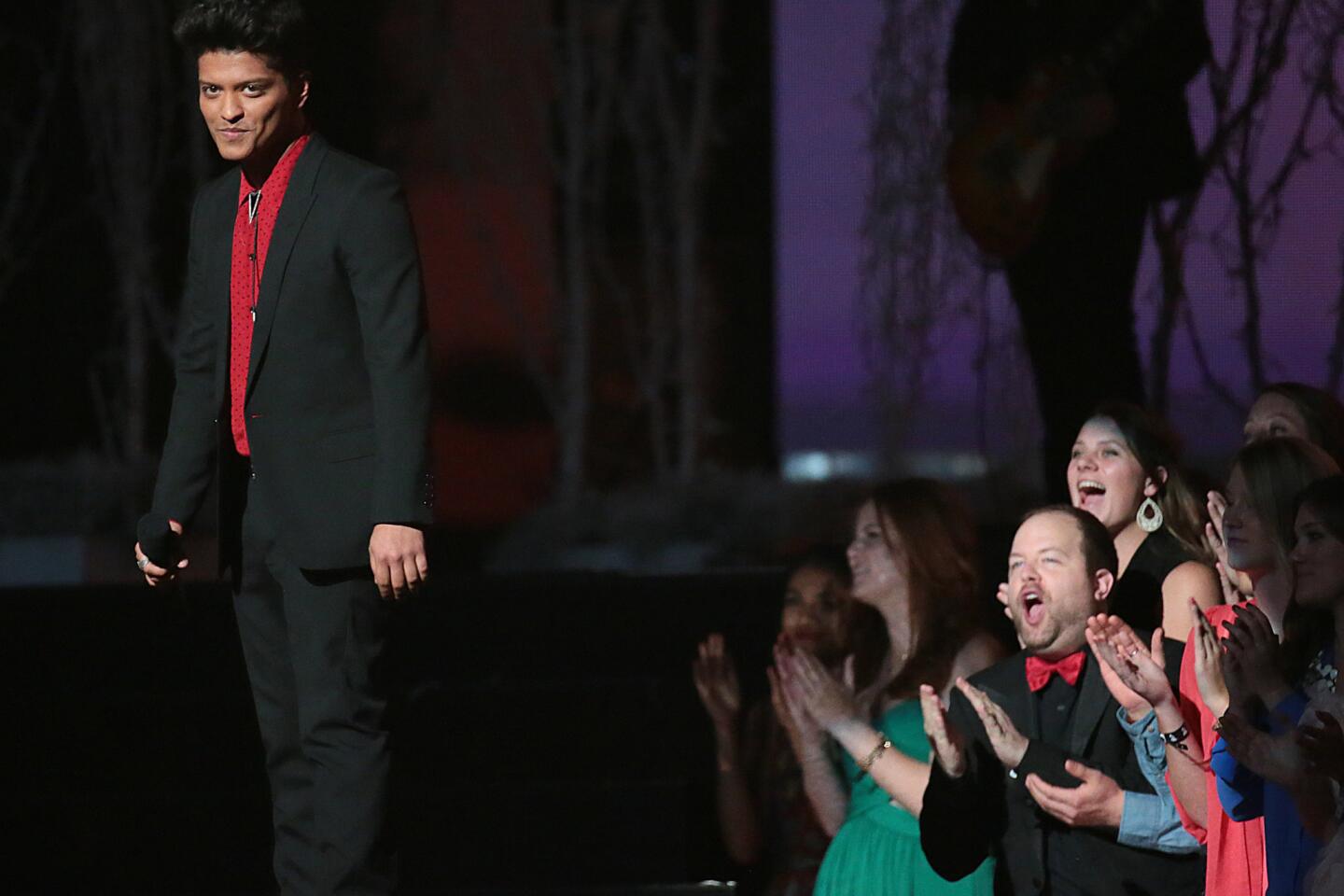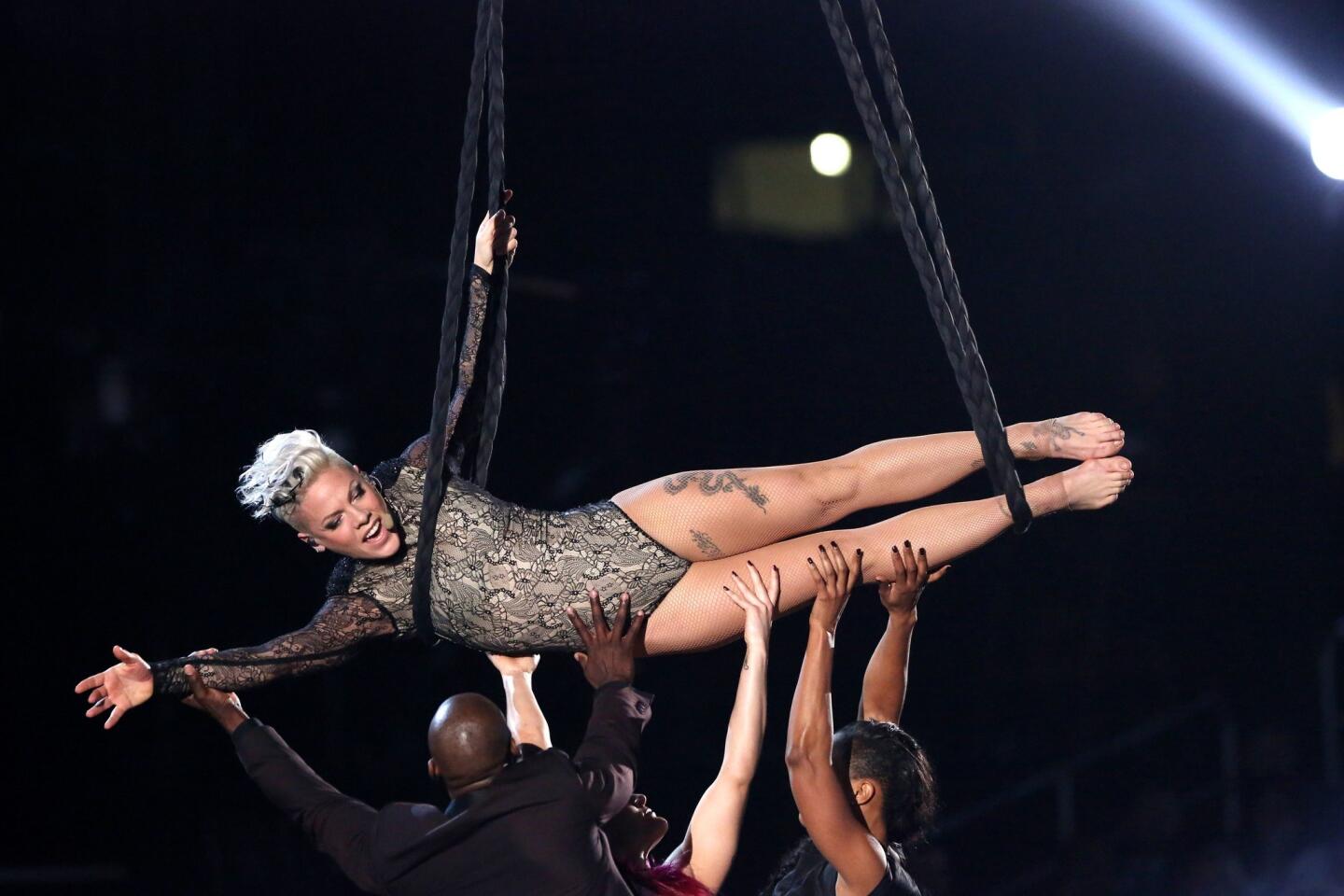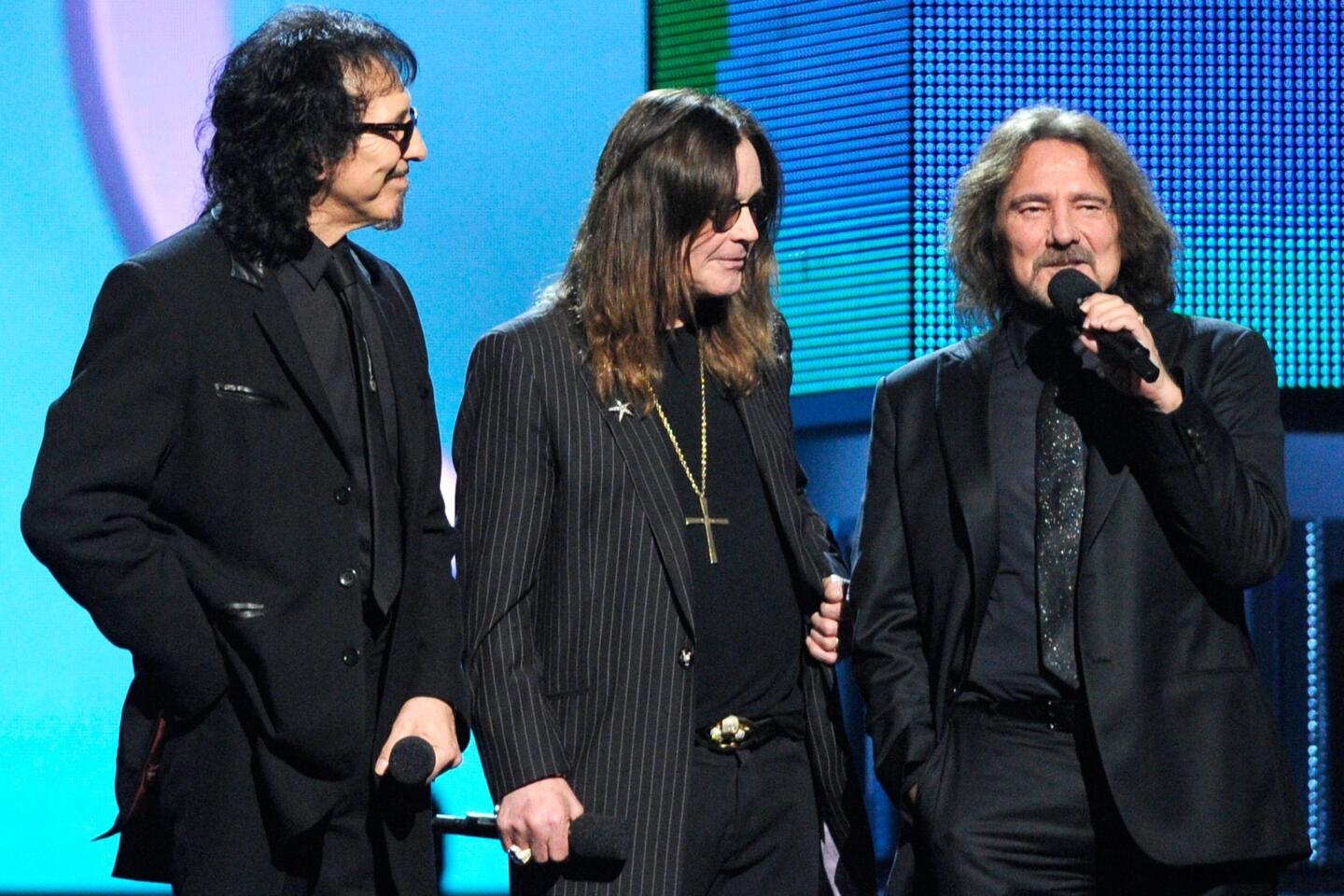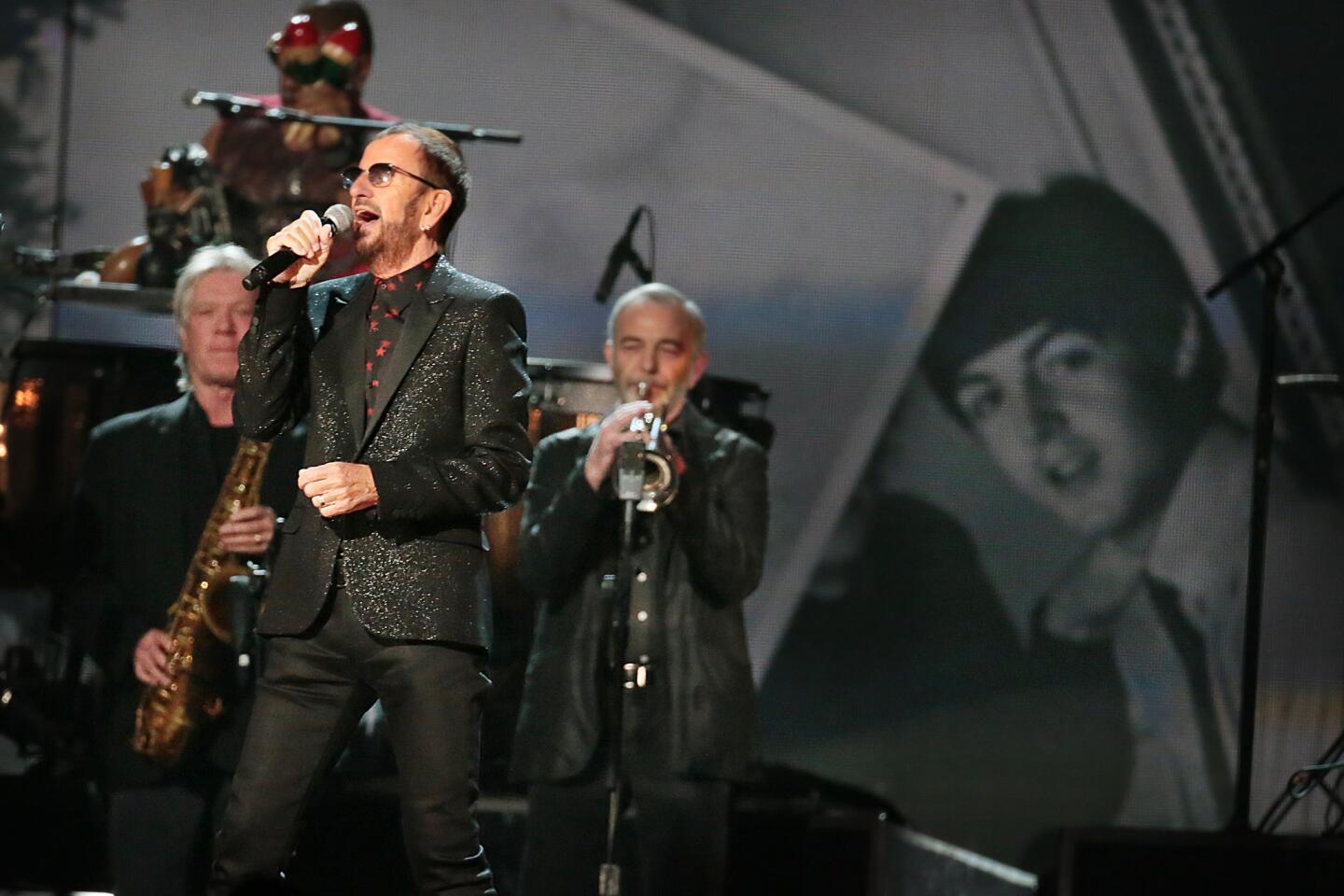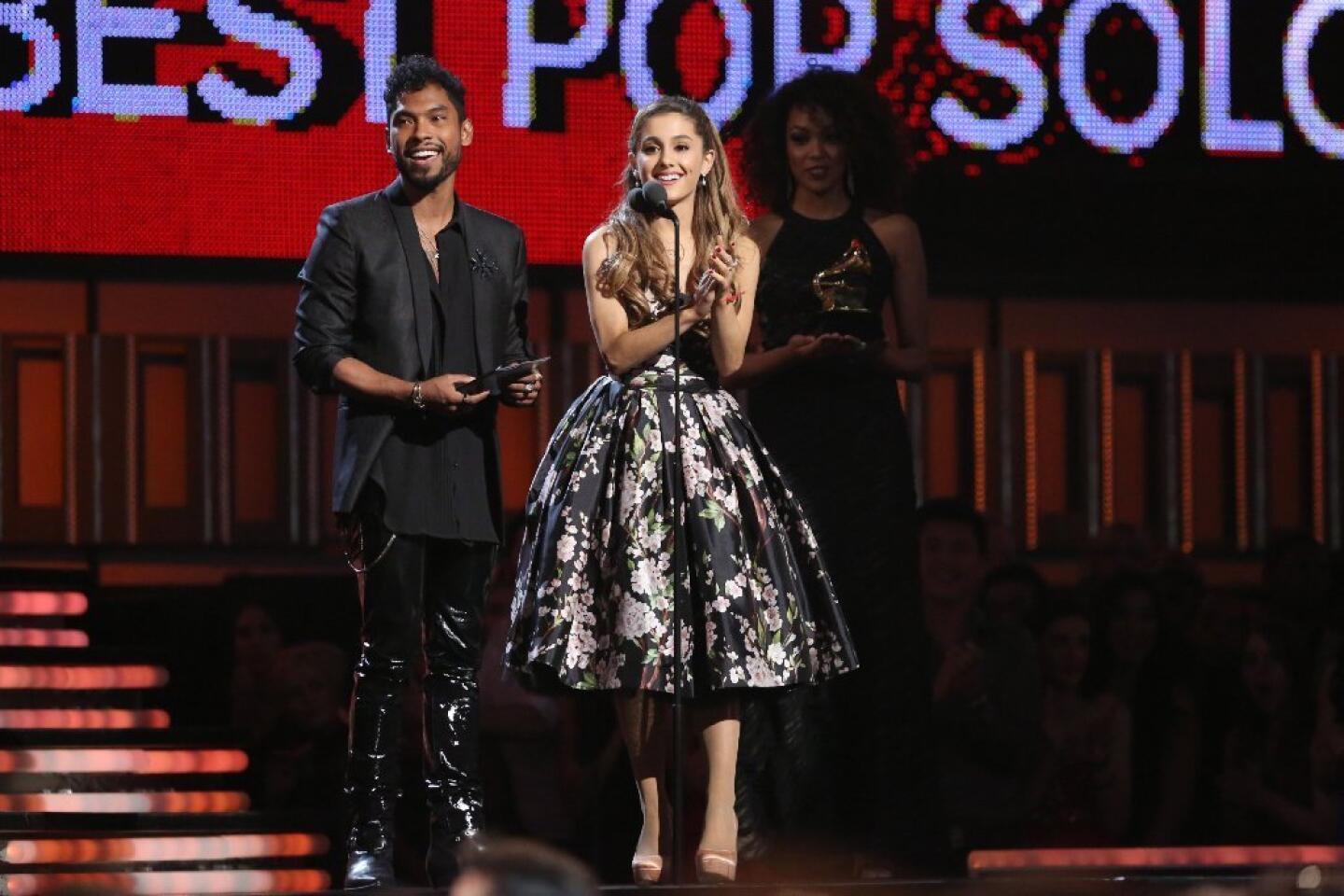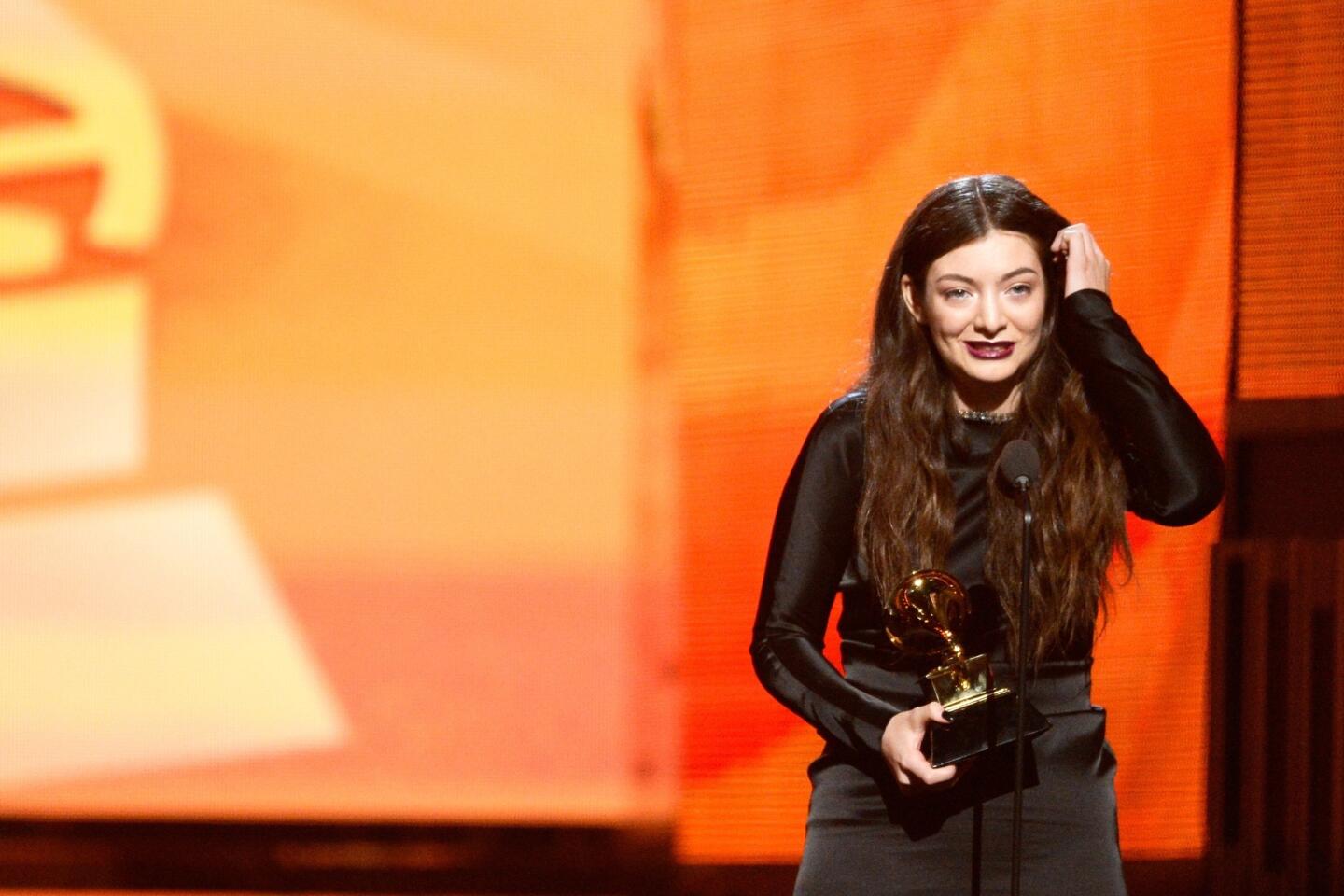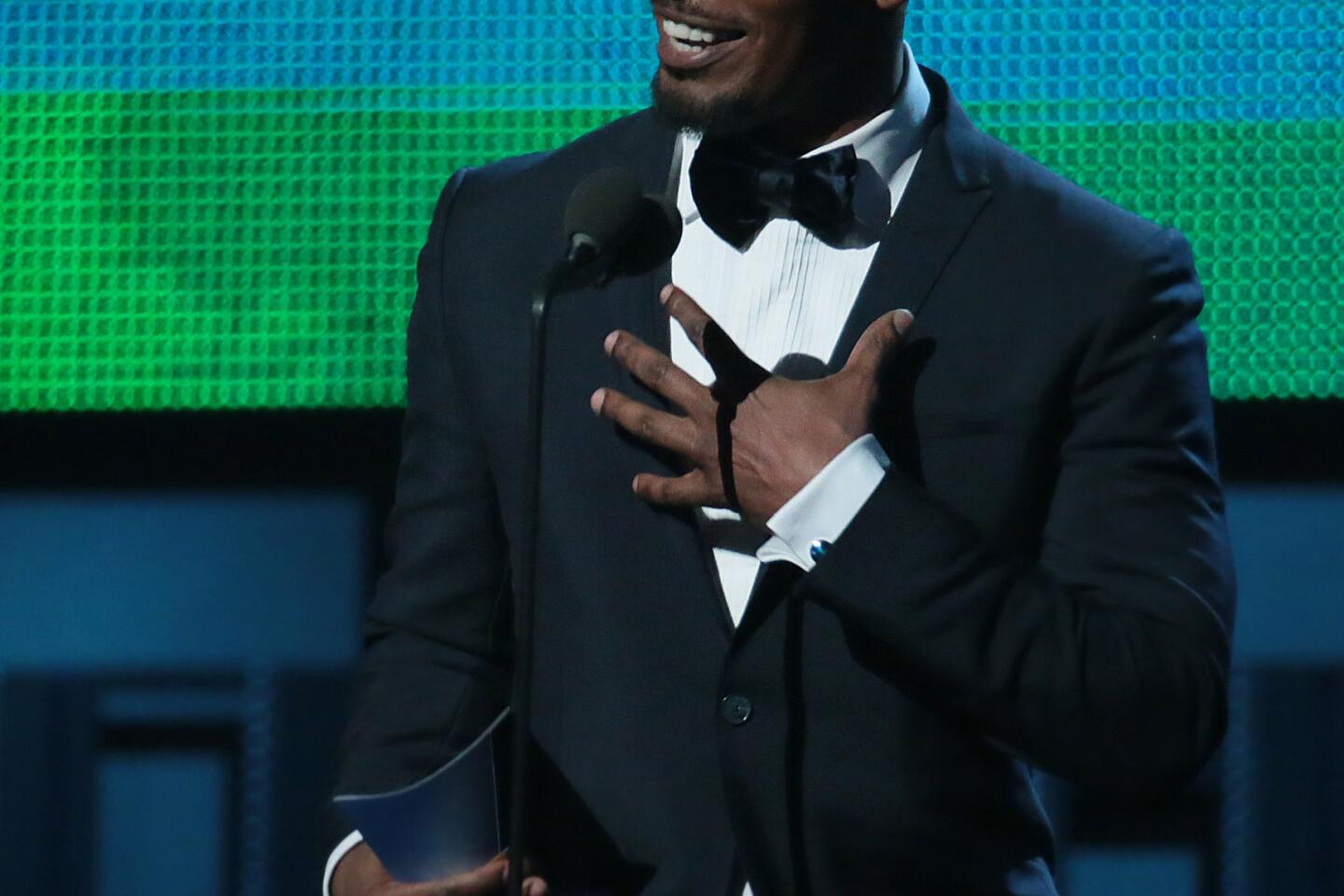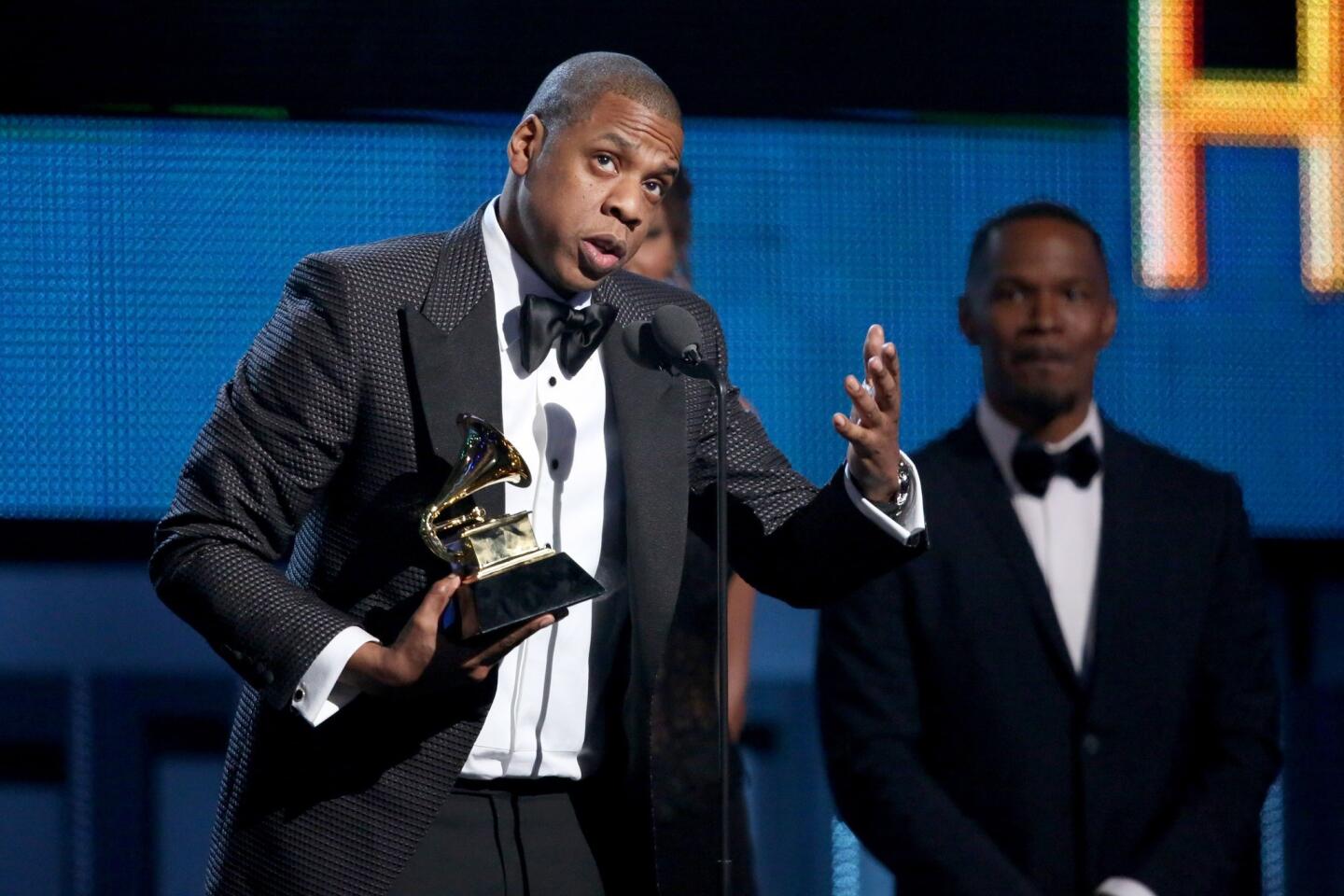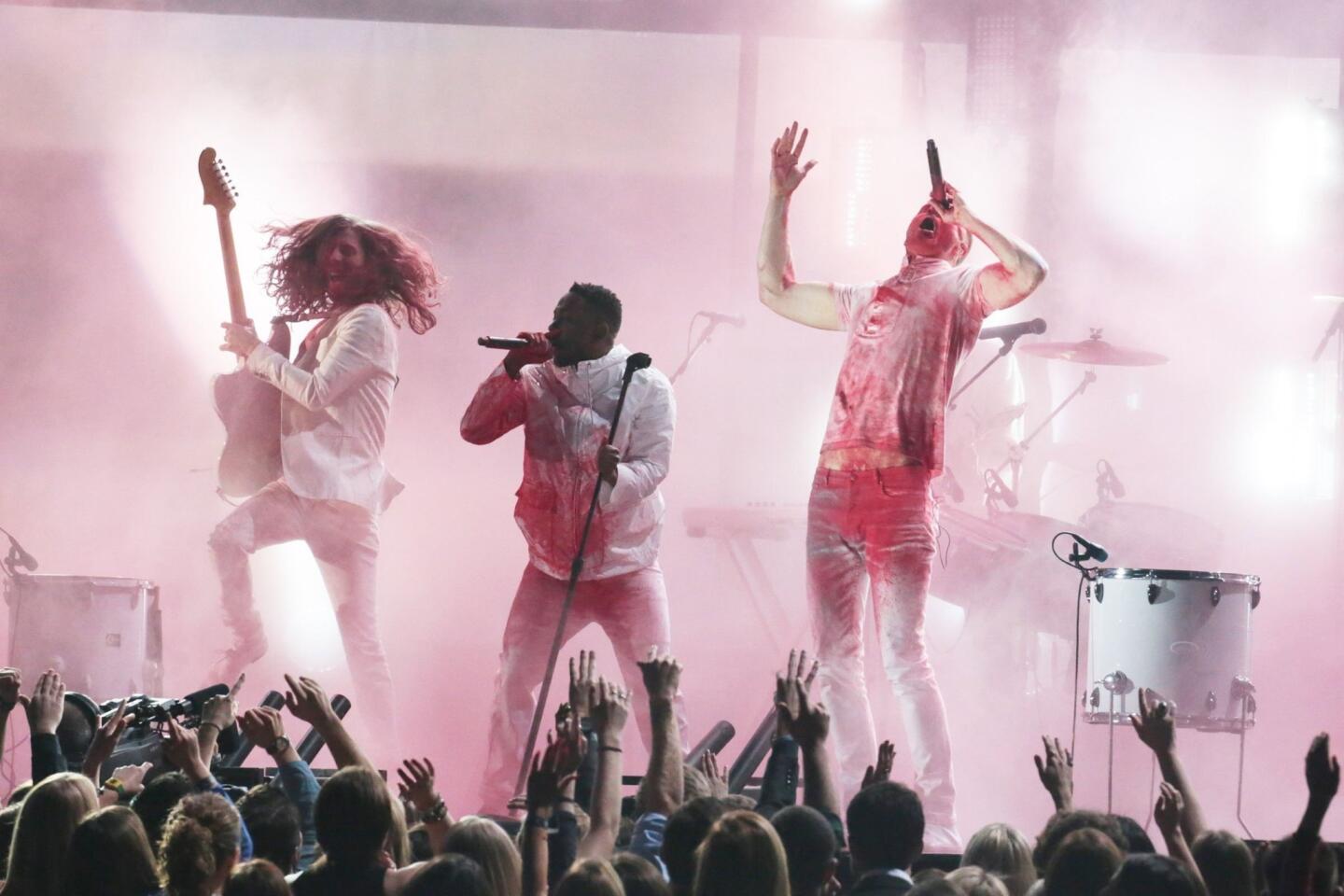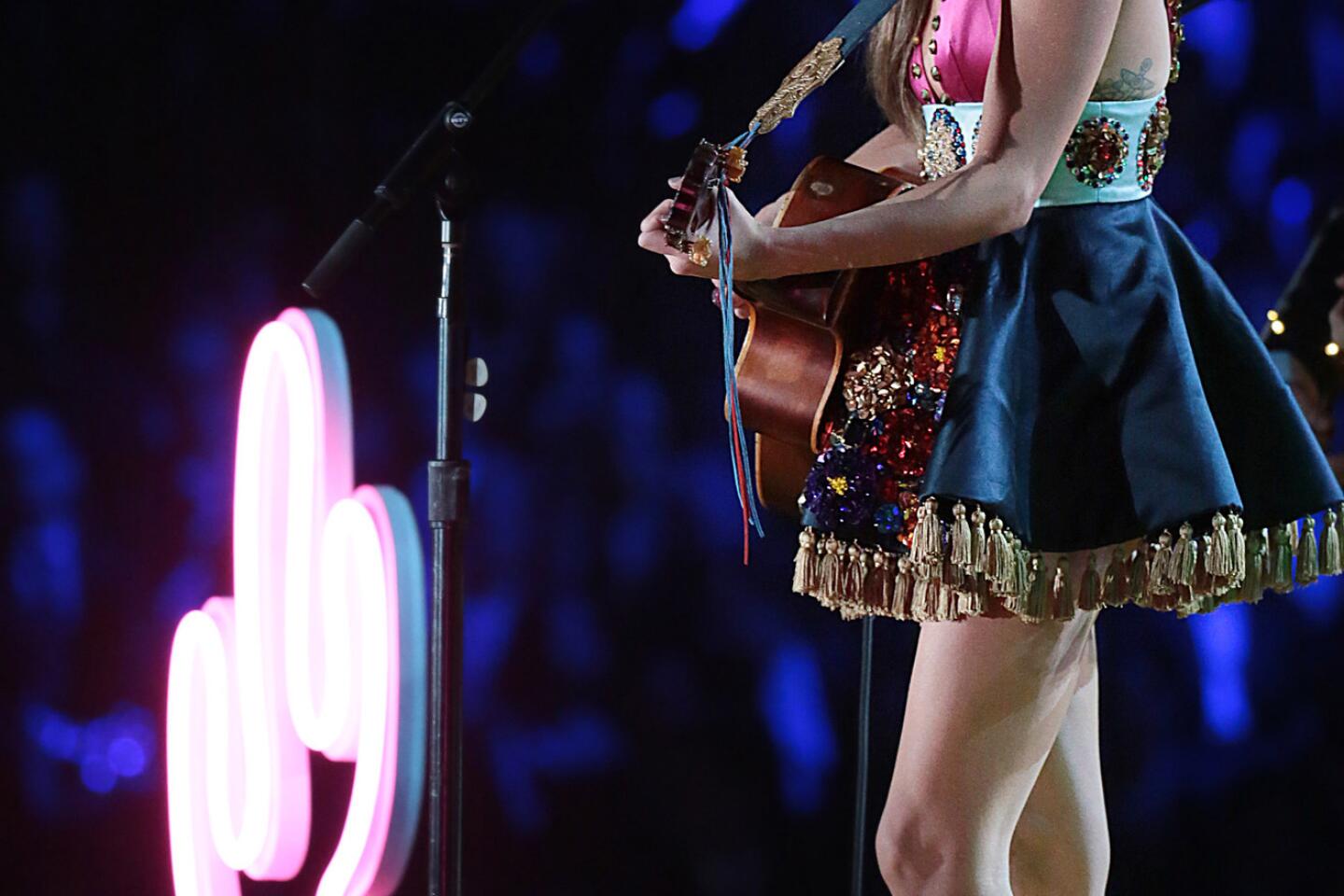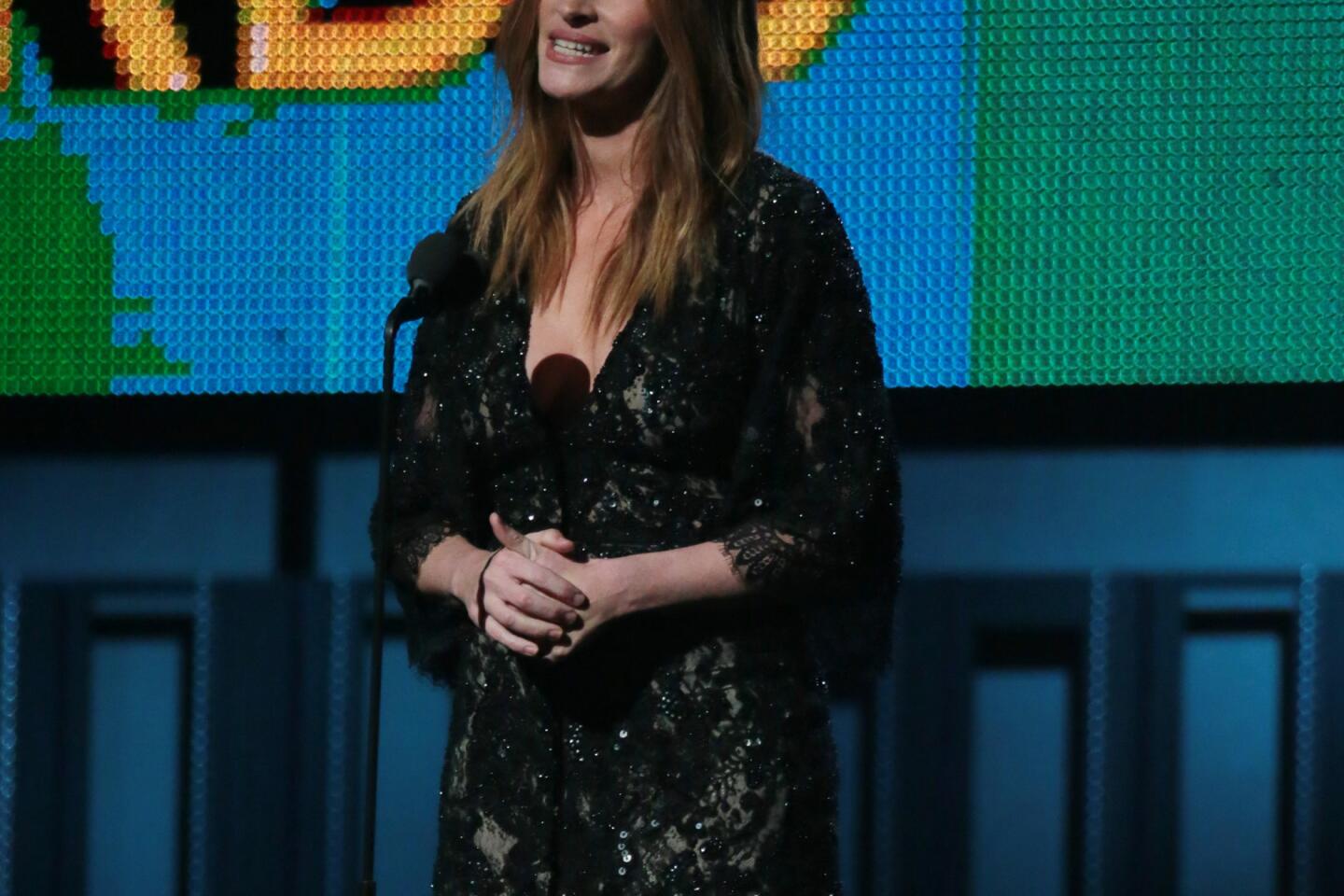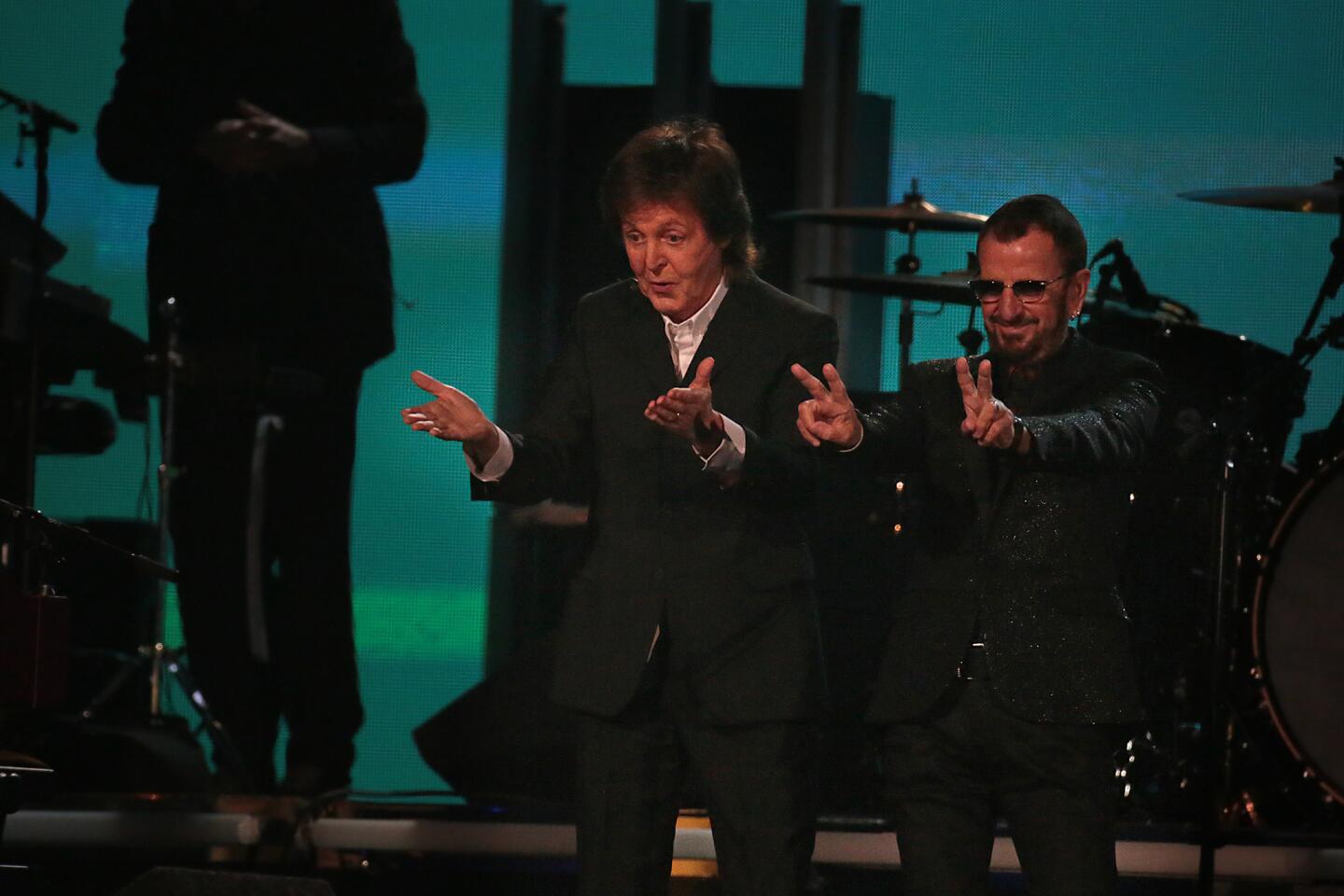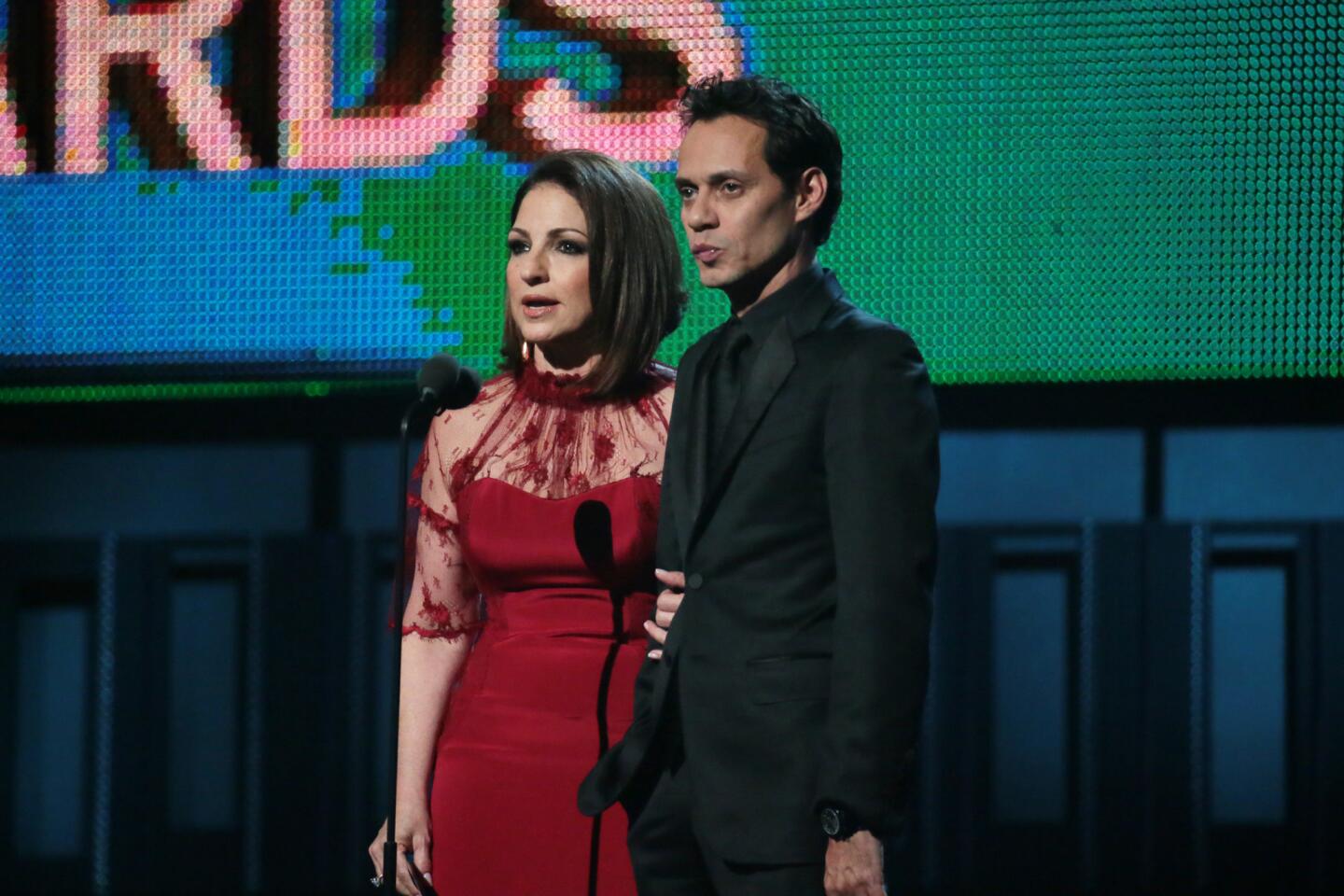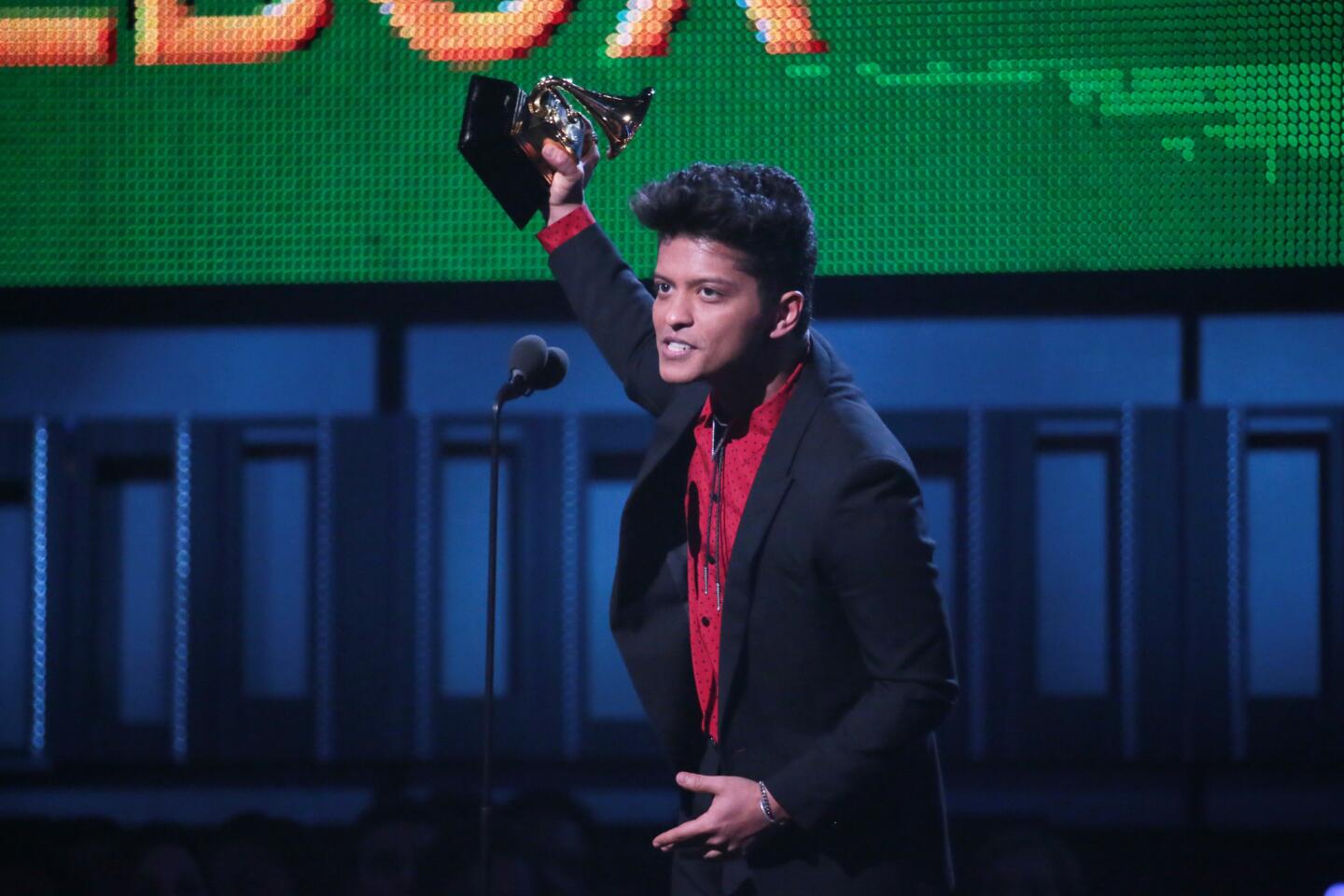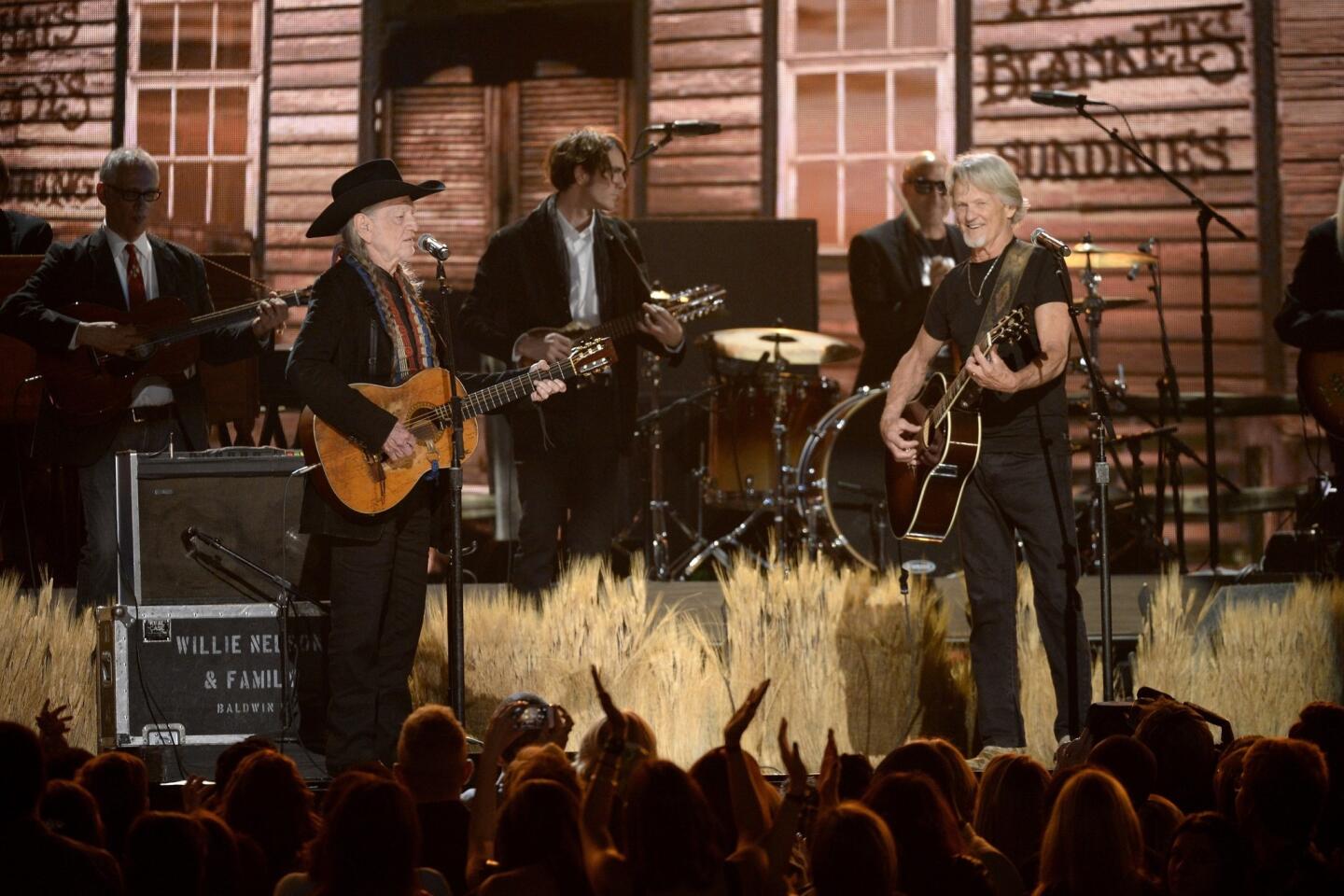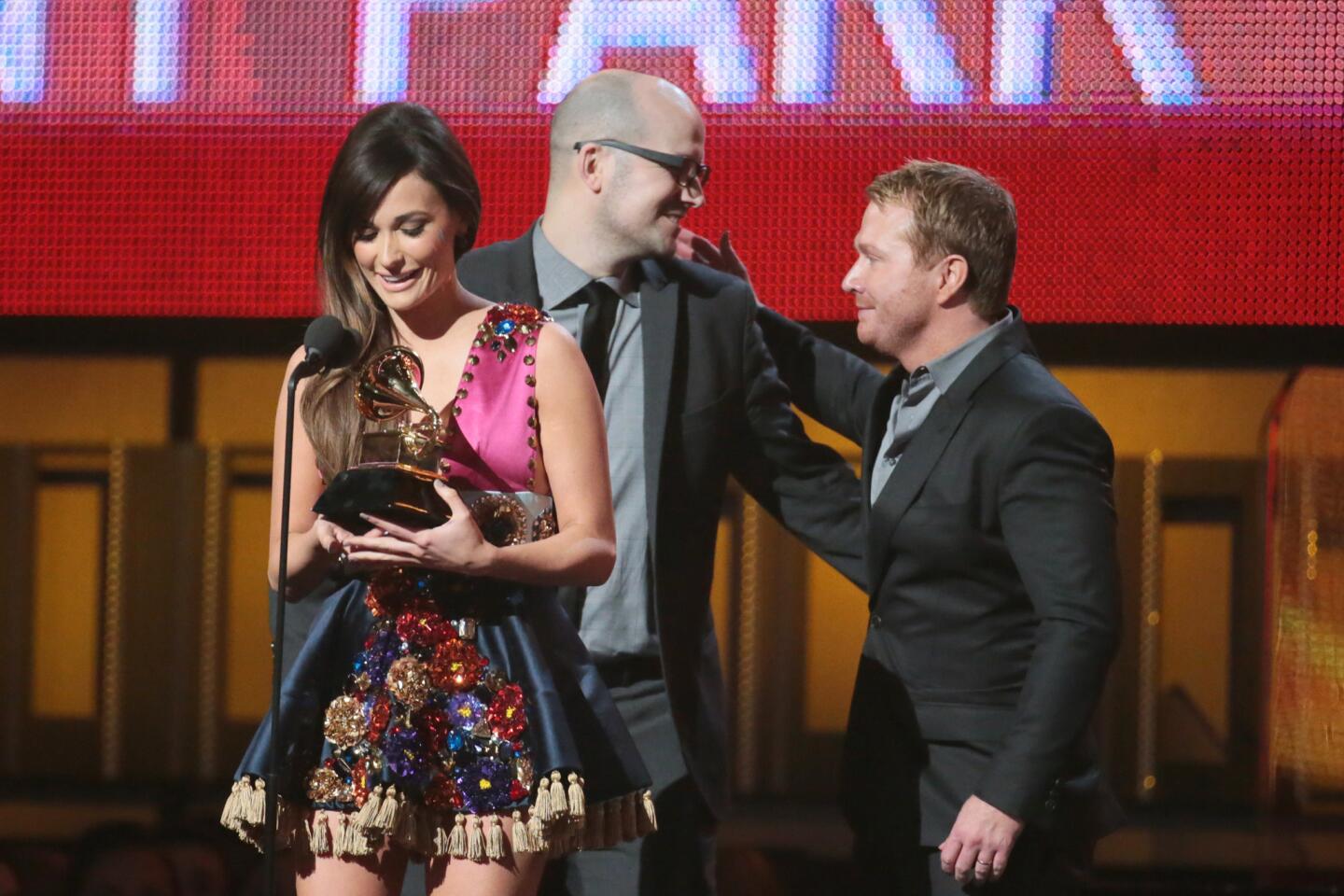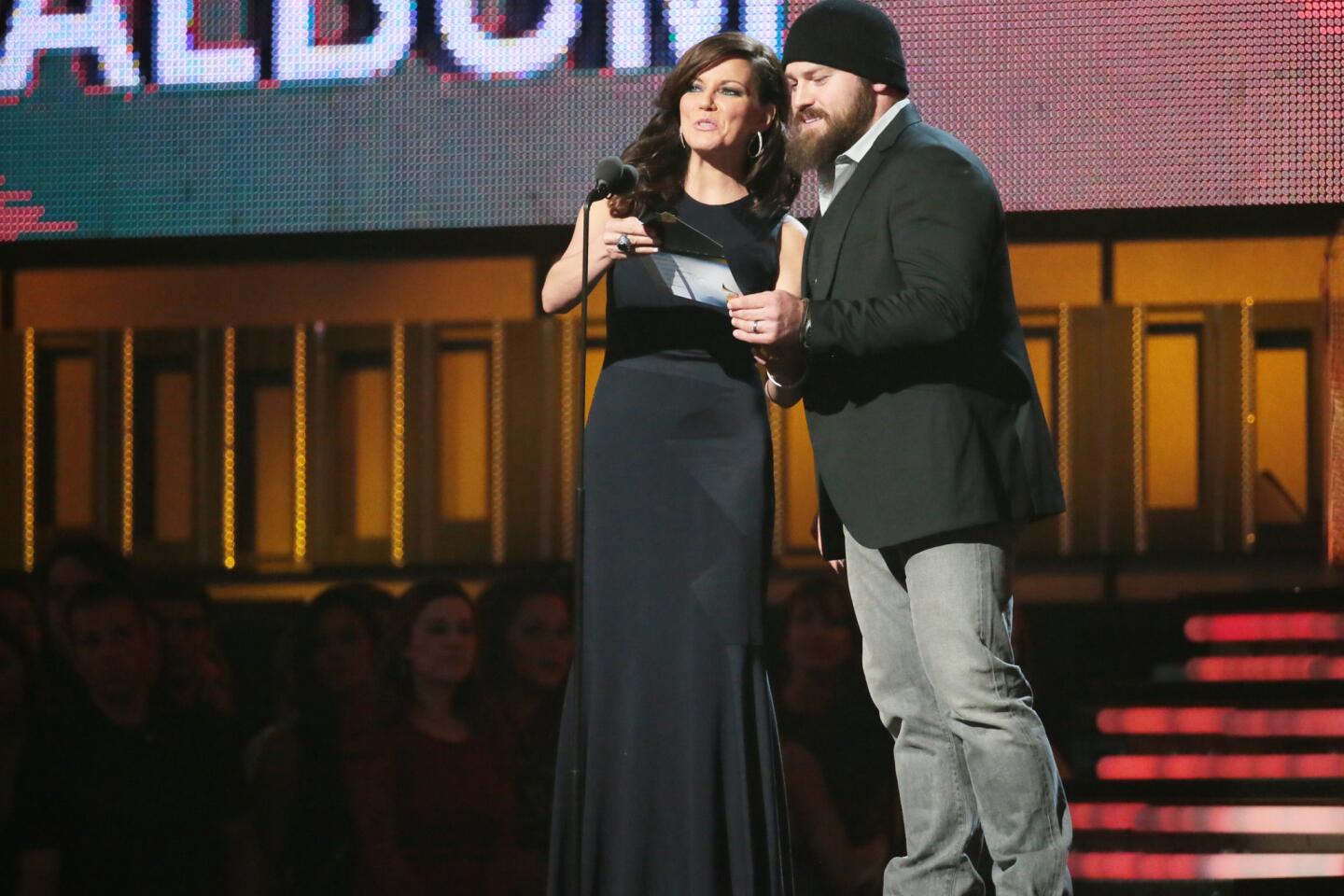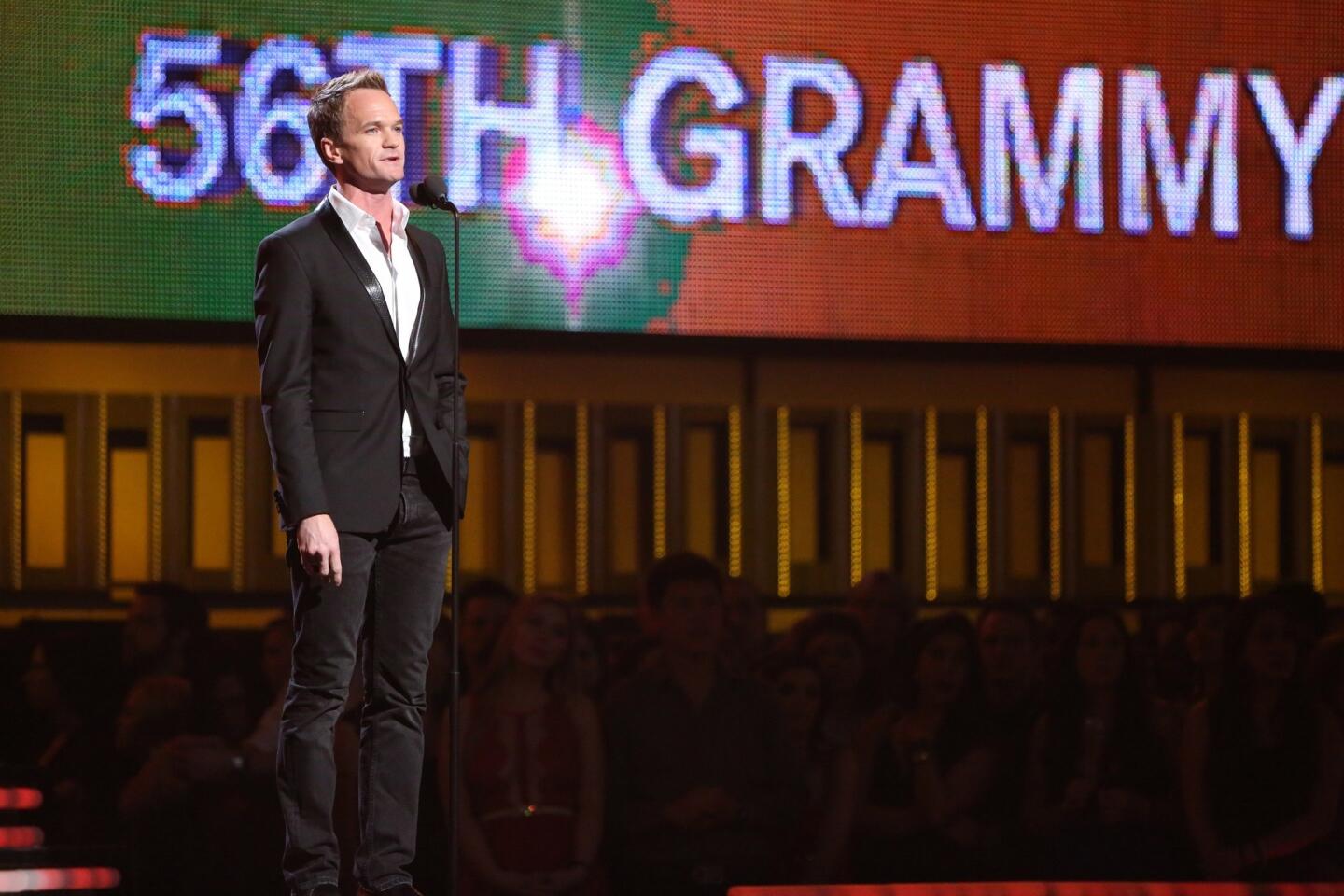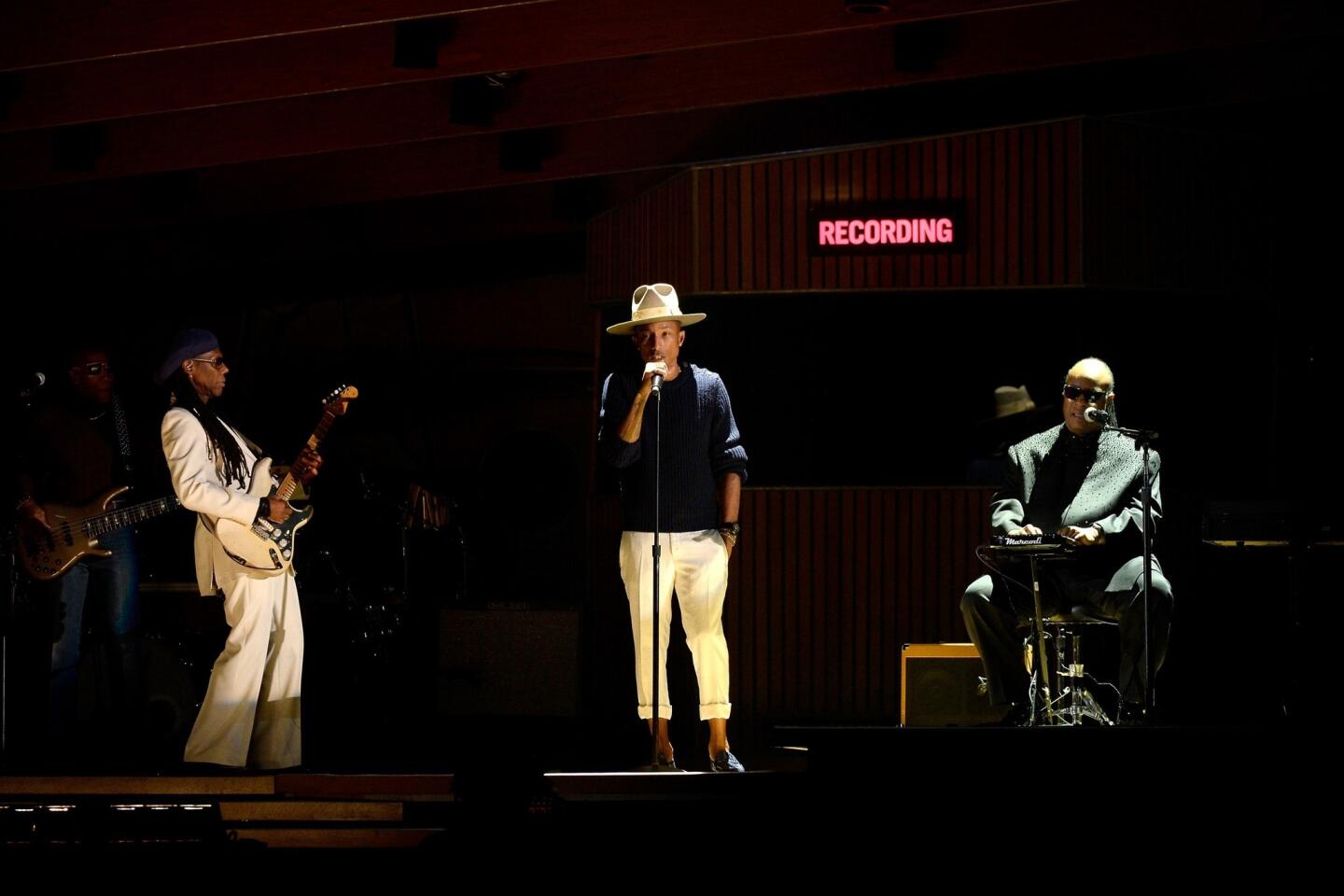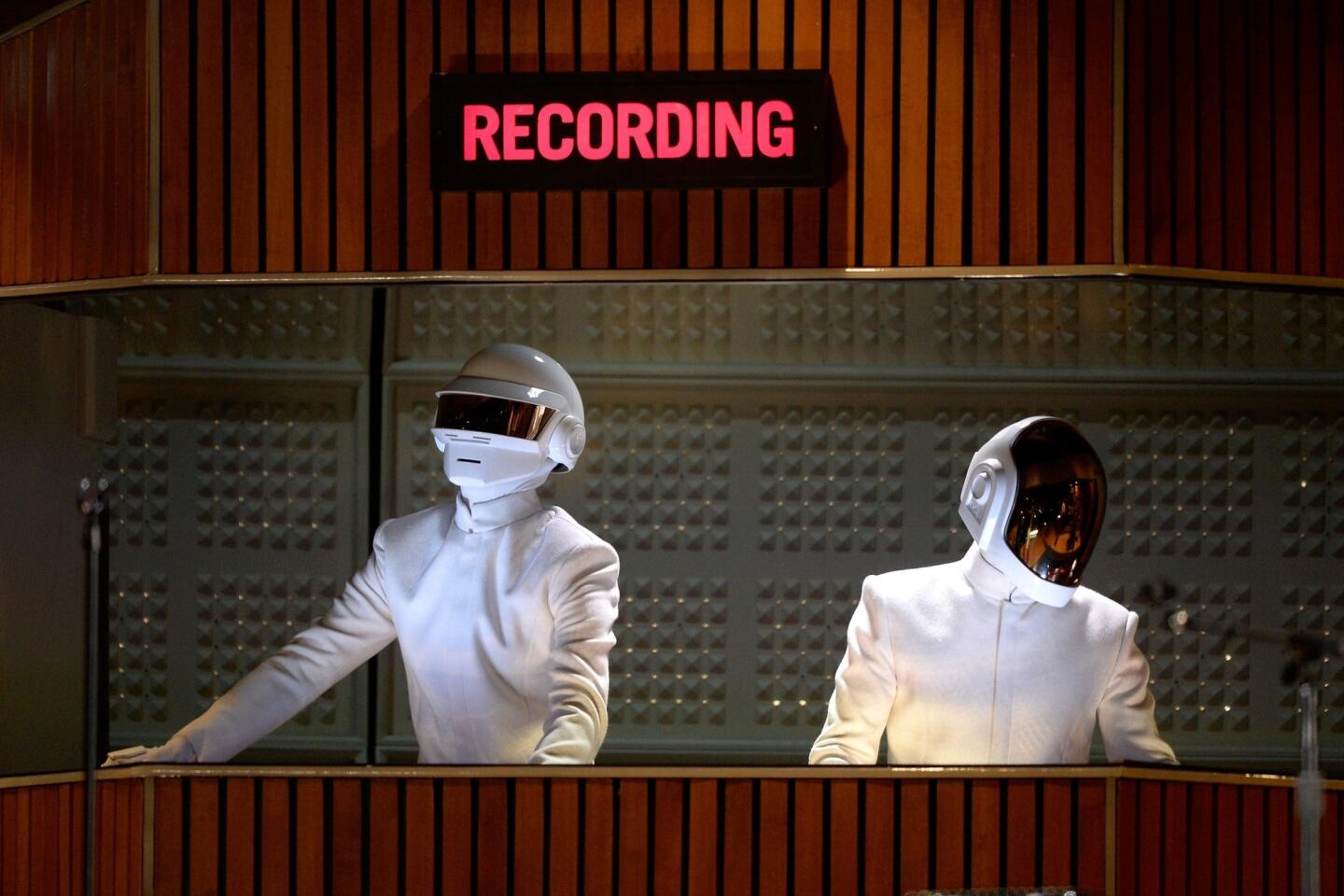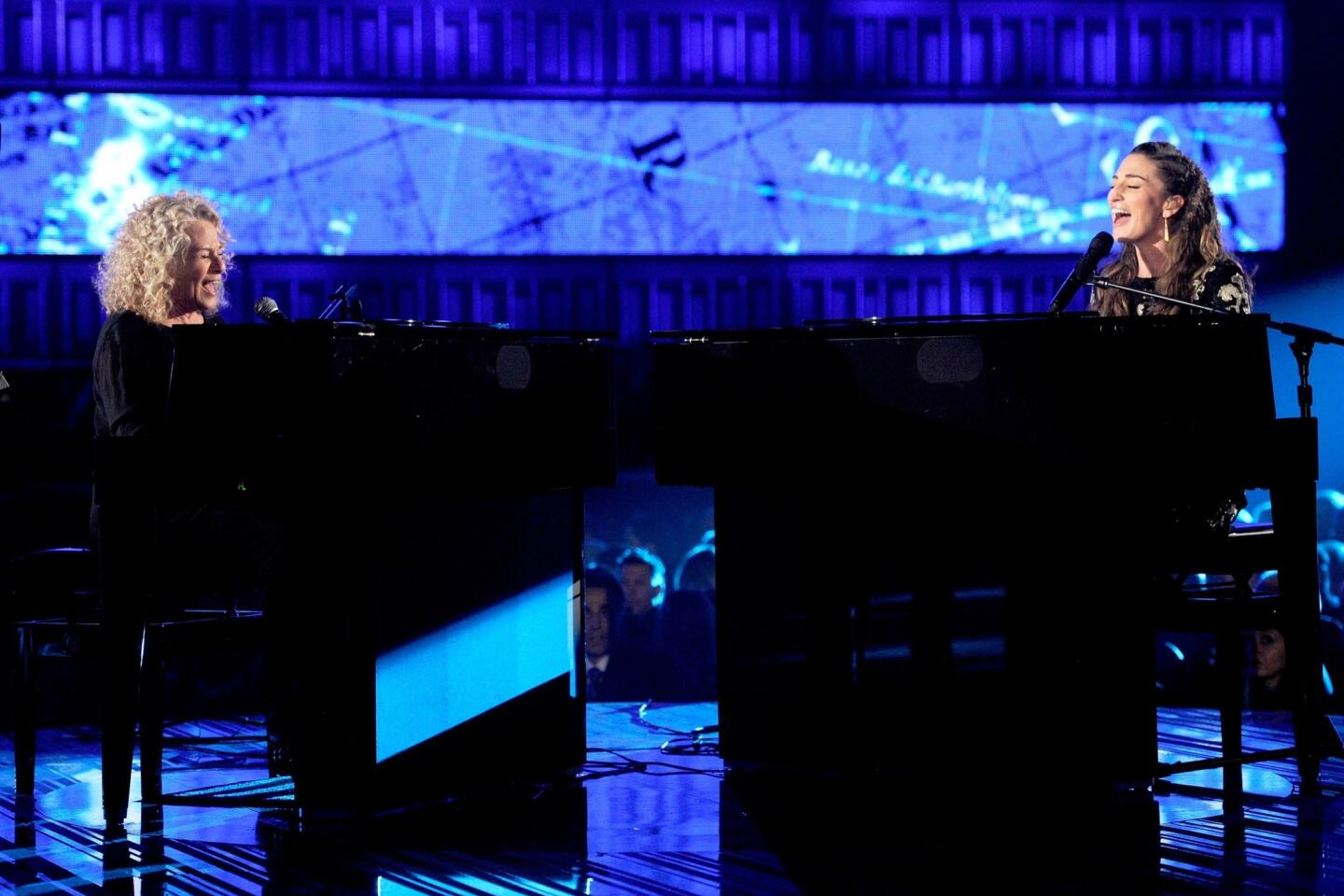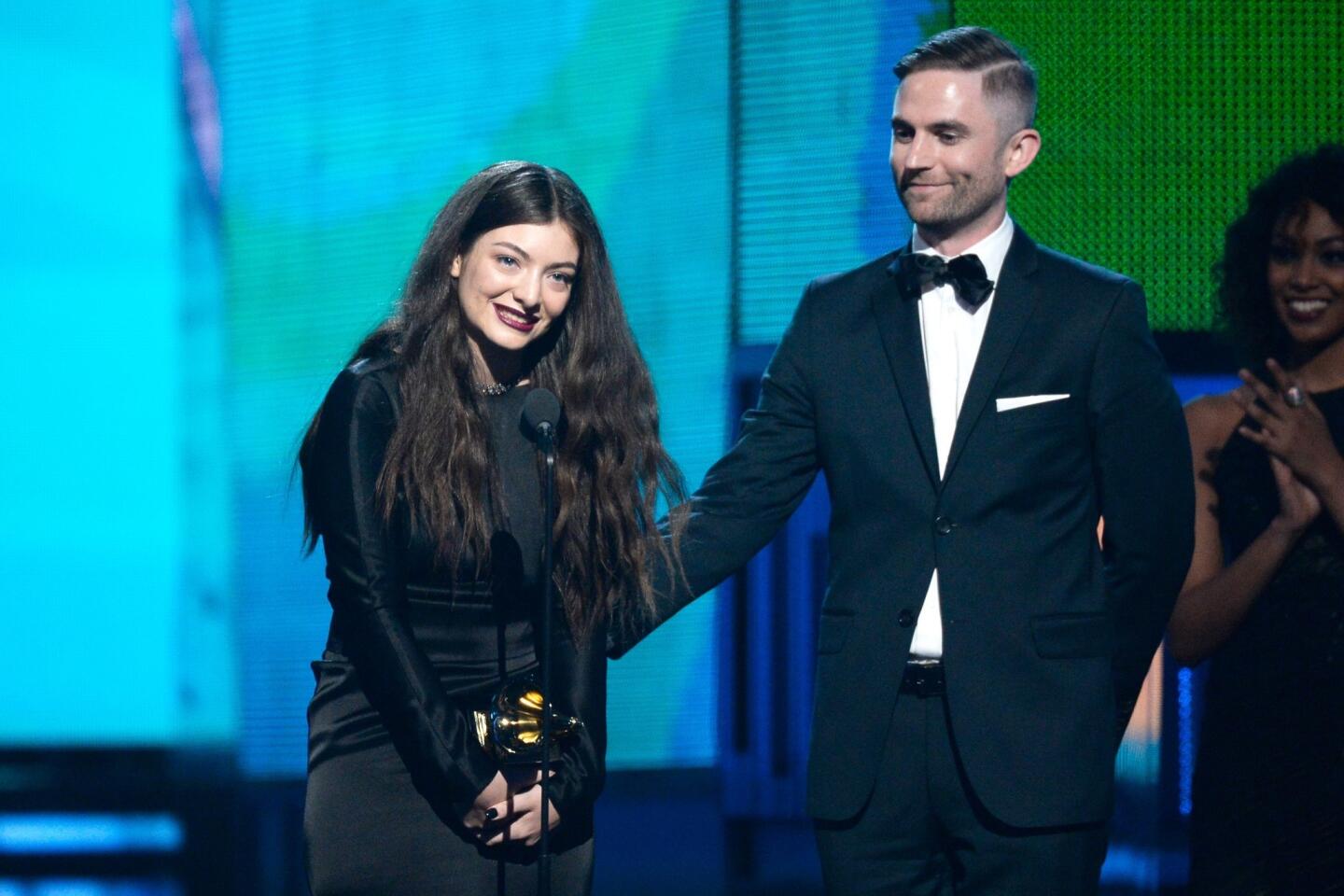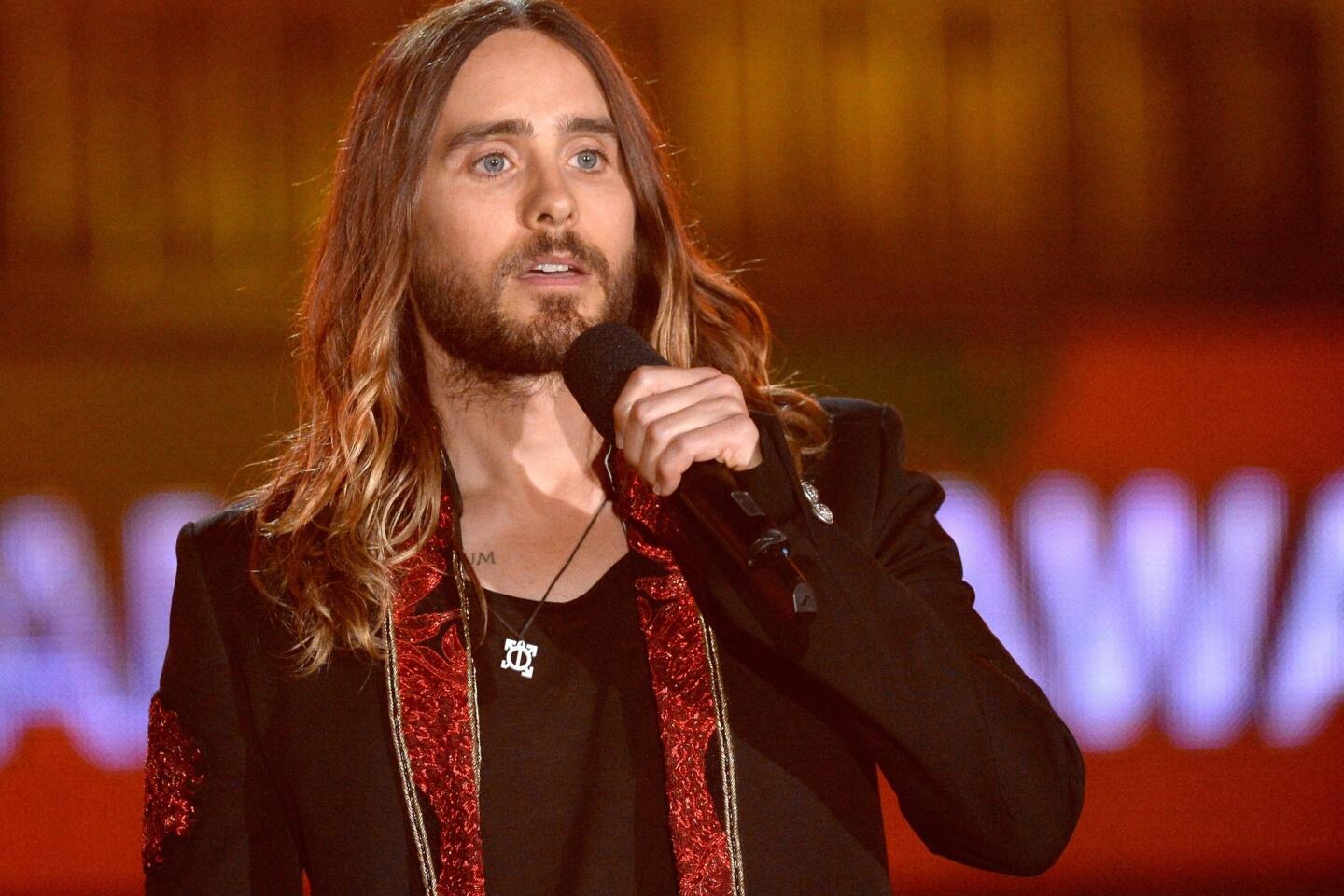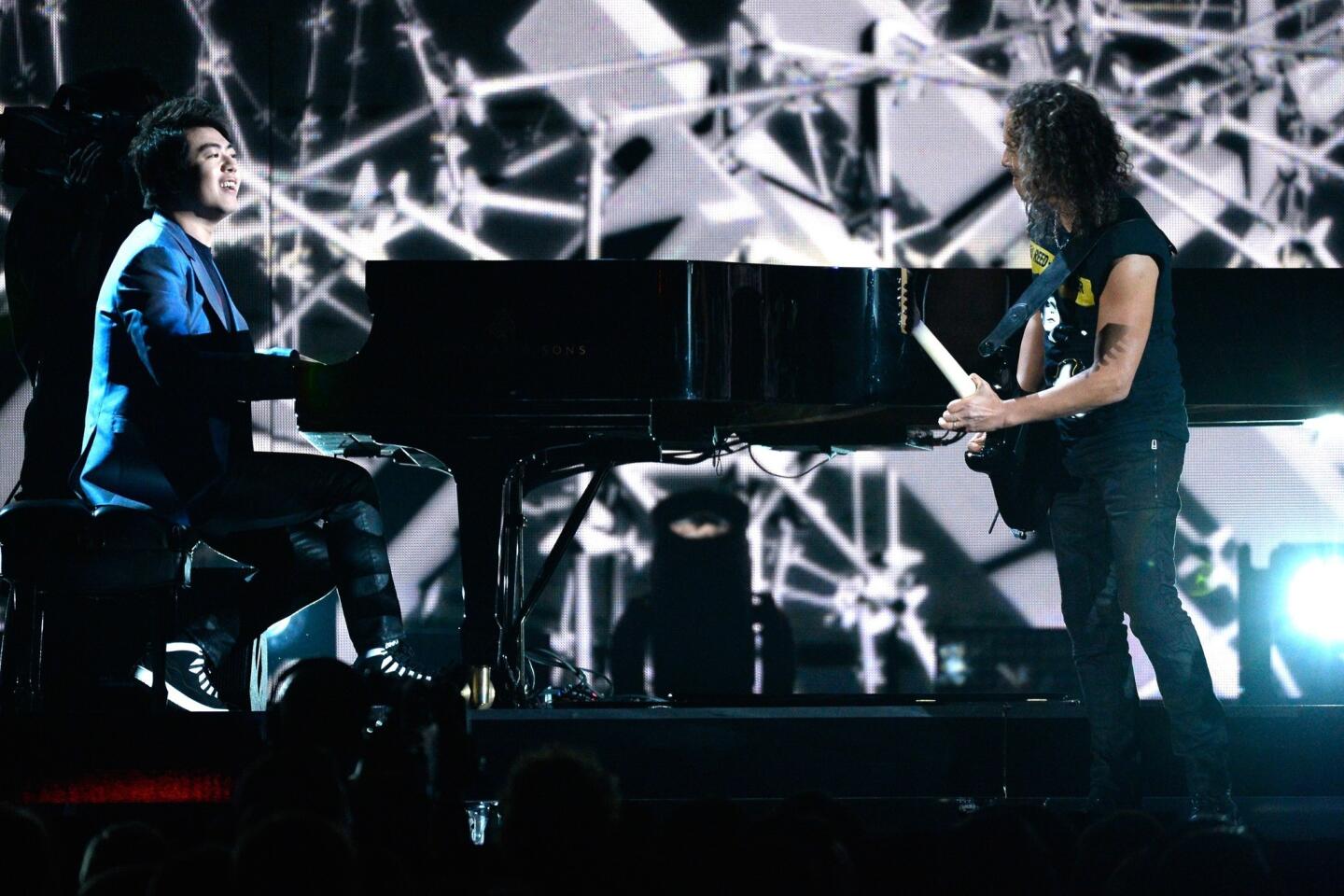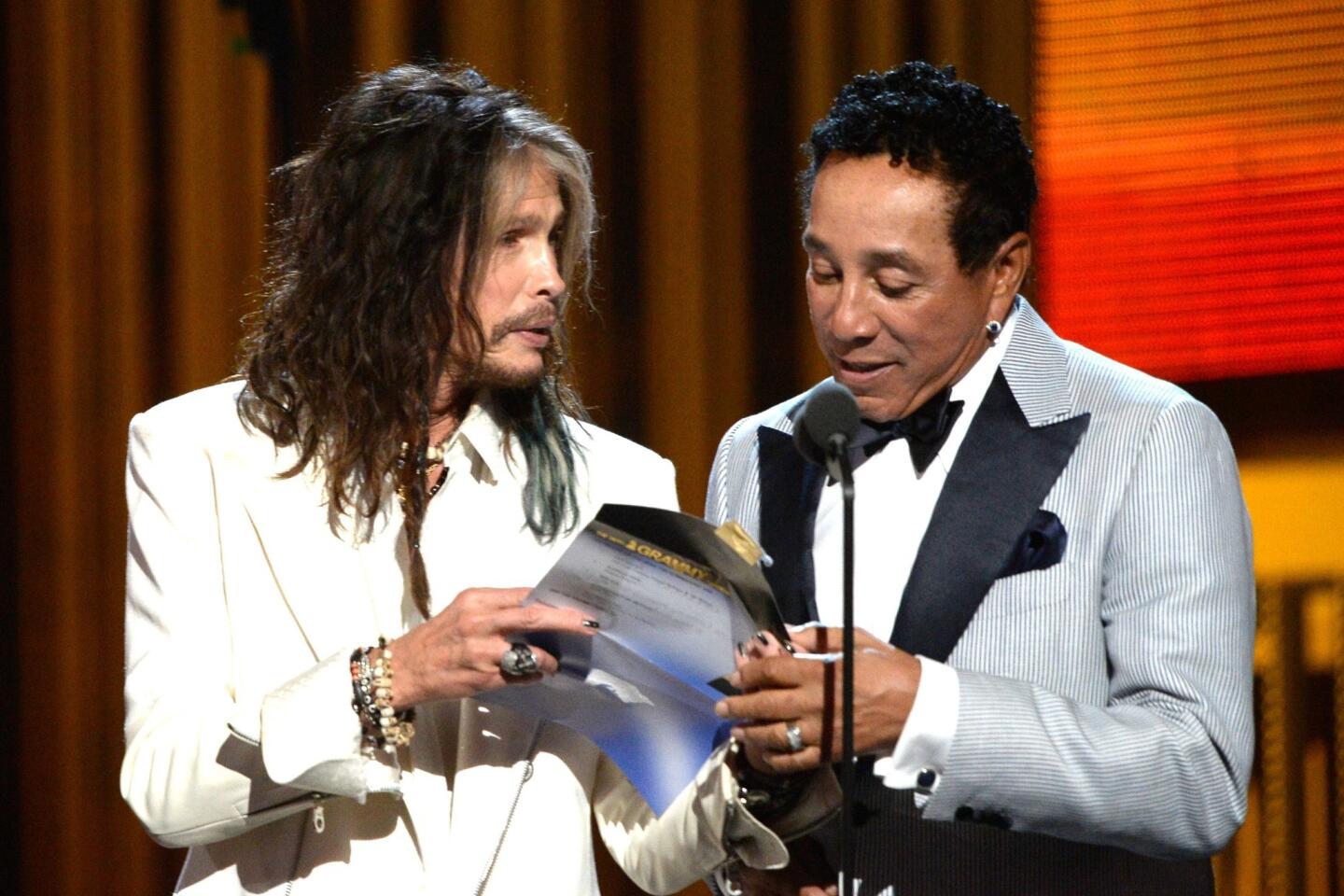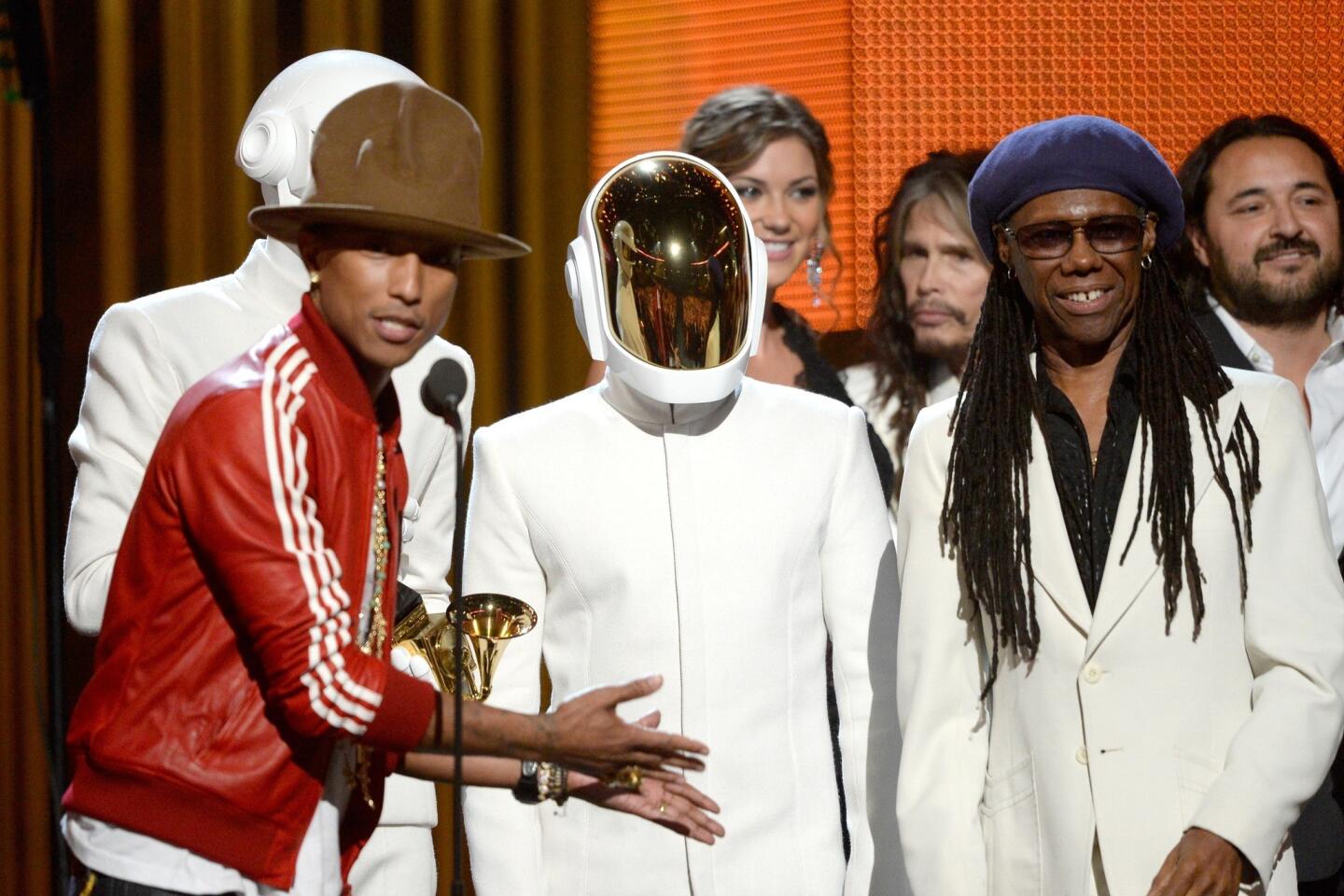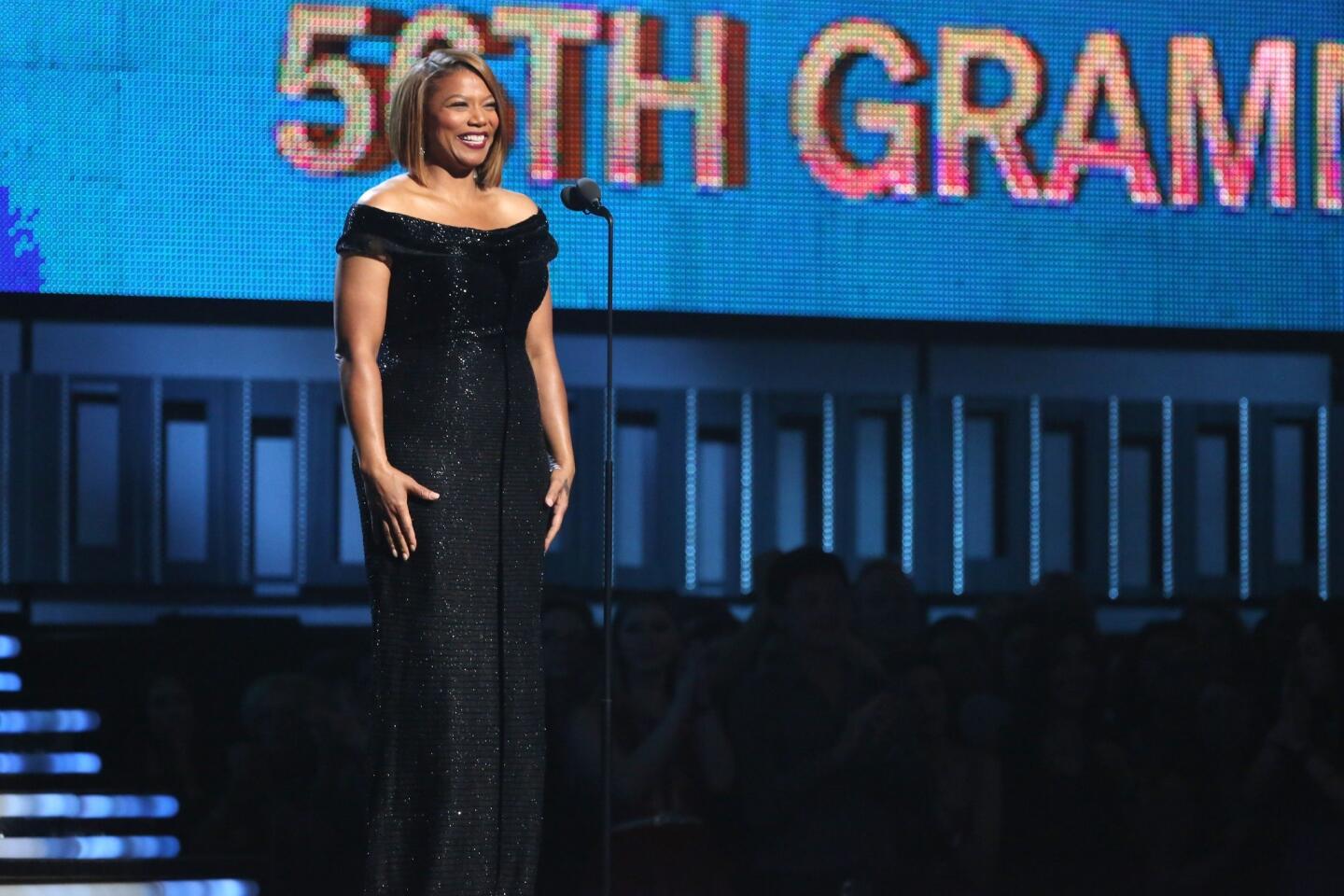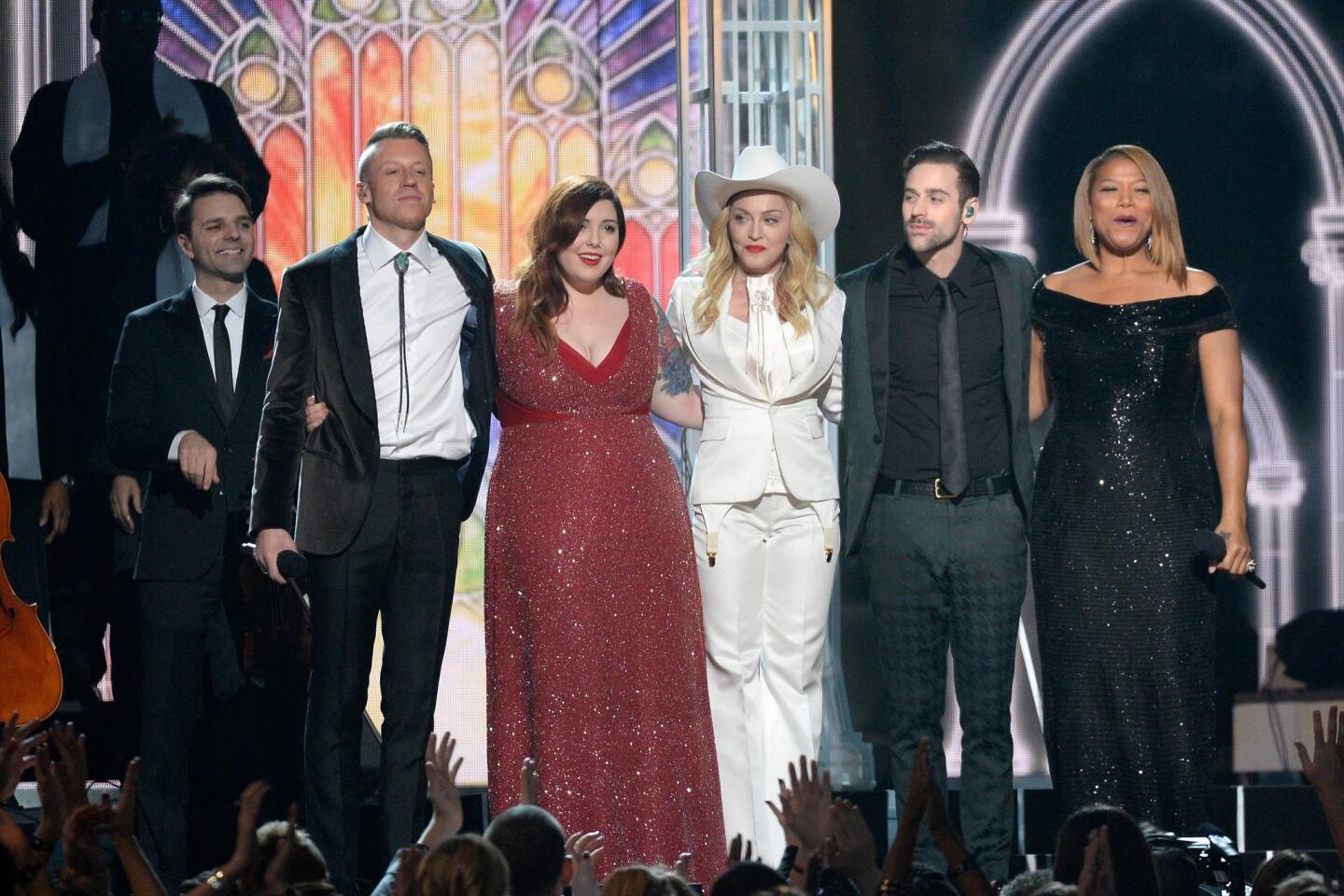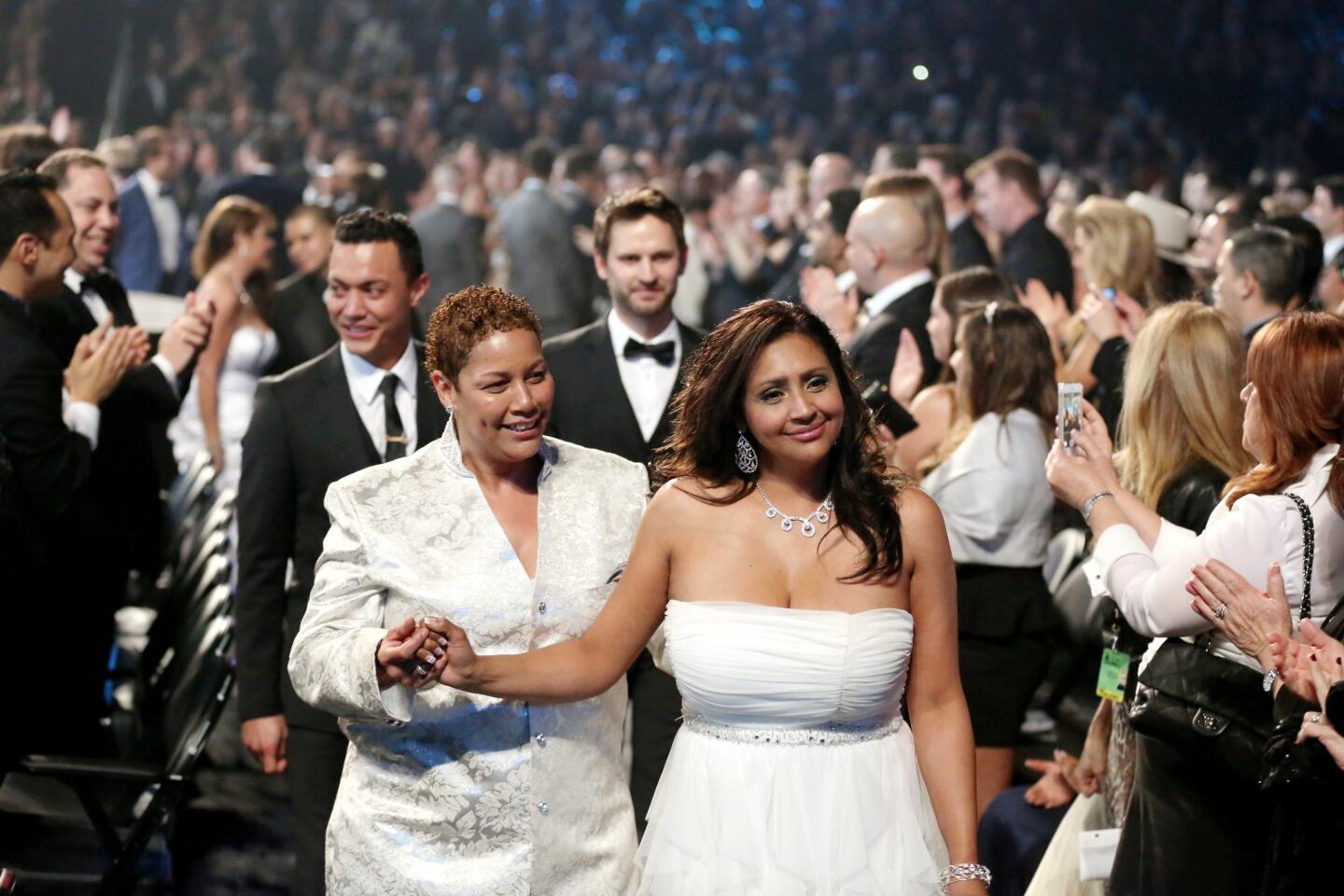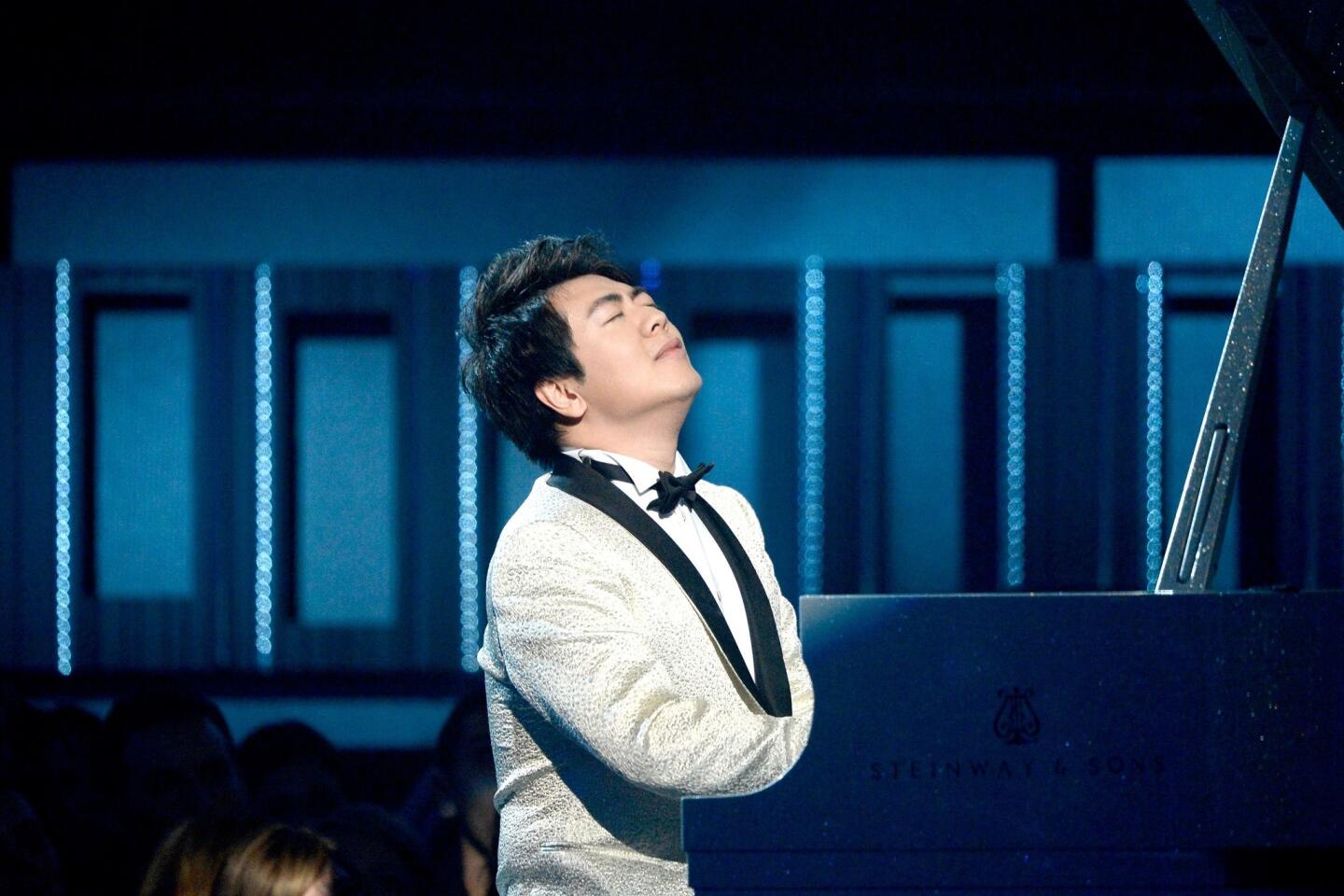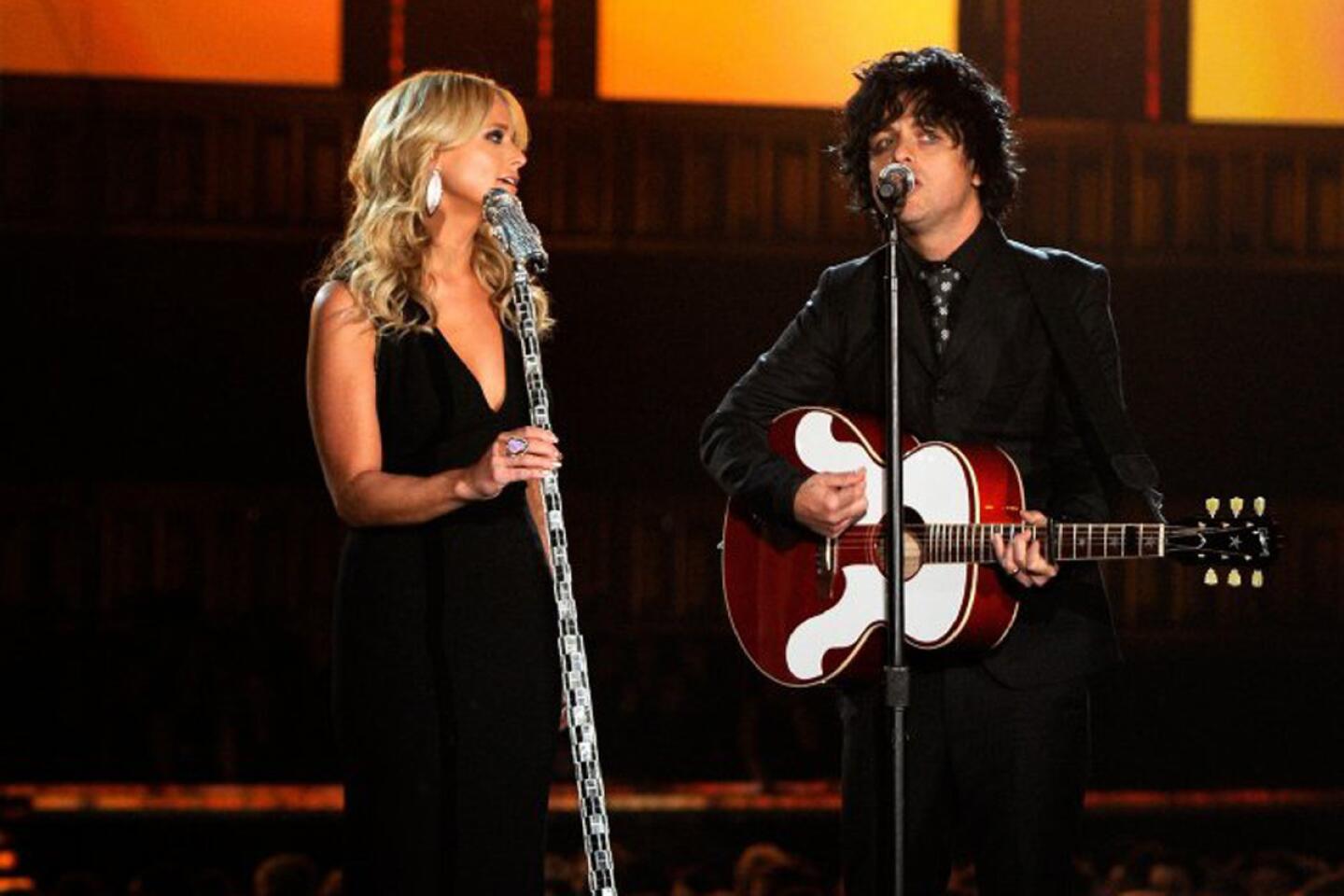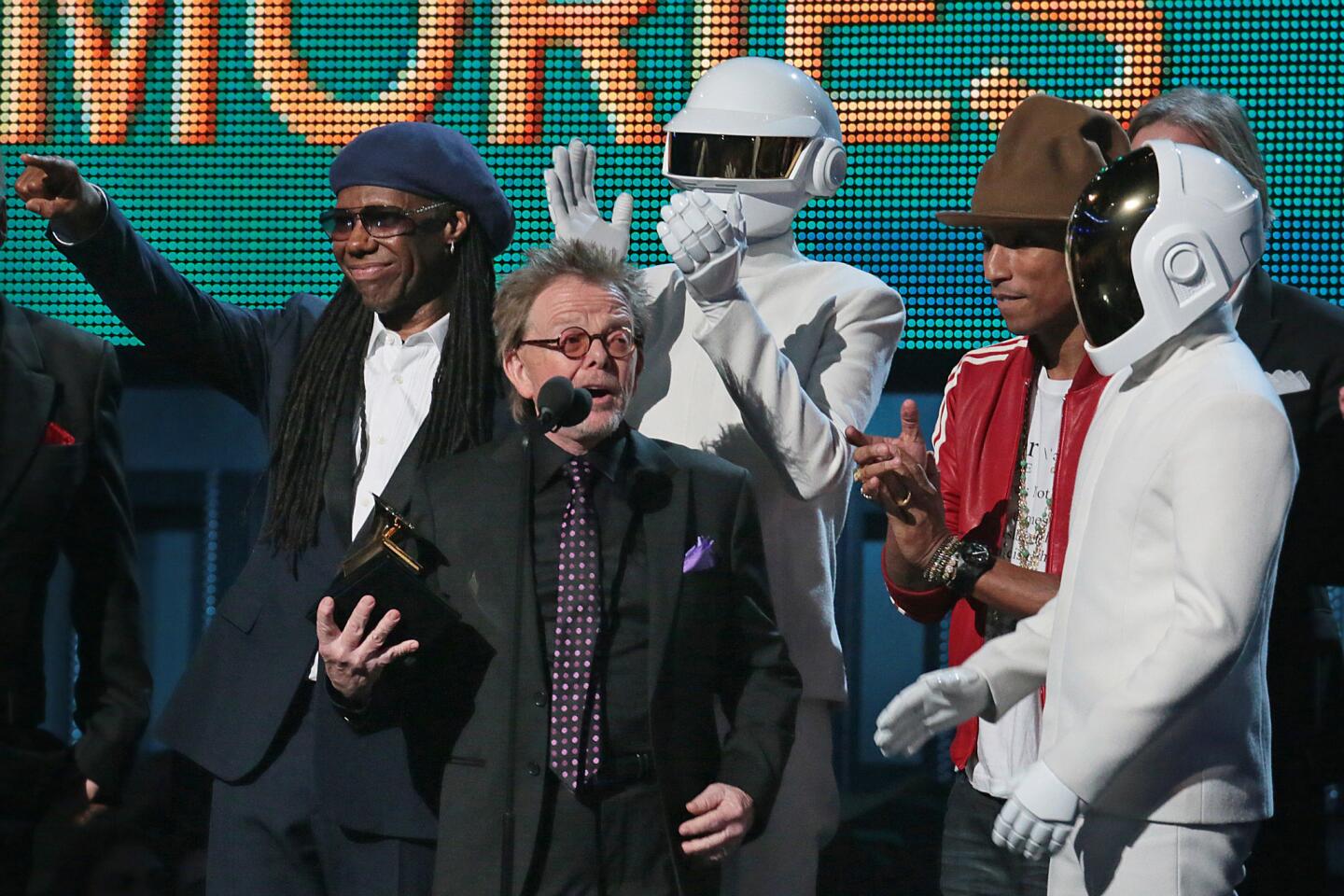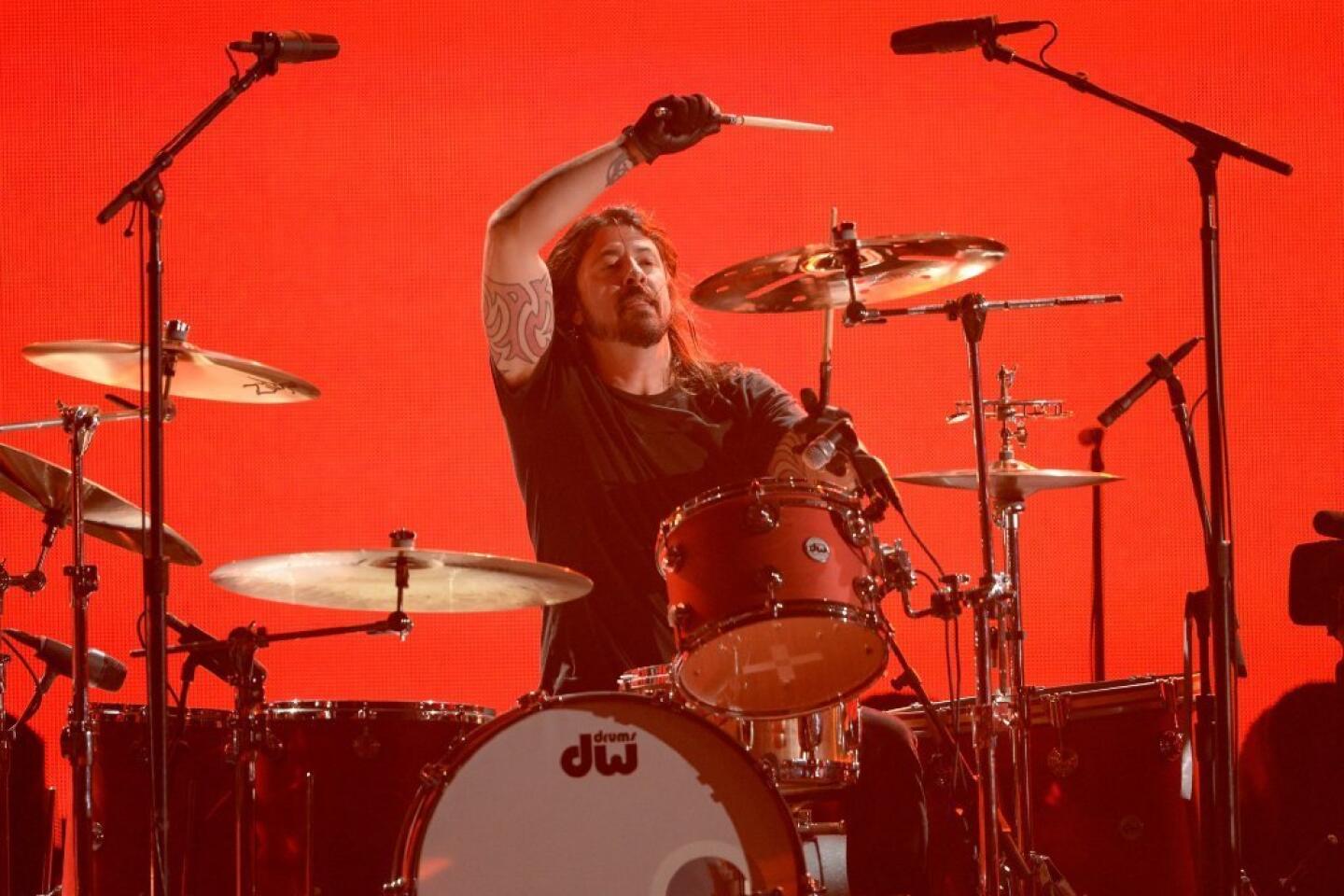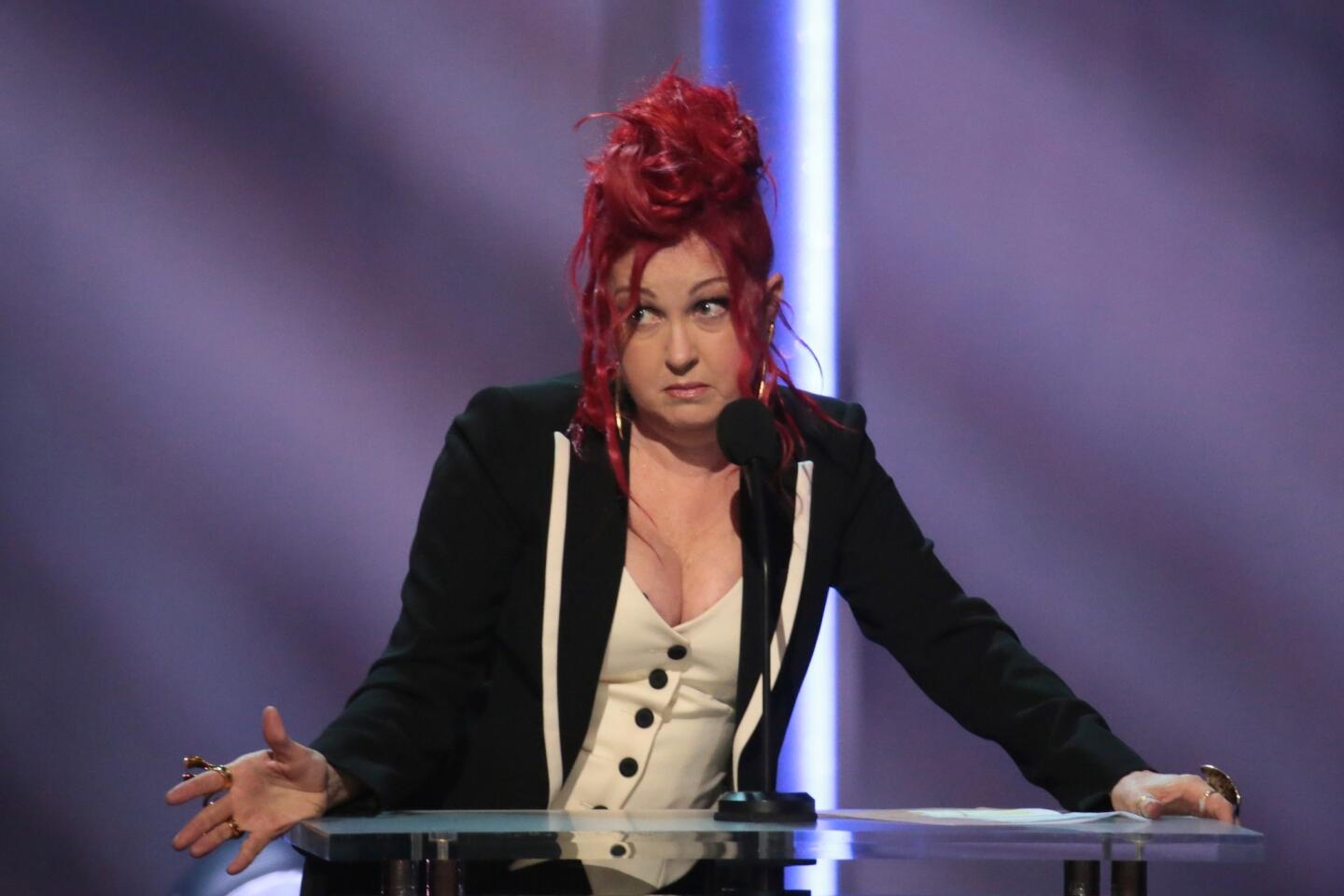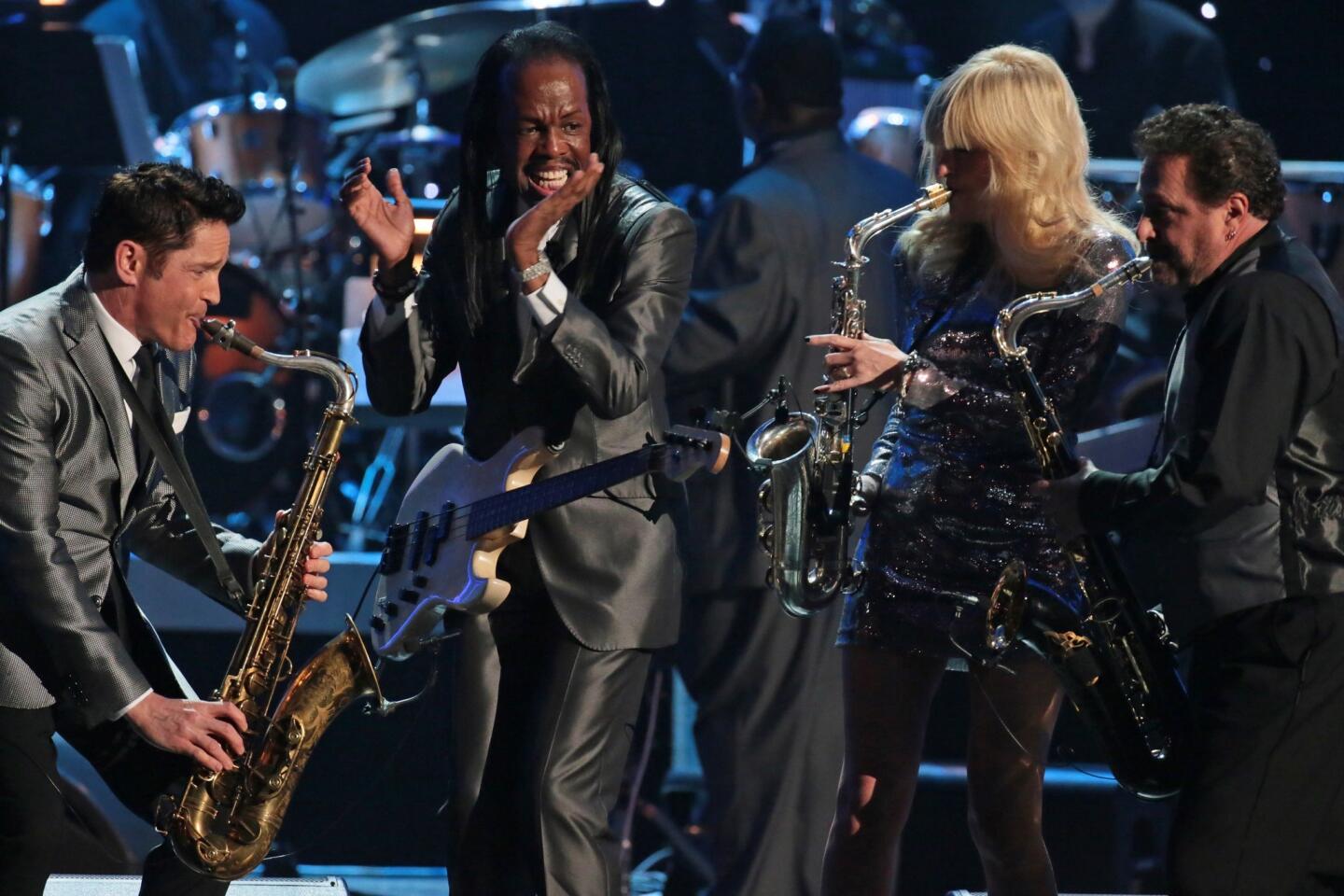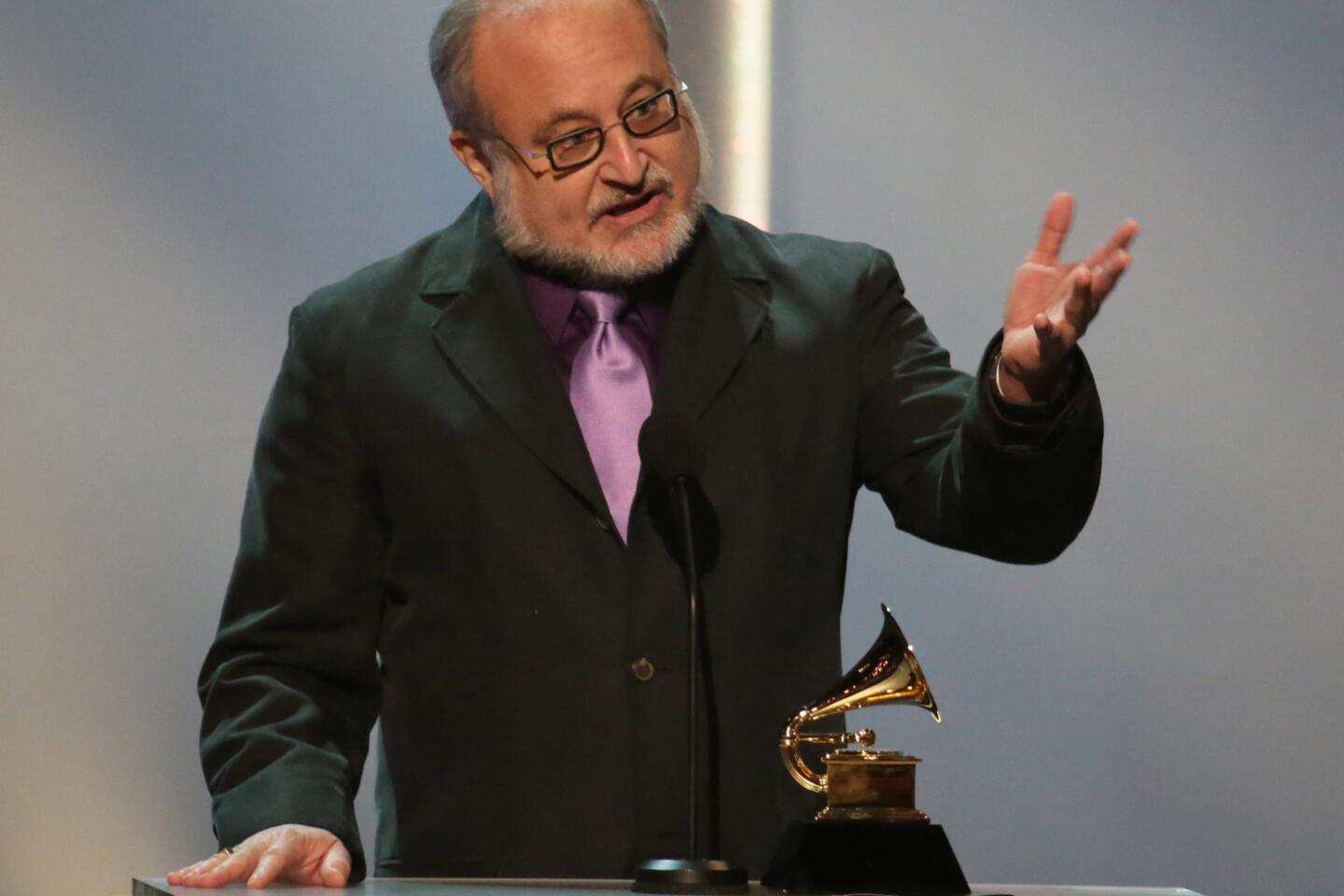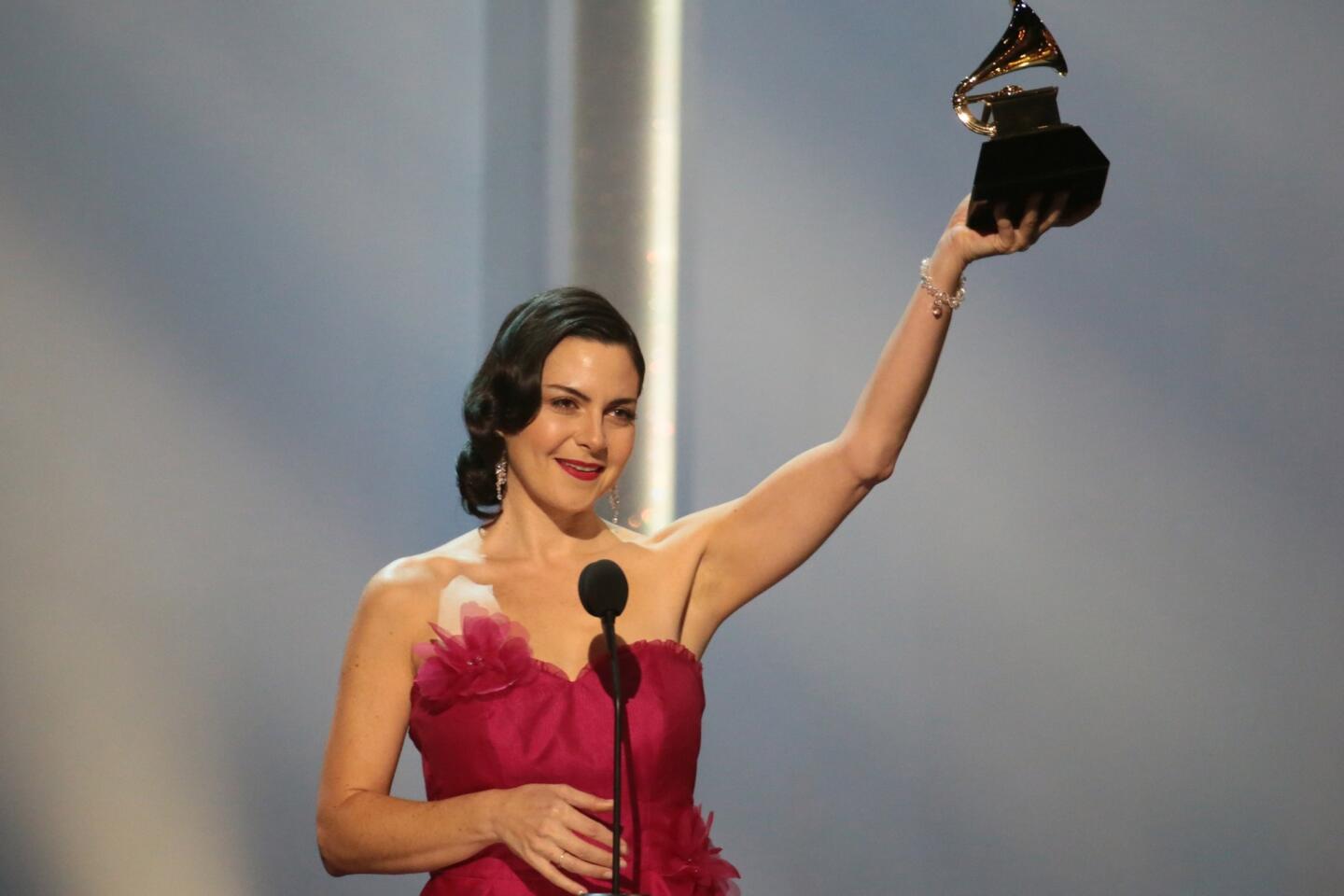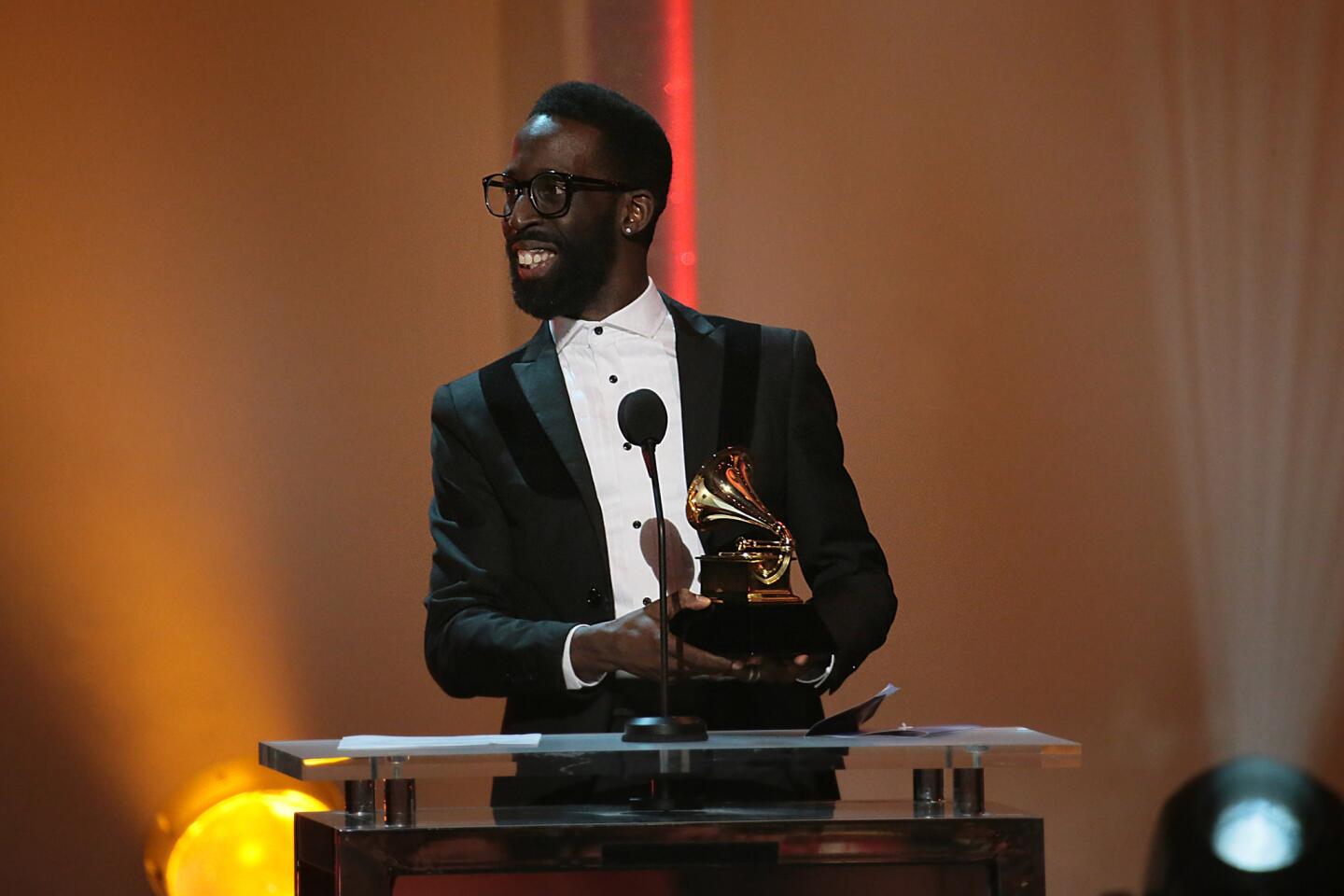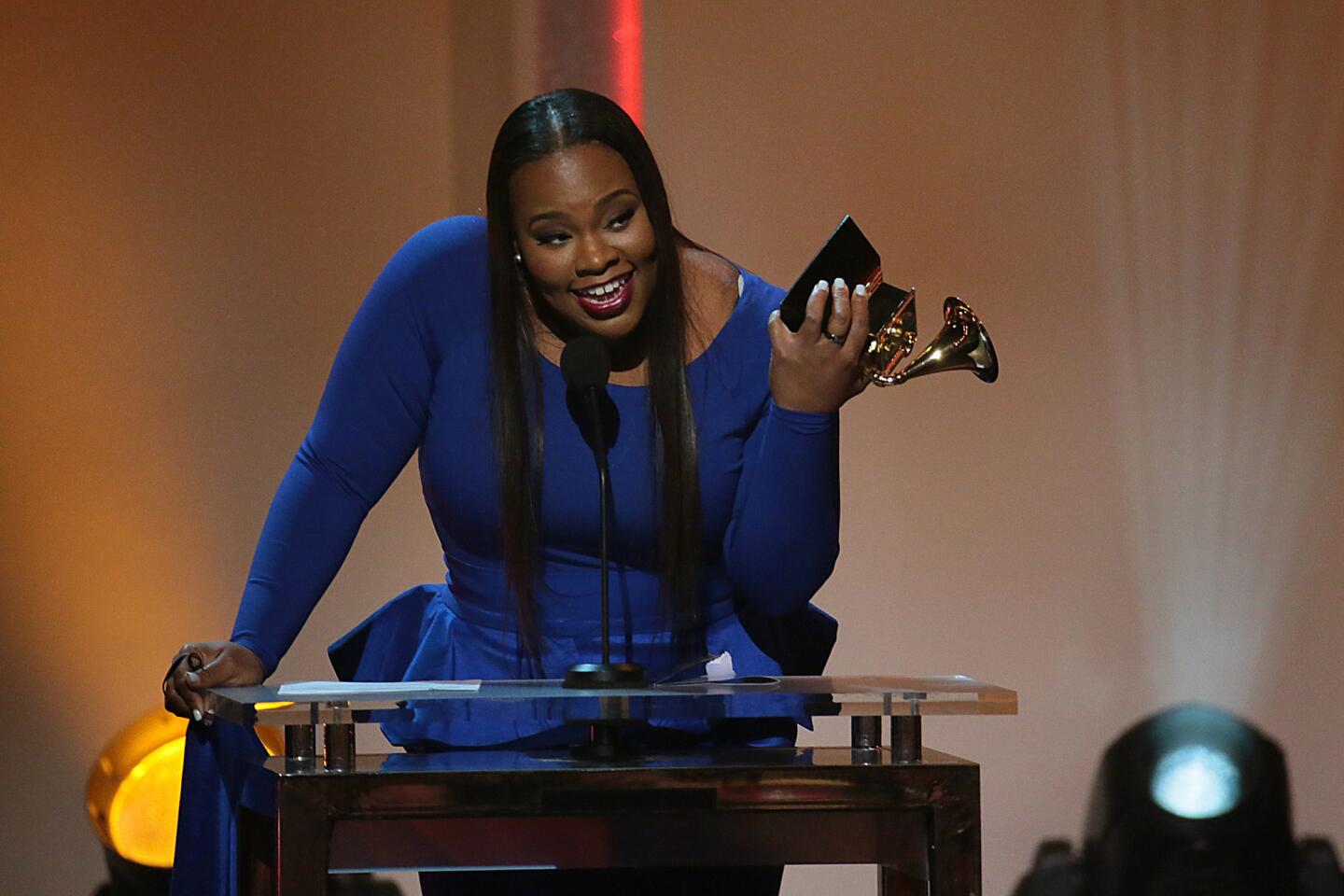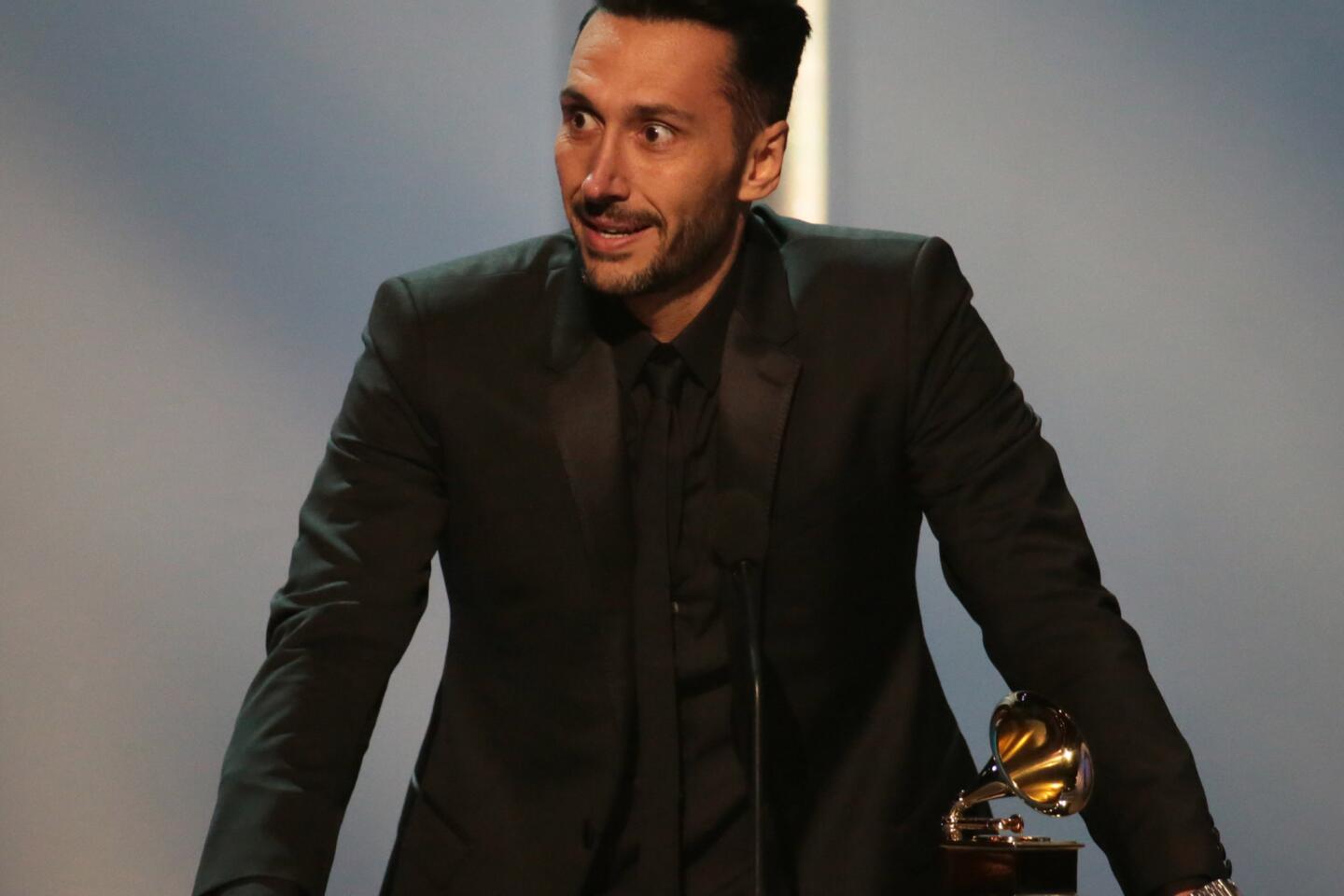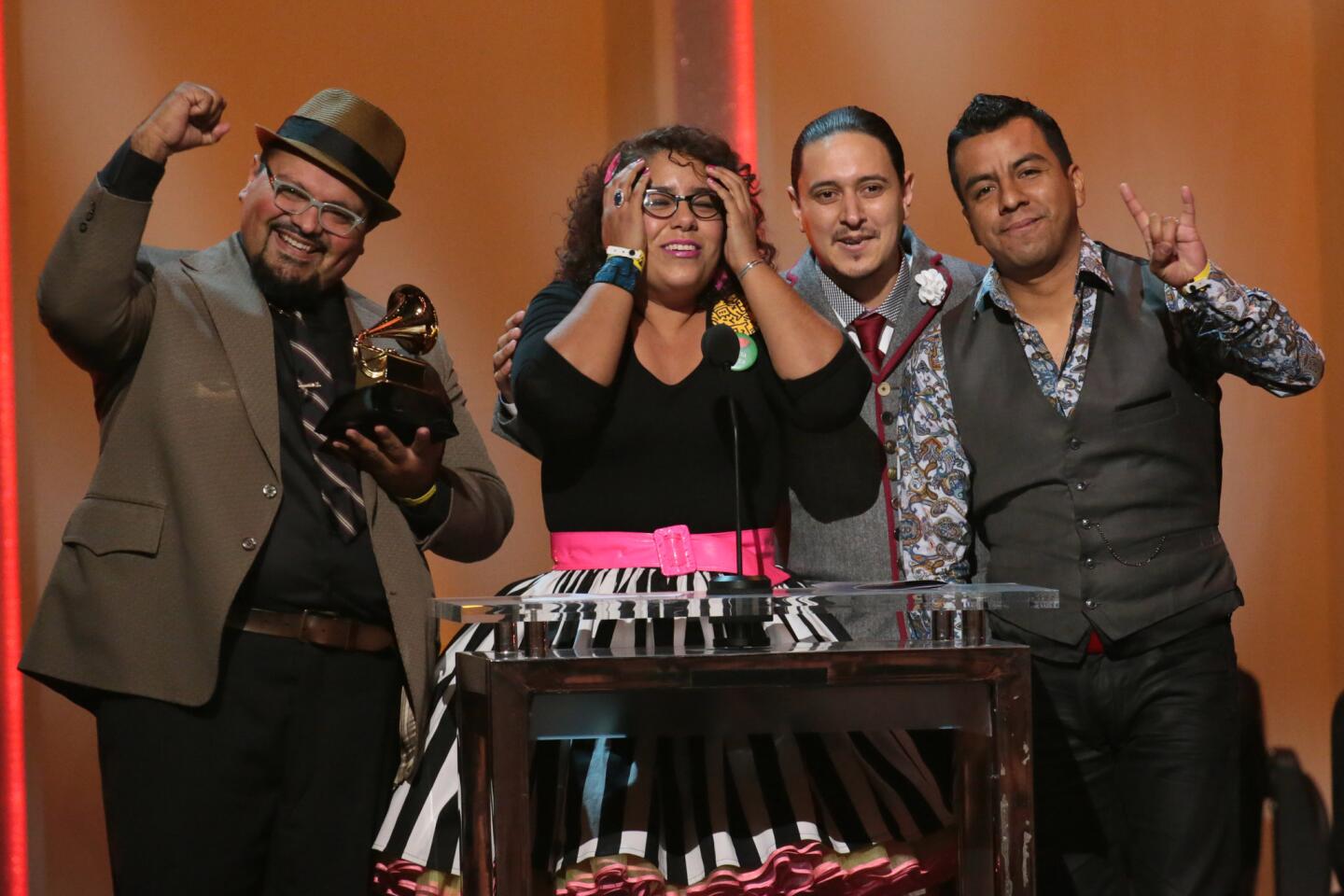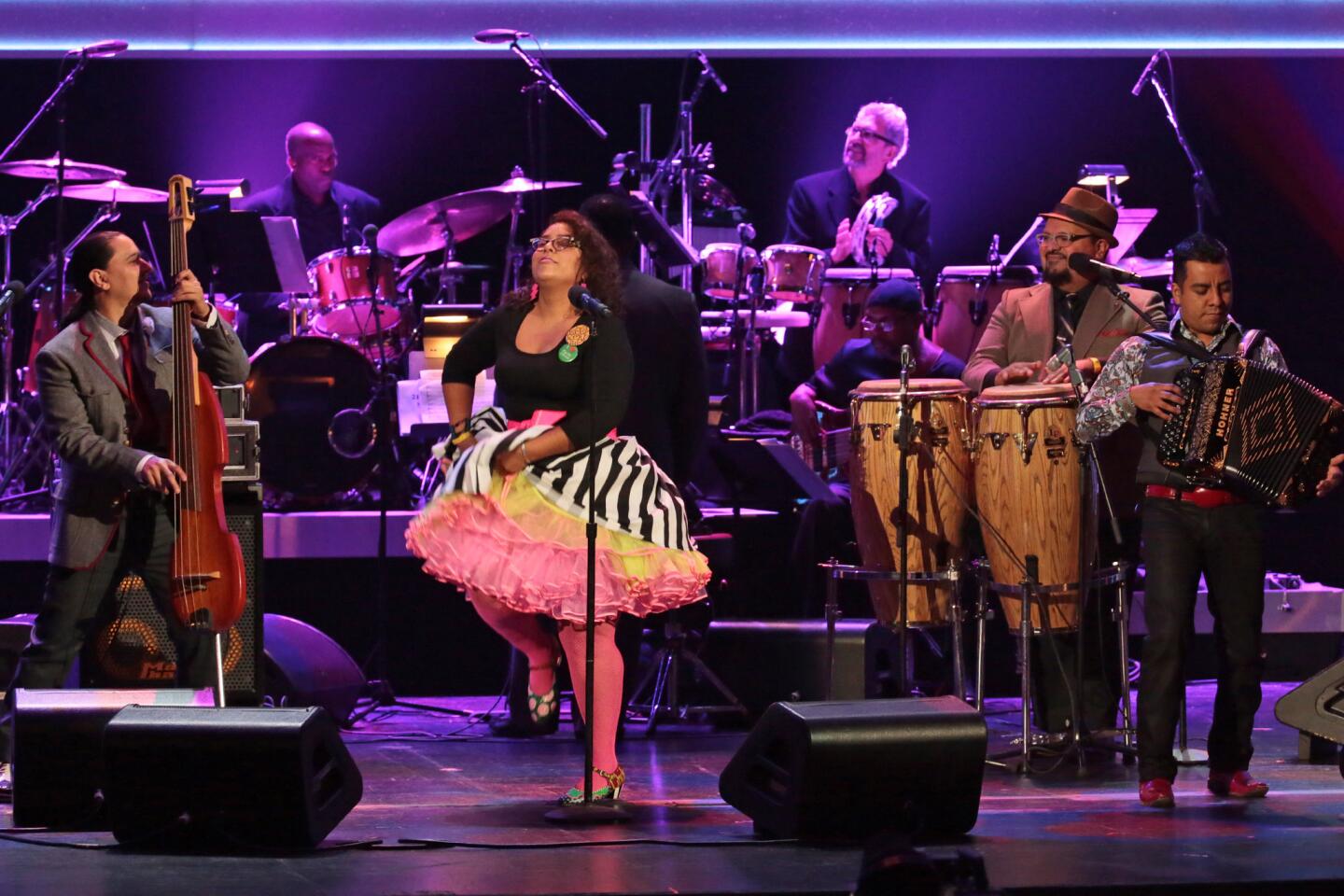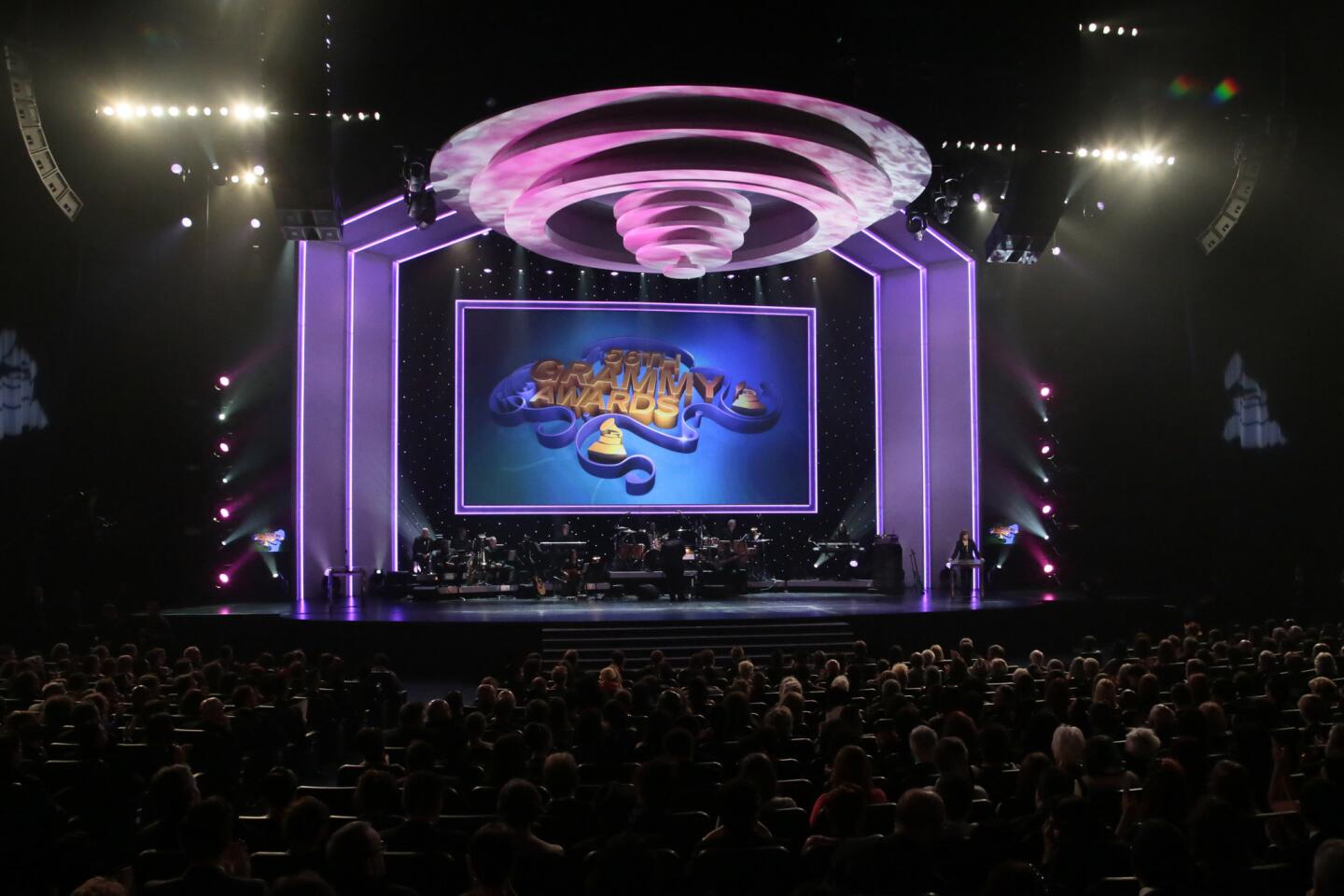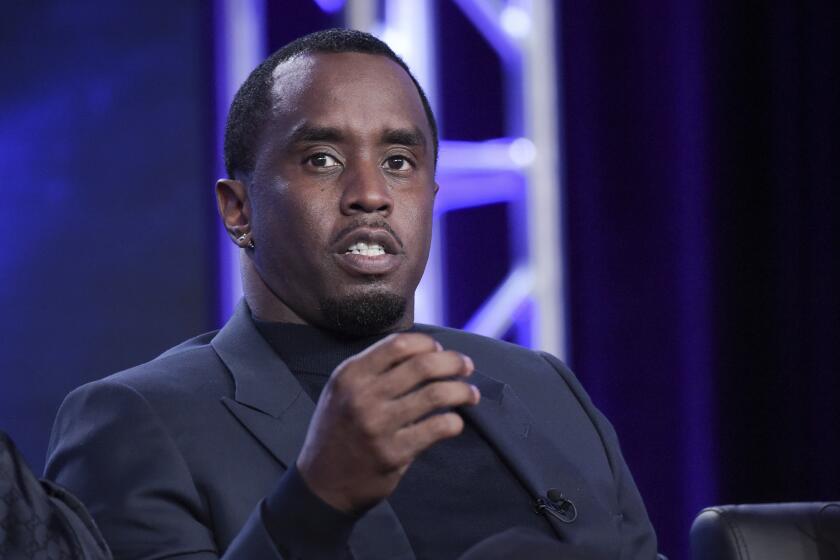Grammys 2014: The music made up for the missteps
The Grammy Awards, in keeping with long-established tradition, were in many ways a disaster for music fans who depend on trophies to reflect artistic quality. But “The 56th Grammy Awards,” which aired Sunday night on CBS? That show wasn’t half-bad.
Broadcast from Staples Center as a nearly four-hour TV special, the music industry’s premier awards ceremony put far too many prizes into the wrong hands, not least among them the three rap honors (and best new artist title) bestowed upon Macklemore & Ryan Lewis, the distressingly sanctimonious Seattle duo that diverted recognition from worthier, more vital acts such as Kanye West, Drake and Kendrick Lamar.
Other head-scratchers included the still-disbanded Led Zeppelin winning the rock album award with “Celebration Day,” a live recording of a one-off 2007 reunion gig, and best rock song honors, which went to a similarly inessential tune by Paul McCartney and the surviving members of Nirvana.
Grammys 2014: Full coverage | Top nominees and winners | Red carpet | Show highlights
But if many of Sunday’s winners adhered all too predictably to Grammy protocol — in which the old-fashioned always trumps new — the all-star concert that surrounded them somehow managed to feel like a reasonable representation of pop music in 2014.
Beyoncé set the bar high with a bold opening performance that was more stripped-down — and far sexier — than the spectacle-hungry Grammys typically lead with. Obscured by fog, the singer moaned her way through “Drunk in Love” (from December’s surprise-release “Beyoncé” album) as she writhed on a chair “Flashdance”-style. Halfway through the song, her husband, Jay Z, joined her for his verse — a raunchy, realistic vision of married romance.
Lorde went similarly stark for “Royals,” the deadpan electro-pop cut rightfully named song of the year. The teenage New Zealander has made an appealing habit lately of jolting awards shows with her seriousness of purpose, and here she did it again, thrillingly stretching out the negative space in a tune about feeling disconnected from the ambition and glamour enshrined in so many pop hits.
Other strong performances came from Katy Perry and Juicy J, whose “Dark Horse” imagined “Game of Thrones” set inside a strip club, and the all-star quartet of Willie Nelson, Merle Haggard, Kris Kristofferson and Blake Shelton. Harmonizing raggedly on “Okie from Muskogee” and “Mammas Don’t Let Your Babies Grow Up to be Cowboys,” the foursome delivered a boozy enthusiasm that spoke to the classic country theme of endless nights in no-name bars.
Even the night’s ballyhooed collaborations — what the Recording Academy calls “Grammy moments” — fared better than usual. An unwieldy seeming supergroup comprising Dave Grohl, Lindsey Buckingham and members of Nine Inch Nails and Queens of the Stone Age made an effective case for the digital-era usefulness of guitar-based rock in a synthed-up medley of NIN’s “Copy of A” and QOTSA’s “My God Is the Sun.”
And though Daft Punk scored album of the year for “Random Access Memories,” the French dance group’s meticulous re-creation of ‘70s disco-soul, its jam with Stevie Wonder on “Get Lucky” (which also won record of the year) felt winningly loose. As the robot-masked duo looked on from a virtual recording booth onstage, Wonder worked his inimitable phrasing over Daft Punk’s exuberant groove and the trebly guitar of Chic’s Nile Rodgers.
Not every performance was as successful. Keith Urban and Gary Clark Jr. were forgettably dull in the latter’s “Cop Car,” while McCartney and Ringo Starr, each the recipient of a lifetime achievement award, added nothing to their legacies in a joint rendition of McCartney’s “Queenie Eye.” Starr’s solo “Photograph” seemed even more obligatory.
The production also sagged under too many wan piano ballads by the likes of John Legend and Hunter Hayes. True to her nature as a disrupter, Taylor Swift, a reliable Grammy favorite shut out of this year’s major prizes, began her song “All Too Well” in dreary tearjerker mode — but then kicked the song into overdrive with a bit of headbanging that instantly went viral online.
And then there was “Same Love,” perhaps the most hyped segment of the show, for which Macklemore & Ryan Lewis were joined not just by Madonna and Queen Latifah but by 33 couples who’d agreed to wed inside Staples Center as the duo played its hit song about the struggle for marriage equality.
Parts of the performance were irrefutably moving. Yet the presentation felt also like it had been designed to quell criticism of the group’s polarizing presence. Macklemore failed on that count, but just give him time. The Grammys are sure to have him back.
More to Read
The biggest entertainment stories
Get our big stories about Hollywood, film, television, music, arts, culture and more right in your inbox as soon as they publish.
You may occasionally receive promotional content from the Los Angeles Times.
